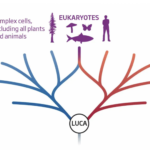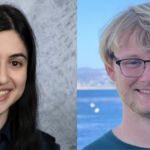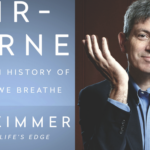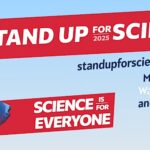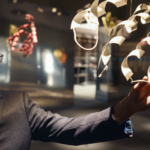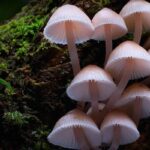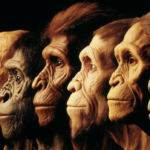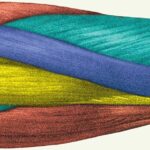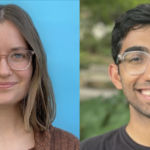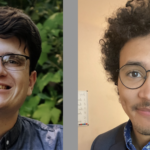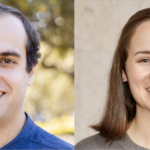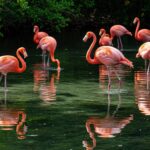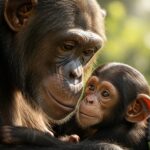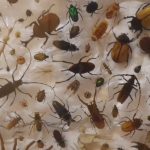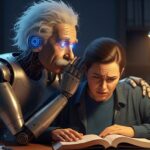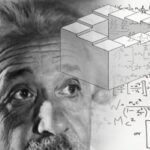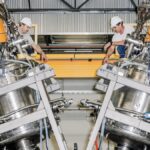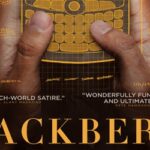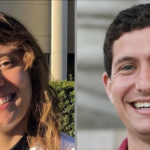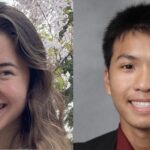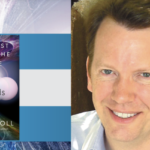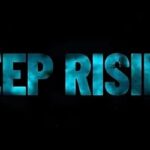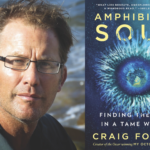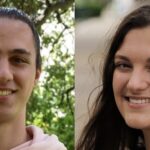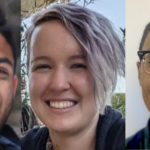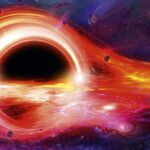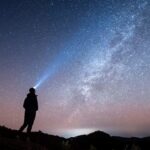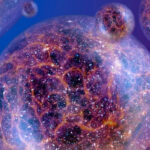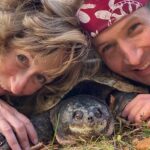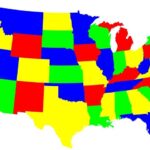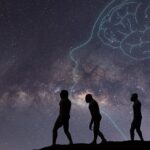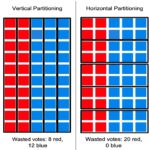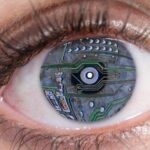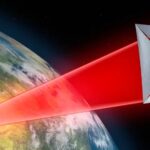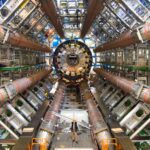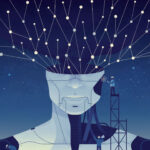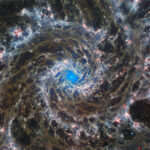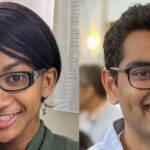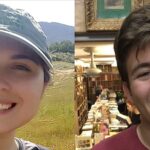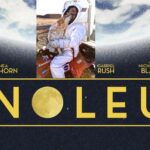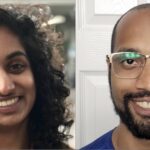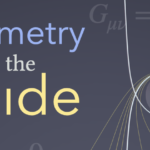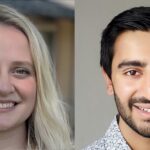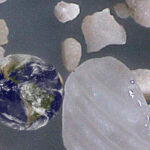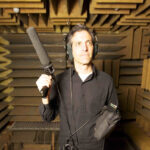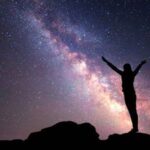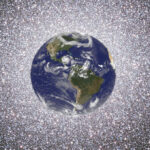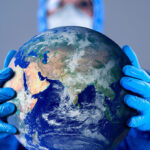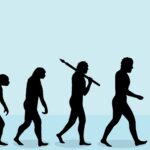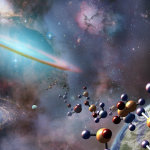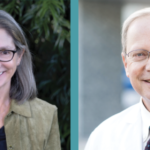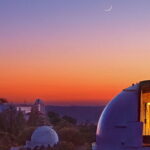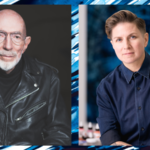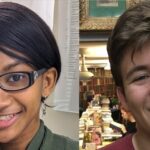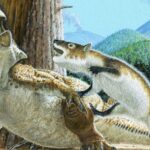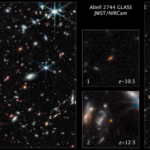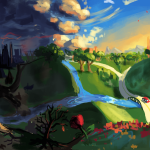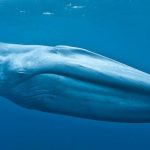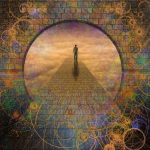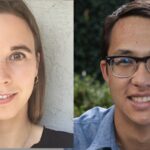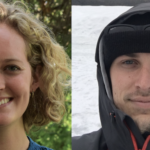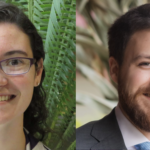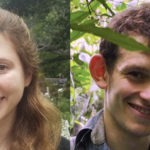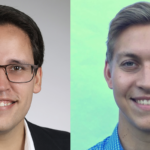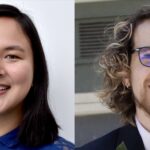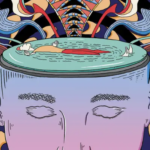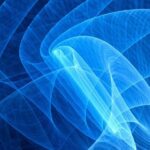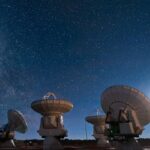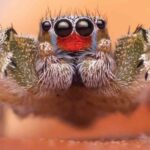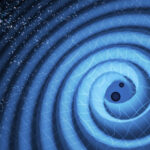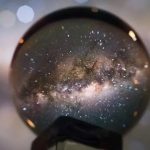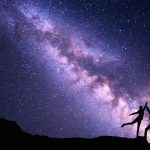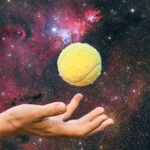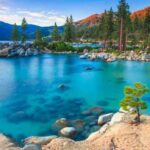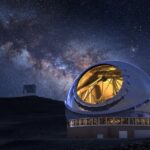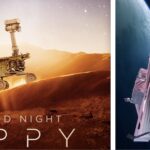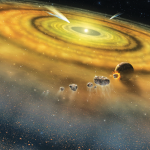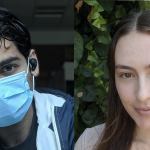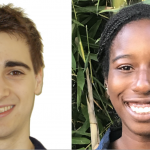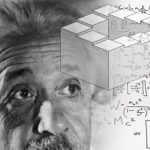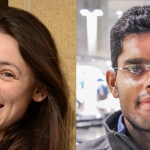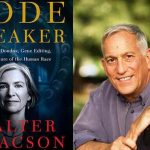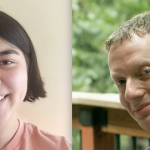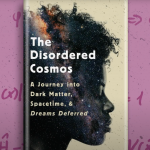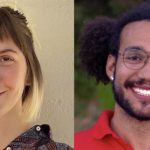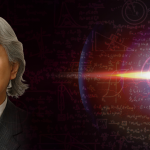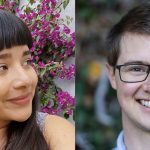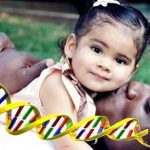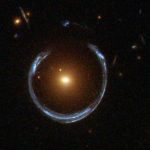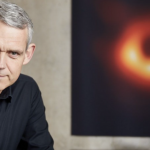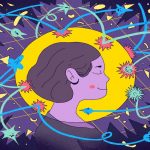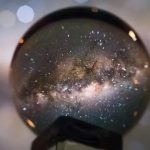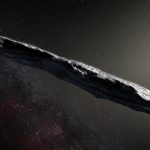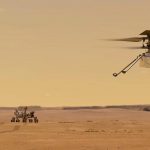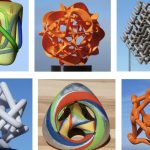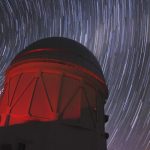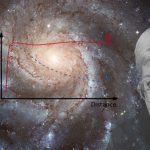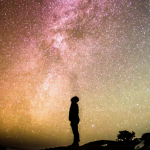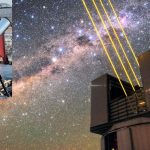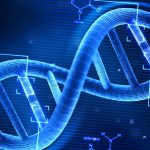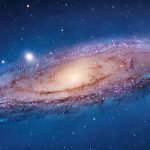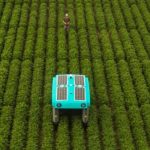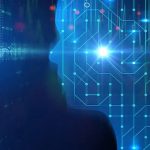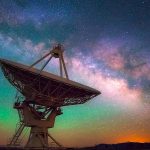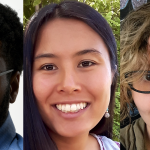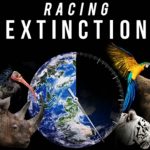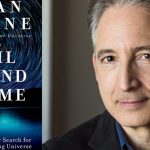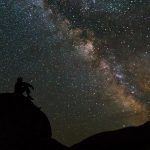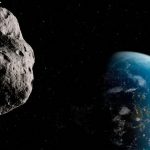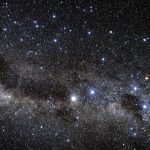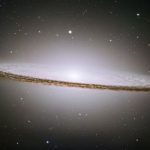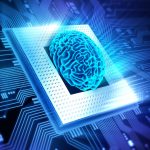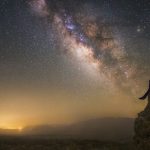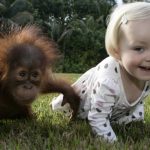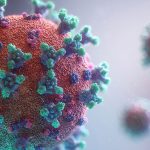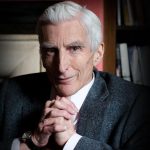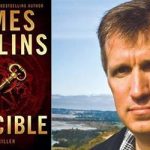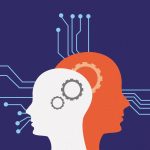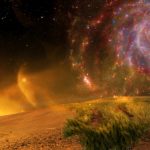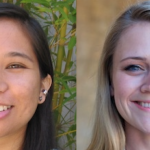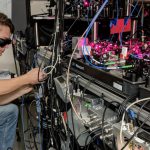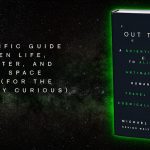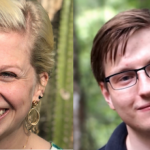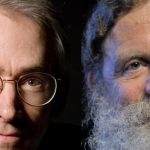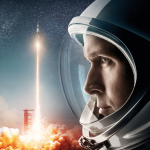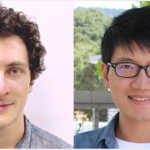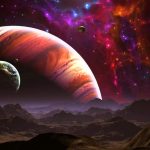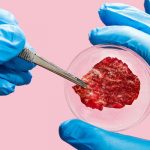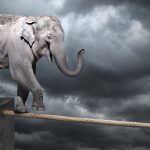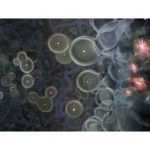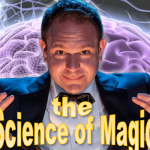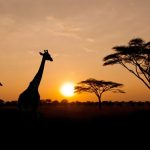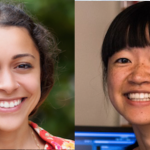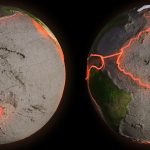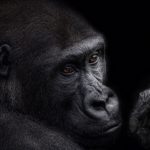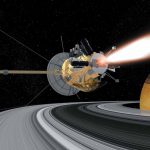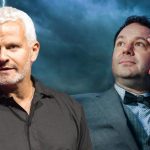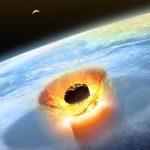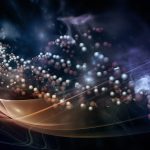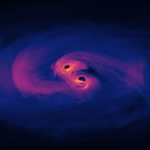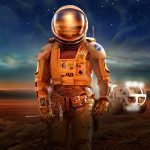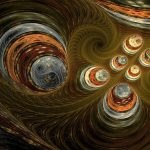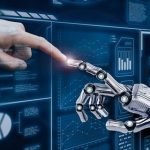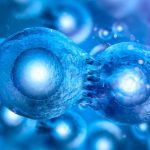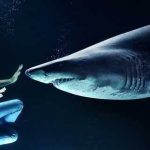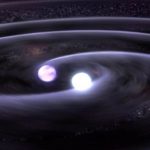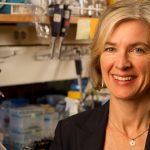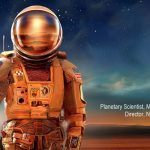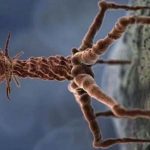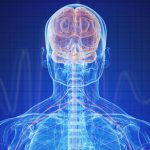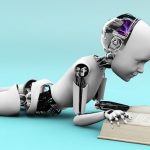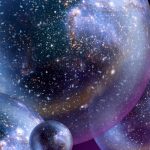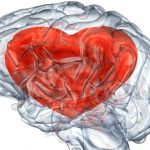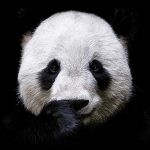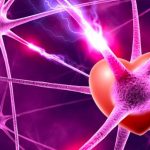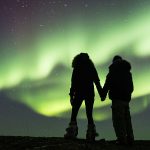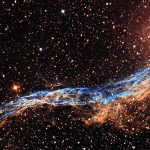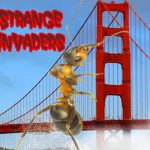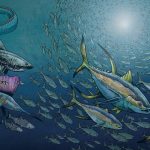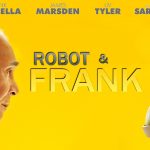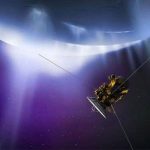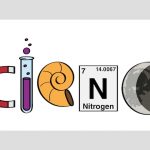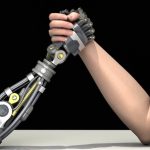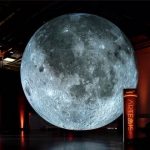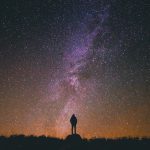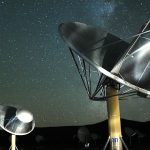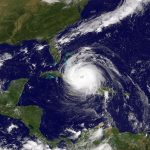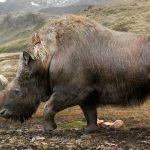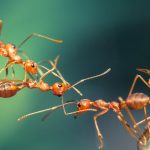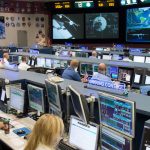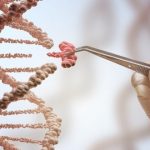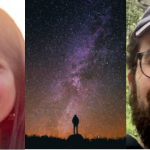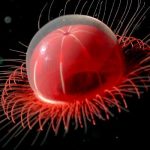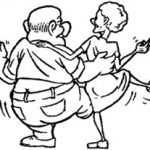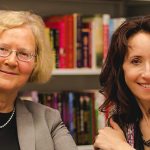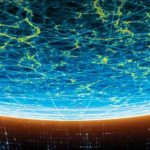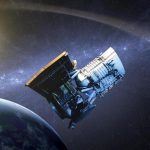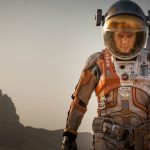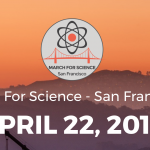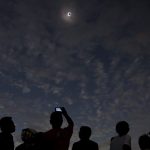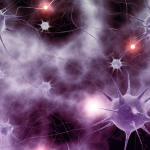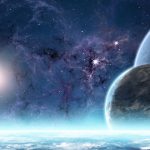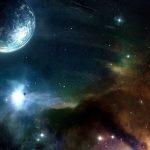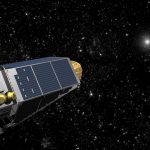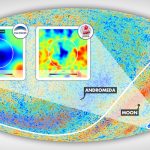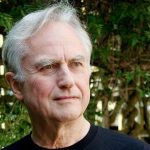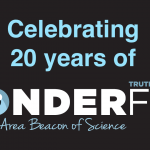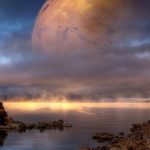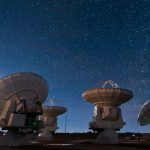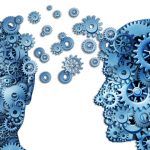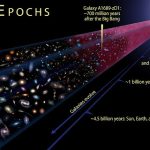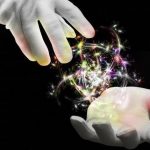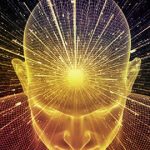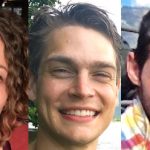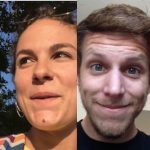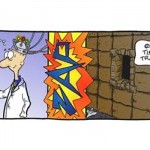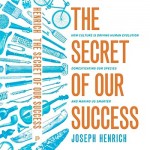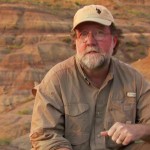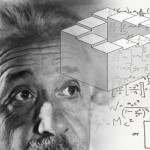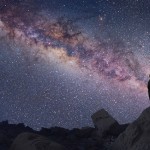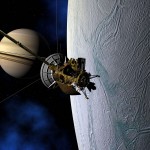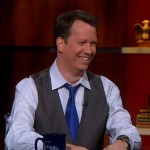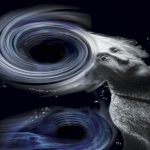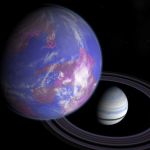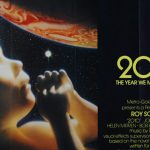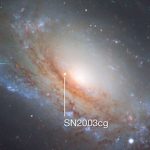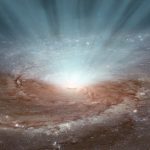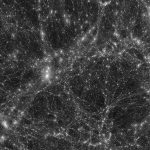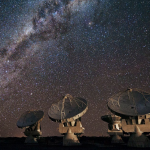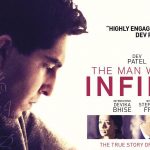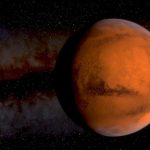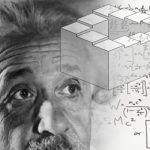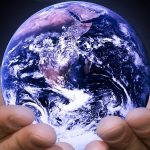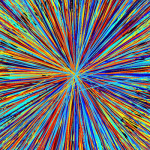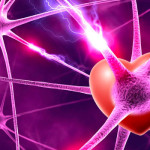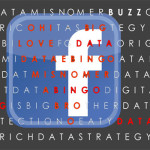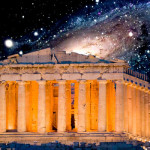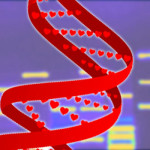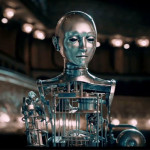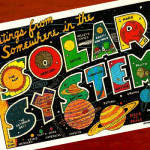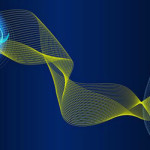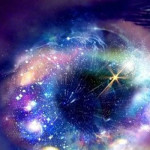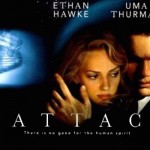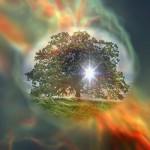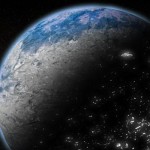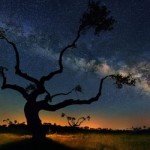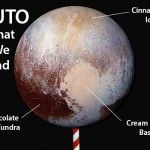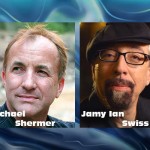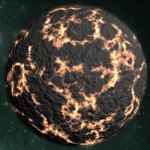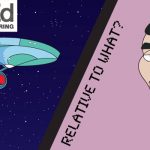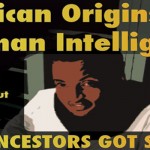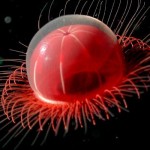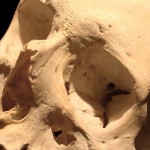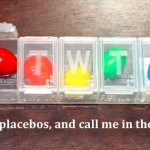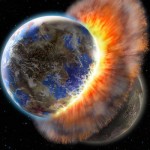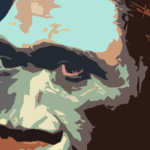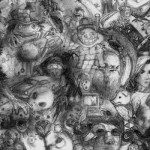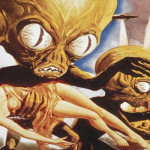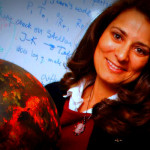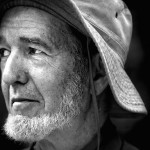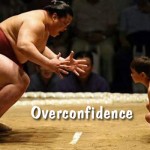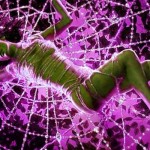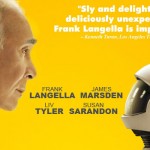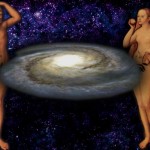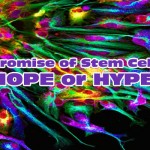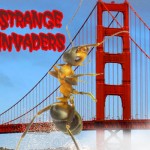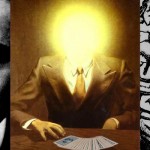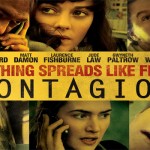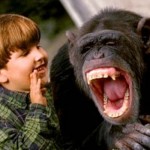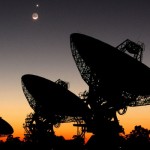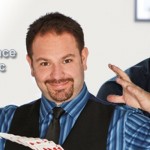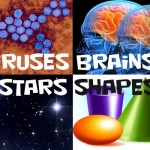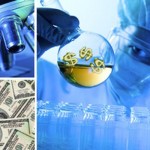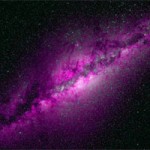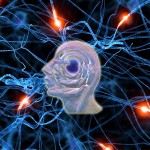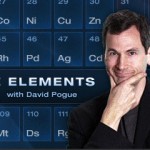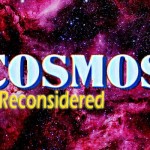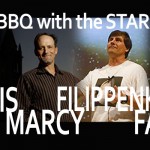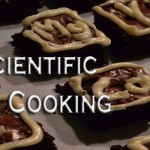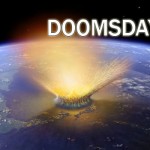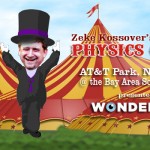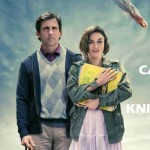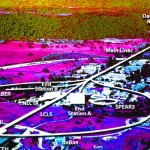2025
- Life’s Information – Jan 14
 All known lifeforms rely on the same molecular mechanism to translate information carried by DNA and RNA into proteins. This translation is accomplished by an incredibly complex system involving many dozens of very large and precisely interacting molecules. All viruses, bacteria, plants, and animals ultimately inherited this common molecular machinery from our Last Universal Common ...
All known lifeforms rely on the same molecular mechanism to translate information carried by DNA and RNA into proteins. This translation is accomplished by an incredibly complex system involving many dozens of very large and precisely interacting molecules. All viruses, bacteria, plants, and animals ultimately inherited this common molecular machinery from our Last Universal Common ... - Strong Aging – Jan 25
 What can we do, today, to improve muscle strength and, accordingly, to increase healthy longevity, i.e., healthspan? It starts by understanding the science of strength and of muscle function, and then appreciating how muscle changes with aging. Ultimately, we find that healthspan increases with simple and effective evidence-based strategies for improving muscle health and function. Our speaker, Dr. ...
What can we do, today, to improve muscle strength and, accordingly, to increase healthy longevity, i.e., healthspan? It starts by understanding the science of strength and of muscle function, and then appreciating how muscle changes with aging. Ultimately, we find that healthspan increases with simple and effective evidence-based strategies for improving muscle health and function. Our speaker, Dr. ... - Sleep-Deprived Emotions – Jan 28
 Insufficient sleep dramatically changes how we feel and think, about ourselves and about others. Even a single night of sleep loss elevates levels of anxiety, depression, and asocial behavior in healthy adults. If sleep loss is chronic, this association can develop into a clinical mental disorder. Since 40% of adults in the US suffer from ...
Insufficient sleep dramatically changes how we feel and think, about ourselves and about others. Even a single night of sleep loss elevates levels of anxiety, depression, and asocial behavior in healthy adults. If sleep loss is chronic, this association can develop into a clinical mental disorder. Since 40% of adults in the US suffer from ... - Black Holes; Kelp Forests – Feb 24
 Wonderfest Science Envoys are early-career researchers with special communication skills and aspirations. Following short talks on provocative modern science topics, these two Science Envoys will answer questions with insight and enthusiasm: • UC Berkeley astrophysicist Natasha Abrams on Black Holes: Discovering the Invisible — Black holes are among the most extreme objects in the universe. They push the boundaries of our knowledge, ...
Wonderfest Science Envoys are early-career researchers with special communication skills and aspirations. Following short talks on provocative modern science topics, these two Science Envoys will answer questions with insight and enthusiasm: • UC Berkeley astrophysicist Natasha Abrams on Black Holes: Discovering the Invisible — Black holes are among the most extreme objects in the universe. They push the boundaries of our knowledge, ... - Life in a Breath – Mar 3
 Earth’s air teems with invisible life. Each of us inhales roughly 100 gallons of air per hour, and the possible peril is, alas, anything but palpable: from gaseous pollutants to weaponized pathogens. The study of life in the atmosphere, aerobiology, is a particularly challenging subject. For example, scientists needed two years to finally agree that ...
Earth’s air teems with invisible life. Each of us inhales roughly 100 gallons of air per hour, and the possible peril is, alas, anything but palpable: from gaseous pollutants to weaponized pathogens. The study of life in the atmosphere, aerobiology, is a particularly challenging subject. For example, scientists needed two years to finally agree that ... - Stand Up for Science – Mar 7
 Science is for everyone, and benefits everyone. But American science is in deep trouble. In a podcast entitled Cuts to Science Funding and Why They Matter, physicist and author Sean Carroll thunders that recent presidential executive orders constitute “an absolutely devastating blow to the way science gets done in the United States.” On Friday afternoon, ...
Science is for everyone, and benefits everyone. But American science is in deep trouble. In a podcast entitled Cuts to Science Funding and Why They Matter, physicist and author Sean Carroll thunders that recent presidential executive orders constitute “an absolutely devastating blow to the way science gets done in the United States.” On Friday afternoon, ... - Anthropocene Alarm; Partisan Contagion – Mar 18
 Wonderfest Science Envoys are early-career researchers with enhanced communication skills and aspirations. Following short talks on provocative modern science topics, these two Science Envoys will answer questions with insight and enthusiasm: • UC Berkeley biologist Kristy Mualim on Genetic Biodiversity Loss in the Anthropocene — In the Anthropocene, the age of planet-wide human impact, activities like habitat destruction, pollution, and resource overuse ...
Wonderfest Science Envoys are early-career researchers with enhanced communication skills and aspirations. Following short talks on provocative modern science topics, these two Science Envoys will answer questions with insight and enthusiasm: • UC Berkeley biologist Kristy Mualim on Genetic Biodiversity Loss in the Anthropocene — In the Anthropocene, the age of planet-wide human impact, activities like habitat destruction, pollution, and resource overuse ... - The Thinking Game – Mar 23
 2024’s The Thinking Game takes us on a journey into DeepMind, one of Earth’s leading AI labs, as it strives to unravel the mysteries of artificial general intelligence (AGI). Inside DeepMind’s London headquarters, Nobel laureate Demis Hassabis and his team are pursuing the creation of AI that matches or surpasses human abilities on a wide ...
2024’s The Thinking Game takes us on a journey into DeepMind, one of Earth’s leading AI labs, as it strives to unravel the mysteries of artificial general intelligence (AGI). Inside DeepMind’s London headquarters, Nobel laureate Demis Hassabis and his team are pursuing the creation of AI that matches or surpasses human abilities on a wide ... - Wonder of Mushrooms – Mar 30
 Over 20,000(!) species of mushroom-forming fungi support the health and diversity of multiple ecosystems. Technically, what are mushrooms? How do they live, and what are some of the myriad ways they disperse, reproduce, and (even) communicate? Perhaps most important, how can we use mushrooms to help feed humanity and heal the biosphere? Our speaker is Dr. ...
Over 20,000(!) species of mushroom-forming fungi support the health and diversity of multiple ecosystems. Technically, what are mushrooms? How do they live, and what are some of the myriad ways they disperse, reproduce, and (even) communicate? Perhaps most important, how can we use mushrooms to help feed humanity and heal the biosphere? Our speaker is Dr. ... - Other Humans – Apr 1
 We are members of the genus Homo, distinguished from other primates as bipedal great apes. So far, we have found fossil evidence for several other members of our genus, i.e., several other humans. How does a fossil gain entry into this exclusive club? How many members are there? What do we currently know about these ...
We are members of the genus Homo, distinguished from other primates as bipedal great apes. So far, we have found fossil evidence for several other members of our genus, i.e., several other humans. How does a fossil gain entry into this exclusive club? How many members are there? What do we currently know about these ... - Muscle & Strength – Apr 2
 Muscle plays a central role in life and health. At this Commonwealth Club event, Michael Joseph Gross, author of the new book Stronger: The Untold Story of Muscle in Our Lives, shares his call for each of us to recognize muscle as “the vital, inextricable, and effective partner of the soul.” Learn how Gross looks ...
Muscle plays a central role in life and health. At this Commonwealth Club event, Michael Joseph Gross, author of the new book Stronger: The Untold Story of Muscle in Our Lives, shares his call for each of us to recognize muscle as “the vital, inextricable, and effective partner of the soul.” Learn how Gross looks ... - Eye Movements & Tiny Galaxies – Apr 15
 Wonderfest Science Envoys are early-career researchers with enhanced communication skills and aspirations. Following short talks on provocative modern science topics, these two Science Envoys will answer questions with insight and enthusiasm: • UC Berkeley neuroscientist Stephanie Reeves on The Horizontal Saccade Bias — Humans make eye movements to explore the visual environment. One type of involuntary eye movement, termed a saccade, ...
Wonderfest Science Envoys are early-career researchers with enhanced communication skills and aspirations. Following short talks on provocative modern science topics, these two Science Envoys will answer questions with insight and enthusiasm: • UC Berkeley neuroscientist Stephanie Reeves on The Horizontal Saccade Bias — Humans make eye movements to explore the visual environment. One type of involuntary eye movement, termed a saccade, ... - Animal Gender Diversity – Apr 17
 The words sex and gender challenge us, even scientifically. Sex commonly refers to a creature’s physical and biological characteristics. Gender refers to behavior and self-presentation within a social group. Since nature is replete with social groups, we can take rich delight in trying to understand gender diversity among animals. This is a key topic in ...
The words sex and gender challenge us, even scientifically. Sex commonly refers to a creature’s physical and biological characteristics. Gender refers to behavior and self-presentation within a social group. Since nature is replete with social groups, we can take rich delight in trying to understand gender diversity among animals. This is a key topic in ... - Science Reporting – Apr 29
 Radio and TV journalist Ira Flatow produced his first science stories back in 1970 during the inaugural Earth Day. Since then, he has worked for Emmy Award-winning science programs and covered science for a number of high-profile news organizations, and has hosted the popular public radio program “Science Friday” for more than three decades. In ...
Radio and TV journalist Ira Flatow produced his first science stories back in 1970 during the inaugural Earth Day. Since then, he has worked for Emmy Award-winning science programs and covered science for a number of high-profile news organizations, and has hosted the popular public radio program “Science Friday” for more than three decades. In ... - Kilonova Metals & Cat Ecology – Apr 29
 Wonderfest Science Envoys are early-career researchers with enhanced communication skills and aspirations. Following short talks on provocative modern science topics, these two Science Envoys will answer questions with insight and enthusiasm: • UC Berkeley astrophysicist Daniel Brethauer on Astronomically Rocking Out to Heavy Metals — The gold in jewelry, the uranium in a nuclear power plant, the caesium in atomic clocks: what ...
Wonderfest Science Envoys are early-career researchers with enhanced communication skills and aspirations. Following short talks on provocative modern science topics, these two Science Envoys will answer questions with insight and enthusiasm: • UC Berkeley astrophysicist Daniel Brethauer on Astronomically Rocking Out to Heavy Metals — The gold in jewelry, the uranium in a nuclear power plant, the caesium in atomic clocks: what ... - AI Memorization; Frog Secrets – May 13
 Wonderfest Science Envoys are early-career researchers with enhanced communication skills and aspirations. Following short talks on provocative modern science topics, these two Science Envoys will answer questions with insight and enthusiasm: • Stanford computer scientist Nicole Meister on Has ChatGPT Memorized the Internet? — Large Language Models (LLMs), such as ChatGPT, have recently gained widespread popularity. Trained on vast amounts of internet ...
Wonderfest Science Envoys are early-career researchers with enhanced communication skills and aspirations. Following short talks on provocative modern science topics, these two Science Envoys will answer questions with insight and enthusiasm: • Stanford computer scientist Nicole Meister on Has ChatGPT Memorized the Internet? — Large Language Models (LLMs), such as ChatGPT, have recently gained widespread popularity. Trained on vast amounts of internet ... - Smartphone Seismology & Histamine Neurology – May 27
 Wonderfest Science Envoys are early-career researchers with enhanced communication skills and aspirations. Following short talks on provocative modern science topics, these two Science Envoys will answer questions with insight and enthusiasm: • UC Berkeley seismologist Savvas Marcou on Smartphones Map Ground Shaking in Our Neighborhoods — California is earthquake country. Everyone would love to know how much shaking the next temblor will ...
Wonderfest Science Envoys are early-career researchers with enhanced communication skills and aspirations. Following short talks on provocative modern science topics, these two Science Envoys will answer questions with insight and enthusiasm: • UC Berkeley seismologist Savvas Marcou on Smartphones Map Ground Shaking in Our Neighborhoods — California is earthquake country. Everyone would love to know how much shaking the next temblor will ... - Natural Physics – June 10
 Basic physics shapes the natural world. Through evolution, creatures have figured out how to use the laws of physics to make biology flourish. Flamingos generate water vortices to trap food. Various birds and fish use vortex shedding and fluid turbulence to control movement. For small animals, electrostatic forces and/or capillary forces can reign over gravity ...
Basic physics shapes the natural world. Through evolution, creatures have figured out how to use the laws of physics to make biology flourish. Flamingos generate water vortices to trap food. Various birds and fish use vortex shedding and fluid turbulence to control movement. For small animals, electrostatic forces and/or capillary forces can reign over gravity ... - Science of Love – June 24
 Love may not “make the world go ’round,” but it surely makes the ride more joyous. The outward displays of love are familiar and simple: a reassuring touch, a passionate kiss, a bedtime story told to a drowsy child. But what is going on inside the brains of people in a loving relationship? Surprisingly, neuroscience ...
Love may not “make the world go ’round,” but it surely makes the ride more joyous. The outward displays of love are familiar and simple: a reassuring touch, a passionate kiss, a bedtime story told to a drowsy child. But what is going on inside the brains of people in a loving relationship? Surprisingly, neuroscience ... - Evolution on Trial – July 8
 2025 marks the 100th anniversary of the “Trial of the Century”: Tennessee vs. John T. Scopes, the first major legal assault against the teaching of evolution in America. Mostly because of the fictional movie Inherit the Wind, the Scopes “monkey trial” is wrongly perceived as a victory for evolution over the forces of obscurantism. The ...
2025 marks the 100th anniversary of the “Trial of the Century”: Tennessee vs. John T. Scopes, the first major legal assault against the teaching of evolution in America. Mostly because of the fictional movie Inherit the Wind, the Scopes “monkey trial” is wrongly perceived as a victory for evolution over the forces of obscurantism. The ... - Quantum Gravity – July 29
 By allowing space and time to bend, Einstein’s theory of gravity, General Relativity, explains how apples fall, how planets move, how the universe expands, and how black holes form. Quantum Mechanics, on the other hand, describes subatomic physics — in a very different language that seems incompatible with General Relativity. Yet, unlike any other classical ...
By allowing space and time to bend, Einstein’s theory of gravity, General Relativity, explains how apples fall, how planets move, how the universe expands, and how black holes form. Quantum Mechanics, on the other hand, describes subatomic physics — in a very different language that seems incompatible with General Relativity. Yet, unlike any other classical ... - Fusion Energy – Aug 12
 Fusion research aims to bring sun-like energy production safely to Earth. Recent advances have been momentous, including scientific breakthroughs at Lawrence Livermore Lab’s National Ignition Facility, where Earth’s most energetic lasers drive hydrogen atoms to fuse in a controlled thermonuclear reaction. What challenges remain as we work to put the world’s first fusion power plant ...
Fusion research aims to bring sun-like energy production safely to Earth. Recent advances have been momentous, including scientific breakthroughs at Lawrence Livermore Lab’s National Ignition Facility, where Earth’s most energetic lasers drive hydrogen atoms to fuse in a controlled thermonuclear reaction. What challenges remain as we work to put the world’s first fusion power plant ... - Insect Encounters – Aug 26
 Dr. Vernard Lewis first encountered insects as a child, capturing grasshoppers and ants in California’s central valley. Since then, he has traveled to fifty countries to discuss many creepy-crawlies, sometimes as a member of the United Nations Global Termite Expert Group. This Wonderfest event offers a rather personal account of a bug-rich life, including oakworm ...
Dr. Vernard Lewis first encountered insects as a child, capturing grasshoppers and ants in California’s central valley. Since then, he has traveled to fifty countries to discuss many creepy-crawlies, sometimes as a member of the United Nations Global Termite Expert Group. This Wonderfest event offers a rather personal account of a bug-rich life, including oakworm ... - Sleep & Recovery – Sep 16
 Diet, exercise, connection, and sleep are four key determining factors in human health. Sleep, in particular, plays a critical role in recovery and resilience. Fortunately, recent eye-opening (*ahem*) research can help us harness sleep science to improve everyday life and long-term health. Our Wonderfest speaker, Greg Tranah, PhD, is Professor of Epidemiology & Biostatistics at UC ...
Diet, exercise, connection, and sleep are four key determining factors in human health. Sleep, in particular, plays a critical role in recovery and resilience. Fortunately, recent eye-opening (*ahem*) research can help us harness sleep science to improve everyday life and long-term health. Our Wonderfest speaker, Greg Tranah, PhD, is Professor of Epidemiology & Biostatistics at UC ... - AI for Learning – Sep 30
 AI tools are everywhere now, promising to help us write, solve, understand, and create faster and more easily than ever. But there is a growing concern: Are these tools actually helping us learn, or just making it look or feel like we know something? Can we develop AI systems to support deep human learning? Truly ...
AI tools are everywhere now, promising to help us write, solve, understand, and create faster and more easily than ever. But there is a growing concern: Are these tools actually helping us learn, or just making it look or feel like we know something? Can we develop AI systems to support deep human learning? Truly ... - Replacement Anatomy – Oct 9
 The human body may be hard to improve, at least from the perspective of modern medical innovation. Still, we try — especially as these wonderful mortal machines start to fall apart. Mary Roach, New York Times bestselling author of Stiff and Fuzz, follows the astonishing evolution of body-part replacement, from sculpting noses of brass to ...
The human body may be hard to improve, at least from the perspective of modern medical innovation. Still, we try — especially as these wonderful mortal machines start to fall apart. Mary Roach, New York Times bestselling author of Stiff and Fuzz, follows the astonishing evolution of body-part replacement, from sculpting noses of brass to ... - Three Intelligences – Oct 28
 A common model of AI suggests that there is a single measure of intelligence, often called AGI, and that AI systems are agents who can possess more or less of this intelligence. Cognitive science, in contrast, suggests that there are multiple forms of intelligence and that these intelligences trade-off against each other and have a ...
A common model of AI suggests that there is a single measure of intelligence, often called AGI, and that AI systems are agents who can possess more or less of this intelligence. Cognitive science, in contrast, suggests that there are multiple forms of intelligence and that these intelligences trade-off against each other and have a ...
- Human Hibernation? – Jan 9
 Sci-Fi movies often depict hibernation as the secret to long-duration human spaceflight. (Note: Even with ideal starship acceleration and deceleration — AND with the benefit of relativistic effects — the nearest exoplanet is 3.6 years away!) Of course, the boundary between science fiction and science fantasy is hazy. Advances in anesthesia may facilitate hibernation. Physiologically, ...
Sci-Fi movies often depict hibernation as the secret to long-duration human spaceflight. (Note: Even with ideal starship acceleration and deceleration — AND with the benefit of relativistic effects — the nearest exoplanet is 3.6 years away!) Of course, the boundary between science fiction and science fantasy is hazy. Advances in anesthesia may facilitate hibernation. Physiologically, ... - Self Confidence – Jan 23
 How confident should we be? Overconfidence leads people to delude themselves with wishful thinking, take too many risks, pursue impossible goals, and waste their time on doomed ventures. Underconfidence dissuades people from taking risks that would pay off, and scares them away from trying things they would enjoy. Psychological studies offer evidence pointing to a ...
How confident should we be? Overconfidence leads people to delude themselves with wishful thinking, take too many risks, pursue impossible goals, and waste their time on doomed ventures. Underconfidence dissuades people from taking risks that would pay off, and scares them away from trying things they would enjoy. Psychological studies offer evidence pointing to a ... - Most Famous Equation – Jan 31
 Around the world, people recognize that E=mc^2 oozes cosmic insight. But what does this “most famous equation” really say? What are energy and mass? And what makes the speed of light, c, so important? Using little more than common experience and middle-school math, Einstein’s “special relativity” gem ...
Around the world, people recognize that E=mc^2 oozes cosmic insight. But what does this “most famous equation” really say? What are energy and mass? And what makes the speed of light, c, so important? Using little more than common experience and middle-school math, Einstein’s “special relativity” gem ... - Future Nuclear Power – Feb 13
 Currently, nuclear power provides ten percent of world electricity generation. As physicists and engineers strive to make new reactors that are small, clean, and safe, what does the future hold for nuclear power in a warming world? Join this discussion of the current status and future directions for nuclear energy.
Currently, nuclear power provides ten percent of world electricity generation. As physicists and engineers strive to make new reactors that are small, clean, and safe, what does the future hold for nuclear power in a warming world? Join this discussion of the current status and future directions for nuclear energy. - Most Famous Equation – Feb 17
 Around the world, people recognize that E=mc^2 oozes cosmic insight. But what does this “most famous equation” really say? What are energy and mass? And what makes the speed of light, c, so important? Using little more than common experience and middle-school math, Einstein’s “special relativity” gem ...
Around the world, people recognize that E=mc^2 oozes cosmic insight. But what does this “most famous equation” really say? What are energy and mass? And what makes the speed of light, c, so important? Using little more than common experience and middle-school math, Einstein’s “special relativity” gem ... - The Sense of Fairness – Feb 20
 Do non-human animals possess a sense of fairness? In particular, do non-human individuals react negatively when they get fewer resources than others? New evidence suggests that the sense of fairness is a human-unique adaptation to our cooperative lifestyles, typically developing in children by age 8. Further, a new theory suggests that, maybe surprisingly, fairness is ...
Do non-human animals possess a sense of fairness? In particular, do non-human individuals react negatively when they get fewer resources than others? New evidence suggests that the sense of fairness is a human-unique adaptation to our cooperative lifestyles, typically developing in children by age 8. Further, a new theory suggests that, maybe surprisingly, fairness is ... - BlackBerry Psych – Mar 26
 How and why do corporations decline? BlackBerry (98% FRESH at Rotten Tomatoes) offers a tragicomic portrait of decline in Earth’s foremost business smartphone maker, 1999-2016. Following this special Science on Screen presentation of BlackBerry, UC Berkeley researcher Dr. Don Moore will illuminate the psychological challenges that face all businesses and, in fact, virtually all human relations. Psychologist ...
How and why do corporations decline? BlackBerry (98% FRESH at Rotten Tomatoes) offers a tragicomic portrait of decline in Earth’s foremost business smartphone maker, 1999-2016. Following this special Science on Screen presentation of BlackBerry, UC Berkeley researcher Dr. Don Moore will illuminate the psychological challenges that face all businesses and, in fact, virtually all human relations. Psychologist ... - Biorhythms; Decarbonization – Apr 2
 Wonderfest Science Envoys are early-career researchers with special communication skills and aspirations. Following short talks on provocative modern science topics, these two Science Envoys will answer questions with insight and enthusiasm: • Stanford biologist Mila Pamplona-Barbosa on Biological Rhythms: From Ants to You — How can ants possibly organize their behavior? An ant colony can have hundreds to millions of individuals and, ...
Wonderfest Science Envoys are early-career researchers with special communication skills and aspirations. Following short talks on provocative modern science topics, these two Science Envoys will answer questions with insight and enthusiasm: • Stanford biologist Mila Pamplona-Barbosa on Biological Rhythms: From Ants to You — How can ants possibly organize their behavior? An ant colony can have hundreds to millions of individuals and, ... - Verifying AI; Ultracold Atoms – Apr 16
 Wonderfest Science Envoys are early-career researchers with special communication skills and aspirations. Following short talks on provocative modern science topics, these two Science Envoys will answer questions with insight and enthusiasm: • Stanford computer scientist Teddi Worledge on Verifying AI with Attributed Sources — So-called large language models (LLMs) provide information and make judgments nearly everywhere — from online ...
Wonderfest Science Envoys are early-career researchers with special communication skills and aspirations. Following short talks on provocative modern science topics, these two Science Envoys will answer questions with insight and enthusiasm: • Stanford computer scientist Teddi Worledge on Verifying AI with Attributed Sources — So-called large language models (LLMs) provide information and make judgments nearly everywhere — from online ... - Communication; Growth – Apr 30
 Wonderfest Science Envoys are early-career researchers with special communication skills and aspirations. Following short talks on provocative modern science topics, these two Science Envoys will answer questions with insight and enthusiasm: • UC Berkeley psychologist Sophia Li on Imperfect Communication — As a communicator, I want to transfer information from my mind into the minds of listeners. Research shows that ...
Wonderfest Science Envoys are early-career researchers with special communication skills and aspirations. Following short talks on provocative modern science topics, these two Science Envoys will answer questions with insight and enthusiasm: • UC Berkeley psychologist Sophia Li on Imperfect Communication — As a communicator, I want to transfer information from my mind into the minds of listeners. Research shows that ... - Spider Science – May 7
 Do spiders deserve much better press? Modern media tend to portray spiders as eight-legged, multi-eyed terrors. With deeper exposure, and open minds, can we come to see the beauty and benefits of our arachnid aquaintances? UC Berkeley scientist Trinity Walls thinks so. Her life-long journey — from curious child to rigorous researcher — reveals spider ...
Do spiders deserve much better press? Modern media tend to portray spiders as eight-legged, multi-eyed terrors. With deeper exposure, and open minds, can we come to see the beauty and benefits of our arachnid aquaintances? UC Berkeley scientist Trinity Walls thinks so. Her life-long journey — from curious child to rigorous researcher — reveals spider ... - Quanta and Fields – May 14
 Arguably, quantum field theory (QFT) presents humanity’s deepest insights into the rules of reality, i.e., into the laws of existence. QFT allows us to describe — with remarkable accuracy — the particles and forces that animate the cosmos, including the stuff of mind and body. Note that calling QFT a theory pays the highest scientific ...
Arguably, quantum field theory (QFT) presents humanity’s deepest insights into the rules of reality, i.e., into the laws of existence. QFT allows us to describe — with remarkable accuracy — the particles and forces that animate the cosmos, including the stuff of mind and body. Note that calling QFT a theory pays the highest scientific ... - DEEP RISING – May 19
 The ocean floor of our “water planet” is vast — rich in biodiversity and dense in mineral wealth. A single organization, the International Seabed Authority, governs roughly half of this undersea territory, and that governance is scientifically and economically challenging, to say the least. Wonderfest joins Cameo Cinema for a special Science on Screen presentation ...
The ocean floor of our “water planet” is vast — rich in biodiversity and dense in mineral wealth. A single organization, the International Seabed Authority, governs roughly half of this undersea territory, and that governance is scientifically and economically challenging, to say the least. Wonderfest joins Cameo Cinema for a special Science on Screen presentation ... - Finding the Wild – May 23
 Naturalist Craig Foster has explored and studied some of Earth’s wildest environments. He has also experienced the demands of professional life in our big cities — experiences that might tend to deaden a capacity to appreciate natural beauty. Foster’s latest book, Amphibious Soul: Finding the Wild in a Tame World, vividly addresses the challenge of ...
Naturalist Craig Foster has explored and studied some of Earth’s wildest environments. He has also experienced the demands of professional life in our big cities — experiences that might tend to deaden a capacity to appreciate natural beauty. Foster’s latest book, Amphibious Soul: Finding the Wild in a Tame World, vividly addresses the challenge of ... - Life’s Code + Gut Feeling – May 28
 Wonderfest Science Envoys are early-career researchers with special communication skills and aspirations. Following short talks on provocative modern science topics, these two Science Envoys will answer questions with insight and enthusiasm: • UC Berkeley plant biologist Enrico Calvanese on The Interpreters of Life’s Code — Proteins are molecular machines that enable all cellular life. How proteins are produced infuses our understanding of microbiology. ...
Wonderfest Science Envoys are early-career researchers with special communication skills and aspirations. Following short talks on provocative modern science topics, these two Science Envoys will answer questions with insight and enthusiasm: • UC Berkeley plant biologist Enrico Calvanese on The Interpreters of Life’s Code — Proteins are molecular machines that enable all cellular life. How proteins are produced infuses our understanding of microbiology. ... - Strong Aging – June 11
 What can we do, today, to improve muscle strength and, accordingly, to increase healthy longevity, i.e., healthspan? It starts by understanding the science of strength and of muscle function, and then appreciating how muscle changes with aging. Ultimately, we find that healthspan increases with simple and effective evidence-based strategies for improving muscle health and function.
What can we do, today, to improve muscle strength and, accordingly, to increase healthy longevity, i.e., healthspan? It starts by understanding the science of strength and of muscle function, and then appreciating how muscle changes with aging. Ultimately, we find that healthspan increases with simple and effective evidence-based strategies for improving muscle health and function. - Karl the Fog – June 25
 As poet Carl Sandburg observed: “The fog comes on little cat feet. It sits looking over harbor and city on silent haunches, and then moves on.” What is the nature of The City’s renowned Karl the Fog? Do those super-fine droplets consist of more than just water? Why does our beloved(?) Karl creep over the ...
As poet Carl Sandburg observed: “The fog comes on little cat feet. It sits looking over harbor and city on silent haunches, and then moves on.” What is the nature of The City’s renowned Karl the Fog? Do those super-fine droplets consist of more than just water? Why does our beloved(?) Karl creep over the ... - Smart Uncertainty – July 13
 Human minds love to discover patterns, to find intuitive explanations, and, most of all, to be certain. Yet our world is complicated and filled with randomness. Statistical thinking provides us with practical tools for making sense of an uncertain world. It can lead us to make surprising conclusions from the data of everyday life. And ...
Human minds love to discover patterns, to find intuitive explanations, and, most of all, to be certain. Yet our world is complicated and filled with randomness. Statistical thinking provides us with practical tools for making sense of an uncertain world. It can lead us to make surprising conclusions from the data of everyday life. And ... - Scavengers+DarkMatter+Biomolecules – Jul 16
 Wonderfest Science Envoys are early-career researchers with special communication skills and aspirations. Following short talks on provocative modern science topics, these three Science Envoys will answer questions with insight and enthusiasm: • Stanford ecologist Chinmay Sonawane on How Scavenging Animals Protect Human Health — Wildlife is rapidly disappearing globally. But why should we care? The loss of scavengers (consumers of ...
Wonderfest Science Envoys are early-career researchers with special communication skills and aspirations. Following short talks on provocative modern science topics, these three Science Envoys will answer questions with insight and enthusiasm: • Stanford ecologist Chinmay Sonawane on How Scavenging Animals Protect Human Health — Wildlife is rapidly disappearing globally. But why should we care? The loss of scavengers (consumers of ... - Black Hole Tech – July 30
 The nearest black hole lurks 1,500 light-years from Earth (~ 10 quadrillion miles!), and it neither emits nor reflects light. How can we possibly detect — far less investigate — such wondrous holes in the fabric of spacetime? High-precision astrometry is the key: adaptive optics allow ground-based telescopes to see through our turbulent atmosphere using ...
The nearest black hole lurks 1,500 light-years from Earth (~ 10 quadrillion miles!), and it neither emits nor reflects light. How can we possibly detect — far less investigate — such wondrous holes in the fabric of spacetime? High-precision astrometry is the key: adaptive optics allow ground-based telescopes to see through our turbulent atmosphere using ... - Most Famous Equation – Aug 13
 Around the world, people recognize that E=mc^2 oozes cosmic insight. But what does this “most famous equation” really say? What are energy and mass? And what makes the speed of light, c, so important? Using little more than common experience and middle-school math, Einstein’s “special relativity” ...
Around the world, people recognize that E=mc^2 oozes cosmic insight. But what does this “most famous equation” really say? What are energy and mass? And what makes the speed of light, c, so important? Using little more than common experience and middle-school math, Einstein’s “special relativity” ... - The Fermi Paradox – Aug 27
 Since 1950, when physicist Enrico Fermi casually posed the question, the mystery has only deepened: Why hasn’t ET visited us? Current evidence and reasoning suggest that life has been evolving in the cosmos for billions of years. Moreover, low-speed interstellar travel requires relatively modest technology. So why is the UFO evidence so poor, and the ...
Since 1950, when physicist Enrico Fermi casually posed the question, the mystery has only deepened: Why hasn’t ET visited us? Current evidence and reasoning suggest that life has been evolving in the cosmos for billions of years. Moreover, low-speed interstellar travel requires relatively modest technology. So why is the UFO evidence so poor, and the ... - Perception & Attention – Sep 10
 Every second, we encounter enormous amounts of sensory information. How does the brain extract the most relevant bits from this information firehose? Attention is one important brain mechanism for selecting certain aspects of the environment for enhanced processing. A better understanding of attention’s effect on perception improves a wide variety of human activities, including making policy for cell phone use ...
Every second, we encounter enormous amounts of sensory information. How does the brain extract the most relevant bits from this information firehose? Attention is one important brain mechanism for selecting certain aspects of the environment for enhanced processing. A better understanding of attention’s effect on perception improves a wide variety of human activities, including making policy for cell phone use ... - Universe of Universes? – Oct 1
 Despite implications of the prefix “uni,” many scientists now think that there might be more than a single universe! Our universe may be just one example in a far larger “multiverse,” but an unusually complex one that is conducive to the existence of life. Come learn — and inquire — about the relevant lines of ...
Despite implications of the prefix “uni,” many scientists now think that there might be more than a single universe! Our universe may be just one example in a far larger “multiverse,” but an unusually complex one that is conducive to the existence of life. Come learn — and inquire — about the relevant lines of ... - Turtle Rescue – Oct 18
 Ancient and unhurried, long-lived and majestic, turtles — some individuals living longer than 200 years — have a lineage that stretches back to the time of the dinosaurs. In literary terms, turtles are “the perfect conduits for meditations on aging, disability, and chosen family,” according to Scientific American. Such meditations suffuse the book Of Time ...
Ancient and unhurried, long-lived and majestic, turtles — some individuals living longer than 200 years — have a lineage that stretches back to the time of the dinosaurs. In literary terms, turtles are “the perfect conduits for meditations on aging, disability, and chosen family,” according to Scientific American. Such meditations suffuse the book Of Time ... - Color Me Curious – Oct 29
 Mathematicians have spent decades wrestling with questions about coloring. Here’s one famous example: how many colors do mapmakers need to ensure that no two adjacent regions have the same color? Mathematicians struggled with that for over 100 years! In this colorful presentation, we’ll share these coloring problems, the exciting breakthroughs, and the problems which still ...
Mathematicians have spent decades wrestling with questions about coloring. Here’s one famous example: how many colors do mapmakers need to ensure that no two adjacent regions have the same color? Mathematicians struggled with that for over 100 years! In this colorful presentation, we’ll share these coloring problems, the exciting breakthroughs, and the problems which still ... - Nightmare on Main Street – Nov 2
 Is it merely fun to play with the idea of ghosts, or do ghosts truly exist? Naturally, evidence of non-corporeal spirits is hard to come by. Where should we look? Perhaps the ghostly haunt of choice is an abandoned winery in beautiful Napa Valley! Isn’t that where many spirits would be dying to go? Soon after ...
Is it merely fun to play with the idea of ghosts, or do ghosts truly exist? Naturally, evidence of non-corporeal spirits is hard to come by. Where should we look? Perhaps the ghostly haunt of choice is an abandoned winery in beautiful Napa Valley! Isn’t that where many spirits would be dying to go? Soon after ... - Inverse Darwinism – Nov 12
 Darwin’s theory of natural selection sheds light on nearly every aspect of evolutionary biology. However, it does not address the source of varying structures and functions that are subsequently culled or preserved by natural selection. Advances in cellular and molecular biology are now bringing these generative processes to light. Such technical advances hint at processes that ...
Darwin’s theory of natural selection sheds light on nearly every aspect of evolutionary biology. However, it does not address the source of varying structures and functions that are subsequently culled or preserved by natural selection. Advances in cellular and molecular biology are now bringing these generative processes to light. Such technical advances hint at processes that ... - Hacking Gerrymandering – Nov 26
 In principle, we all love to hate political gerrymandering. But how can we learn to deal with it, to manage it, … to hack it? In the past decade, mathematicians and computer scientists have developed inventive and revealing tools to find all kinds of gerrymanders: from the pretty-but-partisan, to the hidden firewall. Join us to ...
In principle, we all love to hate political gerrymandering. But how can we learn to deal with it, to manage it, … to hack it? In the past decade, mathematicians and computer scientists have developed inventive and revealing tools to find all kinds of gerrymanders: from the pretty-but-partisan, to the hidden firewall. Join us to ... - Overcoming Vision’s Limits – Dec 10
 It’s a classic question of color perception: Is my red the same as your red? Using special optical systems that bypass normal visual processes in the eye (optical blur, eye movements), researchers are able to send sensory information to the human brain that it has never experienced before. The BIG question is: If you give ...
It’s a classic question of color perception: Is my red the same as your red? Using special optical systems that bypass normal visual processes in the eye (optical blur, eye movements), researchers are able to send sensory information to the human brain that it has never experienced before. The BIG question is: If you give ...
- Going to the Stars – Jan 9
 The stars beckon. Alas, interstellar distances are fantastically challenging. (A lightbeam needs 1/7th of a second to go around the world, but over 4 years to reach our Sun’s nearest-neighbor star, Proxima Centauri.) Determined explorers at Breakthrough Starshot are developing miniature robot space probes — to be accelerated by laser light from Earth — whose cameras ...
The stars beckon. Alas, interstellar distances are fantastically challenging. (A lightbeam needs 1/7th of a second to go around the world, but over 4 years to reach our Sun’s nearest-neighbor star, Proxima Centauri.) Determined explorers at Breakthrough Starshot are developing miniature robot space probes — to be accelerated by laser light from Earth — whose cameras ... - Never Home Alone – Jan 10
 After nearly three years of increased “sheltering at home,” you may have noticed more six-legged critters sharing your shelter. Scientists, too, have been taking a closer look at these more numerous (and more brazen?) insect invaders. What surprising findings have the researchers uncovered? Our speaker is Dr. Vernard Lewis, Cooperative Extension Specialist (emeritus) at UC Berkeley. Dr. ...
After nearly three years of increased “sheltering at home,” you may have noticed more six-legged critters sharing your shelter. Scientists, too, have been taking a closer look at these more numerous (and more brazen?) insect invaders. What surprising findings have the researchers uncovered? Our speaker is Dr. Vernard Lewis, Cooperative Extension Specialist (emeritus) at UC Berkeley. Dr. ... - The Heart of Matter – Jan 22
 Physics has always sought to deepen our understanding of reality, particularly our concept of matter. Today, city-size machines crash together particles — at nearly the speed of light — that are a trillion times smaller than a grain of sand. The resulting insights have both theoretical and practical value: a more profound (and weird) concept ...
Physics has always sought to deepen our understanding of reality, particularly our concept of matter. Today, city-size machines crash together particles — at nearly the speed of light — that are a trillion times smaller than a grain of sand. The resulting insights have both theoretical and practical value: a more profound (and weird) concept ... - Neuroplasticity – Jan 31
 Experiences at different times in life may alter aspects of personality: appetite for risk, tolerance for delayed gratification, interest in music, etc. Our brains seem to develop particularly rapidly during a staggered sequence of “sensitive periods” that stretch late into the second or third decade of life. Such periods of high neuroplasticity are ripe for ...
Experiences at different times in life may alter aspects of personality: appetite for risk, tolerance for delayed gratification, interest in music, etc. Our brains seem to develop particularly rapidly during a staggered sequence of “sensitive periods” that stretch late into the second or third decade of life. Such periods of high neuroplasticity are ripe for ... - Webb Space Telescope – Feb 7
 We have a new supersensitive eye in the cosmic sky. Parked nearly one million miles from Earth, the James Webb Space Telescope (JWST) is ~100 times more sensitive than the Hubble Space Telescope. JWST observes at “low” frequencies, from the red to the mid-infrared parts of the spectrum, offering new insights into a vast array of ...
We have a new supersensitive eye in the cosmic sky. Parked nearly one million miles from Earth, the James Webb Space Telescope (JWST) is ~100 times more sensitive than the Hubble Space Telescope. JWST observes at “low” frequencies, from the red to the mid-infrared parts of the spectrum, offering new insights into a vast array of ... - Shuffling Math – Feb 21
 Upon opening a new deck of cards, have you ever attempted a so-called perfect shuffle? A perfect shuffle splits a deck into two equal stacks, and then perfectly interlaces the cards from the two stacks. (Eight successive perfect shuffles puts the cards back into their original, fresh-out-of-the-pack order!) Only experienced card handlers can reliably perform ...
Upon opening a new deck of cards, have you ever attempted a so-called perfect shuffle? A perfect shuffle splits a deck into two equal stacks, and then perfectly interlaces the cards from the two stacks. (Eight successive perfect shuffles puts the cards back into their original, fresh-out-of-the-pack order!) Only experienced card handlers can reliably perform ... - Spider Love; Dark Matter – Mar 15
 Wonderfest Science Envoys are early-career researchers with special communication skills and aspirations. Following short talks on provocative modern science topics, these two Science Envoys will answer questions with insight and enthusiasm: • UC Berkeley arachnologist Trinity Walls on Creepy or Captivating: A Spider Scientist’s Perspective — How have recent discoveries about spiders changed beliefs that have been passed down for generations? Can we ...
Wonderfest Science Envoys are early-career researchers with special communication skills and aspirations. Following short talks on provocative modern science topics, these two Science Envoys will answer questions with insight and enthusiasm: • UC Berkeley arachnologist Trinity Walls on Creepy or Captivating: A Spider Scientist’s Perspective — How have recent discoveries about spiders changed beliefs that have been passed down for generations? Can we ... - Wallace’s Evolution – Mar 26
 In 1858, two friends and colleagues, Alfred Wallace and Charles Darwin, independently proposed one of the deepest ideas in all of science, evolution by natural selection. However, Wallace’s extraordinary — and extraordinarily successful — quest to understand how evolution works is not well known. The story is riveting: a man of modest backbround, driven by curiosity, and ...
In 1858, two friends and colleagues, Alfred Wallace and Charles Darwin, independently proposed one of the deepest ideas in all of science, evolution by natural selection. However, Wallace’s extraordinary — and extraordinarily successful — quest to understand how evolution works is not well known. The story is riveting: a man of modest backbround, driven by curiosity, and ... - Biodiversity; Cosmic Maps – Mar 27
 Wonderfest Science Envoys are early-career researchers with special communication skills and aspirations. Following short talks on provocative modern science topics, these two Science Envoys will answer questions with insight and enthusiasm: • Stanford paleobiologist Dr. Maria Viteri on Exhuming the Dead to Save the Living — Earth is experiencing a crisis in biodiversity. Surprisingly, the fossil record offers key insights for understanding ...
Wonderfest Science Envoys are early-career researchers with special communication skills and aspirations. Following short talks on provocative modern science topics, these two Science Envoys will answer questions with insight and enthusiasm: • Stanford paleobiologist Dr. Maria Viteri on Exhuming the Dead to Save the Living — Earth is experiencing a crisis in biodiversity. Surprisingly, the fossil record offers key insights for understanding ... - LINOLEUM + Exploring Mars – Mar 28
 Wonderfest celebrates the 10th annual National Evening of Science on Screen with the new sci-fi comedy-drama LINOLEUM and with the expert commentary of planetary scientist Dr. Pascal Lee. LINOLEUM chronicles the reality-jarring challenges of a midwest dreamer who decides to build his own rocketship. Early reviews give the movie a RottenTomatoes rating of “86% Fresh.” Angie Han ...
Wonderfest celebrates the 10th annual National Evening of Science on Screen with the new sci-fi comedy-drama LINOLEUM and with the expert commentary of planetary scientist Dr. Pascal Lee. LINOLEUM chronicles the reality-jarring challenges of a midwest dreamer who decides to build his own rocketship. Early reviews give the movie a RottenTomatoes rating of “86% Fresh.” Angie Han ... - Earthquakes; Gene Engineering – Apr 5
 Wonderfest Science Envoys are early-career researchers with special communication skills and aspirations. Following short talks on provocative modern science topics, these two Science Envoys will answer questions with insight and enthusiasm: • UC Berkeley seismologist Sarina Patel on Earthquake Science Using Crowdsourced Data from Smartphones — MyShake is a free citizen-science smartphone app which has been downloaded globally 2.5 ...
Wonderfest Science Envoys are early-career researchers with special communication skills and aspirations. Following short talks on provocative modern science topics, these two Science Envoys will answer questions with insight and enthusiasm: • UC Berkeley seismologist Sarina Patel on Earthquake Science Using Crowdsourced Data from Smartphones — MyShake is a free citizen-science smartphone app which has been downloaded globally 2.5 ... - Fishy Ways; Monkey Business – Apr 17
 Wonderfest Science Envoys are early-career researchers with special communication skills and aspirations. Following short talks on provocative modern science topics, these two Science Envoys will answer questions with insight and enthusiasm: • Stanford marine biologist Ceyenna Tillman on A Unique Case Study in Fish Behavior — We don’t often think of fish as individuals with independent minds, making their own decisions about how ...
Wonderfest Science Envoys are early-career researchers with special communication skills and aspirations. Following short talks on provocative modern science topics, these two Science Envoys will answer questions with insight and enthusiasm: • Stanford marine biologist Ceyenna Tillman on A Unique Case Study in Fish Behavior — We don’t often think of fish as individuals with independent minds, making their own decisions about how ... - Curved Spaces – Apr 25
 The geometry of the ancient Greeks took place on an ideal, infinite, flat plane. In the millenia since then, mathematicians have opened our minds to the more general and flexible geometries of curved spaces — from the fabric that makes up our clothing, to the spacetime around a black hole. Now, we can develop an ...
The geometry of the ancient Greeks took place on an ideal, infinite, flat plane. In the millenia since then, mathematicians have opened our minds to the more general and flexible geometries of curved spaces — from the fabric that makes up our clothing, to the spacetime around a black hole. Now, we can develop an ... - Experience Machine – May 6
 My previous encounters with reality contribute to my internal mental predictions about the world that, in turn, help to shape my actual future experiences. So, seeing the “real world” (or hearing sounds, or feeling pain, or …) involves a personal, ideosyncratic filter/kaleidoscope. This prediction-based theory of mind is quite hopeful. More than a facile version ...
My previous encounters with reality contribute to my internal mental predictions about the world that, in turn, help to shape my actual future experiences. So, seeing the “real world” (or hearing sounds, or feeling pain, or …) involves a personal, ideosyncratic filter/kaleidoscope. This prediction-based theory of mind is quite hopeful. More than a facile version ... - Poison Frogs; Quantum Chem – May 11
 Wonderfest Science Envoys are early-career researchers with special communication skills and aspirations. Following short talks on provocative modern science topics, these two Science Envoys will answer questions with insight and enthusiasm: • Stanford biologist Billie Goolsby on Family Feud: Familial Decision-Making in Poison Frogs — Cooperation between parents tends to ensure family success, especially among poison frogs. Through direct observation, sound recordings, ...
Wonderfest Science Envoys are early-career researchers with special communication skills and aspirations. Following short talks on provocative modern science topics, these two Science Envoys will answer questions with insight and enthusiasm: • Stanford biologist Billie Goolsby on Family Feud: Familial Decision-Making in Poison Frogs — Cooperation between parents tends to ensure family success, especially among poison frogs. Through direct observation, sound recordings, ... - World in a Sandgrain – May 30
 Might modern geology offer insight into the poetry of William Blake? To see a world in a grain of sand And a heaven in a wild flower, Hold infinity in the palm of your hand And eternity in an hour. By some measures, modern geology has pushed our knowledge of Earth’s birthdate backward in time by a factor of a ...
Might modern geology offer insight into the poetry of William Blake? To see a world in a grain of sand And a heaven in a wild flower, Hold infinity in the palm of your hand And eternity in an hour. By some measures, modern geology has pushed our knowledge of Earth’s birthdate backward in time by a factor of a ... - 32 SOUNDS – June 4
 Wonderfest joins St. Helena’s Cameo Cinema to present a Science on Screen special: 32 SOUNDS, from documentary filmmaker Sam Green, is “a meditation on the power of sound to bend time, cross borders, and profoundly shape our percetion of the world around us.” Rolling Stone’s David Fear calls 32 SOUNDS “the greatest documentary you’ve ever ...
Wonderfest joins St. Helena’s Cameo Cinema to present a Science on Screen special: 32 SOUNDS, from documentary filmmaker Sam Green, is “a meditation on the power of sound to bend time, cross borders, and profoundly shape our percetion of the world around us.” Rolling Stone’s David Fear calls 32 SOUNDS “the greatest documentary you’ve ever ... - Starstruck – June 8
 Egyptian-American Sarafina El-Badry Nance is a PhD candidate in Astrophysics at UC Berkeley. She has just published her first book, Starstruck: A Memoir of Astrophysics and Finding Light in the Dark, the principal subject of this presentation. The book intertwines two content strands: each chapter begins with an intriguing science lesson, and concludes with an ...
Egyptian-American Sarafina El-Badry Nance is a PhD candidate in Astrophysics at UC Berkeley. She has just published her first book, Starstruck: A Memoir of Astrophysics and Finding Light in the Dark, the principal subject of this presentation. The book intertwines two content strands: each chapter begins with an intriguing science lesson, and concludes with an ... - Astronomy for Earth – June 20
 The past few decades of astronomical discovery have been breathtaking: thirty years of awe-inspiring images from two Space Telescopes (Hubble & Webb), thousands of planets found circling nearby stars, mind-bending and spacetime-bending gravity waves and, quite recently, a stunning image of the black hole at the center of the Milky Way. What is the value ...
The past few decades of astronomical discovery have been breathtaking: thirty years of awe-inspiring images from two Space Telescopes (Hubble & Webb), thousands of planets found circling nearby stars, mind-bending and spacetime-bending gravity waves and, quite recently, a stunning image of the black hole at the center of the Milky Way. What is the value ... - 3 Ages of Water – June 27
 As the “universal solvent,” water supports interesting chemistry, geology, and, of course, biology. If there is an elixir of life, it is water. In The Three Ages of Water, Dr. Peter Gleick describes the long, fraught history — and future — of humanity’s relationship with this precious resource. Water has shaped civilizations and empires, and ...
As the “universal solvent,” water supports interesting chemistry, geology, and, of course, biology. If there is an elixir of life, it is water. In The Three Ages of Water, Dr. Peter Gleick describes the long, fraught history — and future — of humanity’s relationship with this precious resource. Water has shaped civilizations and empires, and ... - Astrobiology Memoir – July 24
 How far off are the “goldilocks” worlds? These are the planets, orbiting other stars, that have just the right environmental traits to make life possible — not too hot, not too cold, etc. Will we be able to detect the chemical signals of alien life from so far away? In her new book, Life on ...
How far off are the “goldilocks” worlds? These are the planets, orbiting other stars, that have just the right environmental traits to make life possible — not too hot, not too cold, etc. Will we be able to detect the chemical signals of alien life from so far away? In her new book, Life on ... - Pandemic(s) Update – July 25
 The SARS-CoV-2 virus has killed 7 million people. (16% of those deaths were in the US, yet we have only 4% of global population!) Last century, the influenza virus killed more than 20 million. Humankind may face famine, war, and disease for centuries to come, but we are learning to lessen the death toll. Dr. ...
The SARS-CoV-2 virus has killed 7 million people. (16% of those deaths were in the US, yet we have only 4% of global population!) Last century, the influenza virus killed more than 20 million. Humankind may face famine, war, and disease for centuries to come, but we are learning to lessen the death toll. Dr. ... - How To Make A.I. Safe – Aug 1
 Artificial intelligence is advancing rapidly, demonstrating success in multiple areas in recent years. But by their very nature, AI problems don’t have definitive correct solutions. Programs can give wrong answers, be unfairly biased against some groups, and can be hard to understand. Dr. Peter Norvig literally wrote the book on artificial intelligence. In this informal presentation, ...
Artificial intelligence is advancing rapidly, demonstrating success in multiple areas in recent years. But by their very nature, AI problems don’t have definitive correct solutions. Programs can give wrong answers, be unfairly biased against some groups, and can be hard to understand. Dr. Peter Norvig literally wrote the book on artificial intelligence. In this informal presentation, ... - Two Solar Eclipses – Aug 28
 Two eclipses of the sun are coming to North America during the academic year ahead: an annular (“ring of fire”) eclipse on October 14, 2023, and a total eclipse on April 8, 2024. Observers in two narrow paths will have the full eclipse experience each time. Everyone else (an estimated 500 million people, including all ...
Two eclipses of the sun are coming to North America during the academic year ahead: an annular (“ring of fire”) eclipse on October 14, 2023, and a total eclipse on April 8, 2024. Observers in two narrow paths will have the full eclipse experience each time. Everyone else (an estimated 500 million people, including all ... - Extraterrestrial Life – Sep 5
 An August-24th New York Times article about audacious astronomer Avi Loeb concludes with this: “Now, that being said, if finds something, it’s life-changing … It will change everything.” What was “being said” referred to professional academic complaints about Dr. Loeb’s alleged “transgressions against scientific norms and protocols.” However, no one disputes the excitement ...
An August-24th New York Times article about audacious astronomer Avi Loeb concludes with this: “Now, that being said, if finds something, it’s life-changing … It will change everything.” What was “being said” referred to professional academic complaints about Dr. Loeb’s alleged “transgressions against scientific norms and protocols.” However, no one disputes the excitement ... - Creating/Covering Science – Sep 5
 The married team of Katie Hafner and Robert Wachter understand both crucial sides of science: creativity and communication. Wonderfest joins the Commonwealth Club for a doubly-fascinating interview that explores the talents of both team members. Katie Hafner will discuss her groundbreaking books and her popular Lost Women of Science podcast; Dr. Robert Wachter will discuss ...
The married team of Katie Hafner and Robert Wachter understand both crucial sides of science: creativity and communication. Wonderfest joins the Commonwealth Club for a doubly-fascinating interview that explores the talents of both team members. Katie Hafner will discuss her groundbreaking books and her popular Lost Women of Science podcast; Dr. Robert Wachter will discuss ... - Healthy Aging – Aug 29
 Modern insights into wise exercise, sleep, and diet are enhancing healthspan, the years of healthy life that one actually enjoys. This presentation focuses on human clinical data with actionable recommendations for lifestyle choices that can maximize the healthy years of life. Our speaker, Dr. Greg Tranah, is Professor of Epidemiology and Biostatistics at UC San Francisco. ...
Modern insights into wise exercise, sleep, and diet are enhancing healthspan, the years of healthy life that one actually enjoys. This presentation focuses on human clinical data with actionable recommendations for lifestyle choices that can maximize the healthy years of life. Our speaker, Dr. Greg Tranah, is Professor of Epidemiology and Biostatistics at UC San Francisco. ... - Poincaré Beauty – Sep 24
 At the turn of the new millennium, a renowned mathematics institute pledged $7 million for the solution of seven special math problems, $1 million each. Only one of these seven Millennium Prize Problems has been solved. That problem, originally posed over a century ago by Henri Poincaré, asked a deep question about the nature of ...
At the turn of the new millennium, a renowned mathematics institute pledged $7 million for the solution of seven special math problems, $1 million each. Only one of these seven Millennium Prize Problems has been solved. That problem, originally posed over a century ago by Henri Poincaré, asked a deep question about the nature of ... - Search for ET – Oct 15
 Humans have sought “signs from above” for millennia. The scientific search for extraterrestrial intelligence (SETI) began circa 1960, and, today, grows ever deeper and more technologically diverse. The scope of modern research is breathtaking. Methods include targeted searches for electromagnetic (EM) signals near known Earth-like exoplanets, continuous EM scans over the entire sky (e.g., PANOSETI ...
Humans have sought “signs from above” for millennia. The scientific search for extraterrestrial intelligence (SETI) began circa 1960, and, today, grows ever deeper and more technologically diverse. The scope of modern research is breathtaking. Methods include targeted searches for electromagnetic (EM) signals near known Earth-like exoplanets, continuous EM scans over the entire sky (e.g., PANOSETI ... - Joy of Science – Oct 16
 How do the methods of science enrich the world for us? The latest book by physicist Jim Al-Khalili, The Joy of Science, invites us to engage with the world as scientists do. It discusses the nature of truth and uncertainty, the role of doubt, the pros and cons of simplification, the value of guarding aginst ...
How do the methods of science enrich the world for us? The latest book by physicist Jim Al-Khalili, The Joy of Science, invites us to engage with the world as scientists do. It discusses the nature of truth and uncertainty, the role of doubt, the pros and cons of simplification, the value of guarding aginst ... - Pills For Aging – Oct 24
 How did society enable the distribution of drugs and supplements — principally in the form of pills — to billions of people? How, in particular, did “anti-aging treatments” come about? Can vitamins be efficacious against aging? Finally, what is the promise of recent supplements — developed based on our understanding of cellular biology — that ...
How did society enable the distribution of drugs and supplements — principally in the form of pills — to billions of people? How, in particular, did “anti-aging treatments” come about? Can vitamins be efficacious against aging? Finally, what is the promise of recent supplements — developed based on our understanding of cellular biology — that ... - Curved Spaces – Oct 25
 The geometry of the ancient Greeks took place on an ideal, infinite, flat plane. In the millenia since then, mathematicians have opened our minds to the more general and flexible geometries of curved spaces — from the fabric that makes up our clothing, to the spacetime around a black hole. Now, we can develop an ‘insider’s view’ of such ...
The geometry of the ancient Greeks took place on an ideal, infinite, flat plane. In the millenia since then, mathematicians have opened our minds to the more general and flexible geometries of curved spaces — from the fabric that makes up our clothing, to the spacetime around a black hole. Now, we can develop an ‘insider’s view’ of such ... - Warped Universe – Oct 30
 The warping of space becomes noticeable near small massive objects — black holes, in particular. Beyond “noticeable,” that curvature becomes beautiful when rendered with the skilled artist’s hand and described with the poetic physicist’s verse. Lia Halloran and Kip Thorne team up to describe an odyssey through black holes, wormholes, time travel, and gravitational waves. ...
The warping of space becomes noticeable near small massive objects — black holes, in particular. Beyond “noticeable,” that curvature becomes beautiful when rendered with the skilled artist’s hand and described with the poetic physicist’s verse. Lia Halloran and Kip Thorne team up to describe an odyssey through black holes, wormholes, time travel, and gravitational waves. ... - Next Scientist #1 – Nov 2
 Next Scientist is a new Wonderfest series of online presentations. Every Next Scientist Zoom consists of two 30-minute presentations (including 10 minutes of Q&A), each featuring a young researcher describing next-level science: UC Berkeley seismologist Sarina Patel on Earthquake Science Using Crowdsourced Data from Smartphones — MyShake is a free citizen-science smartphone app that delivers earthquake ...
Next Scientist is a new Wonderfest series of online presentations. Every Next Scientist Zoom consists of two 30-minute presentations (including 10 minutes of Q&A), each featuring a young researcher describing next-level science: UC Berkeley seismologist Sarina Patel on Earthquake Science Using Crowdsourced Data from Smartphones — MyShake is a free citizen-science smartphone app that delivers earthquake ... - Next Scientist #2 – Nov 7
 Next Scientist is a new Wonderfest series of online presentations. Every Next Scientist Zoom consists of two 30-minute presentations (including 10 minutes of Q&A), each featuring a young researcher describing next-level science: UC Berkeley arachnologist Trinity Walls on Creepy or Captivating: A Spider Scientist’s Perspective — How have recent discoveries about spiders changed beliefs that have been passed down for ...
Next Scientist is a new Wonderfest series of online presentations. Every Next Scientist Zoom consists of two 30-minute presentations (including 10 minutes of Q&A), each featuring a young researcher describing next-level science: UC Berkeley arachnologist Trinity Walls on Creepy or Captivating: A Spider Scientist’s Perspective — How have recent discoveries about spiders changed beliefs that have been passed down for ... - Jaws of Life – Nov 14
 One of the defining features of all mammals is, surprisingly, the set of bones that form the hearing system. Those bones evolved from jaw components in our mammalian ancestors. In the evolutionary process of repurposing them for hearing, mammals came to possess a jaw configuration different from all other jawed vertebrates. Here is the story ...
One of the defining features of all mammals is, surprisingly, the set of bones that form the hearing system. Those bones evolved from jaw components in our mammalian ancestors. In the evolutionary process of repurposing them for hearing, mammals came to possess a jaw configuration different from all other jawed vertebrates. Here is the story ... - Fast & Faraway – Nov 28
 In astronomy, the redder a galaxy appears, the faster it is fleeing, and the older a tale its light can tell. Such “redshifts” in the spectra of galaxies (symbolized with the letter “z”) allow compelling cosmic insights. The recently-launched James Webb Space Telescope (JWST) has allowed astronomers to study the properties of high-z galaxies in ...
In astronomy, the redder a galaxy appears, the faster it is fleeing, and the older a tale its light can tell. Such “redshifts” in the spectra of galaxies (symbolized with the letter “z”) allow compelling cosmic insights. The recently-launched James Webb Space Telescope (JWST) has allowed astronomers to study the properties of high-z galaxies in ... - Loving Chocolate – Dec 17
 “It comes from cocoa, a leafy-green plant; … chocolate is salad!” Why do so many of us love chocolate despite its non-saladesque qualities? Wonderfest joins St. Helena’s Cameo Cinema for the Science On Screen® presentation of Wonka, portraying the wondrous backstory of Earth’s greatest magician, inventor, and chocolate-maker. Q&A with UC Berkeley happiness expert Dr. Emiliana ...
“It comes from cocoa, a leafy-green plant; … chocolate is salad!” Why do so many of us love chocolate despite its non-saladesque qualities? Wonderfest joins St. Helena’s Cameo Cinema for the Science On Screen® presentation of Wonka, portraying the wondrous backstory of Earth’s greatest magician, inventor, and chocolate-maker. Q&A with UC Berkeley happiness expert Dr. Emiliana ... - Forensic Science – Dec 19
 In some ways, forensic science (also known as criminalistics) has changed little since the 1880s when fictional detective Sherlock Holmes first solved a crime with a thumbprint. While modern forensic scientists continue to embrace the tried-and-true methods of the past, modern innovations in ciminalistics have enabled technogical advances that are anything but “Elementary!” Our speaker, Hillary ...
In some ways, forensic science (also known as criminalistics) has changed little since the 1880s when fictional detective Sherlock Holmes first solved a crime with a thumbprint. While modern forensic scientists continue to embrace the tried-and-true methods of the past, modern innovations in ciminalistics have enabled technogical advances that are anything but “Elementary!” Our speaker, Hillary ...
- Climate & Social Justice – Jan 19
 Climate change and social justice are two intersecting crises that will define the coming decades on Earth. According to Prof. Dan Kammen, addressing both challenges together makes each campaign more effective, both for meeting and setting new domestic climate and social justice targets, and as part of a coherent pro-justice, pro-poor, pro-job, and pro-climate export ...
Climate change and social justice are two intersecting crises that will define the coming decades on Earth. According to Prof. Dan Kammen, addressing both challenges together makes each campaign more effective, both for meeting and setting new domestic climate and social justice targets, and as part of a coherent pro-justice, pro-poor, pro-job, and pro-climate export ... - Secret Life of Whales – Feb 6
 Wonderfest joins St. Helena’s Cameo Cinema to present a special screening of 2021’s The Loneliest Whale documentary followed by Q&A with Stanford marine scientist Dr. Stephen Palumbi. The Loneliest Whale (88% “Fresh” at Rotten Tomatoes) is a cinematic quest to find “the 52-hertz whale,” apparently condemned to a life of solitude by the unique frequency of its call to ...
Wonderfest joins St. Helena’s Cameo Cinema to present a special screening of 2021’s The Loneliest Whale documentary followed by Q&A with Stanford marine scientist Dr. Stephen Palumbi. The Loneliest Whale (88% “Fresh” at Rotten Tomatoes) is a cinematic quest to find “the 52-hertz whale,” apparently condemned to a life of solitude by the unique frequency of its call to ... - The Edge of Reality – Feb 16
 Modern physics provides a stunning view of the universe on scales both vast and miniscule, and, of course, on the scale of our everyday lives. In his new book, This Way to the Universe: A Theoretical Physicist’s Journey to the Edge of Reality, Dr. Michael Dine describes humanity’s — and his own — attempts to face ...
Modern physics provides a stunning view of the universe on scales both vast and miniscule, and, of course, on the scale of our everyday lives. In his new book, This Way to the Universe: A Theoretical Physicist’s Journey to the Edge of Reality, Dr. Michael Dine describes humanity’s — and his own — attempts to face ... - Evidence of ET? – Feb 22
 In 2017, astronomers detected an elongated object swinging past Earth on its way out of the solar system. The size, shape, and motion of Oumuamua (roughly “scout” in Hawaiian) suggested to a few scientists that an interstellar spaceship had paid a visit. Perhaps the most outspoken of these scientists is Harvard astronomer Dr. Avi Loeb. ...
In 2017, astronomers detected an elongated object swinging past Earth on its way out of the solar system. The size, shape, and motion of Oumuamua (roughly “scout” in Hawaiian) suggested to a few scientists that an interstellar spaceship had paid a visit. Perhaps the most outspoken of these scientists is Harvard astronomer Dr. Avi Loeb. ... - Animal Behavior – Feb 28
 Many of us are captivated by the behavior of wild animals: a pride of lions fighting off a clan of hyenas, a honeybee dancing to communicate the location of food, the crazy acrobatic courtship displays of male lance-tailed manakins. What is it like to be a biologist who studies the behavior of such creatures? What ...
Many of us are captivated by the behavior of wild animals: a pride of lions fighting off a clan of hyenas, a honeybee dancing to communicate the location of food, the crazy acrobatic courtship displays of male lance-tailed manakins. What is it like to be a biologist who studies the behavior of such creatures? What ... - Sea Life Q&A – Mar 3
 Marine scientist Dr. Stephen Palumbi answers our questions about whales (and other marine life) in this online encore presentation of Wonderfest’s in-person February-6th event in St. Helena. With an easy-to-procure library card number, begin by watching 2021’s The Loneliest Whale. The Loneliest Whale (88% “Fresh” at Rotten Tomatoes) is a cinematic quest to find ...
Marine scientist Dr. Stephen Palumbi answers our questions about whales (and other marine life) in this online encore presentation of Wonderfest’s in-person February-6th event in St. Helena. With an easy-to-procure library card number, begin by watching 2021’s The Loneliest Whale. The Loneliest Whale (88% “Fresh” at Rotten Tomatoes) is a cinematic quest to find ... - Complex Adaptive Systems – Mar 10
 The human immune system is complex — so complex and dynamic that it can actually adapt to a changing environment; i.e., it can evolve. Accordingly, we call the immune system a complex adaptive system. Within biology, species are complex adaptive systems whose environmental fitness tends to improve over time; species evolve. Sometimes, a species population divides, and each ...
The human immune system is complex — so complex and dynamic that it can actually adapt to a changing environment; i.e., it can evolve. Accordingly, we call the immune system a complex adaptive system. Within biology, species are complex adaptive systems whose environmental fitness tends to improve over time; species evolve. Sometimes, a species population divides, and each ... - Uniqueness; Metamorphosis – Mar 17
 Wonderfest Science Envoys are early-career researchers with special communication skills and aspirations. Following short talks on provocative modern science topics, these two Science Envoys will answer questions with insight and enthusiasm: • UC Berkeley psychologist Antonia Langenhoff on What Childhood Teaches Us About Human Uniqueness — Why are humans the only species that flies into space and invents vaccines? Social cooperation is the ...
Wonderfest Science Envoys are early-career researchers with special communication skills and aspirations. Following short talks on provocative modern science topics, these two Science Envoys will answer questions with insight and enthusiasm: • UC Berkeley psychologist Antonia Langenhoff on What Childhood Teaches Us About Human Uniqueness — Why are humans the only species that flies into space and invents vaccines? Social cooperation is the ... - CODA + Audiology – Mar 22
 Wonderfest joins St. Helena’s Cameo Cinema to present Q&A with Dr. Melanie Gilbert immediately following a special screening of 2021’s CODA (95% “Fresh” at Rotten Tomatoes). Peter Travers of ABC News calls CODA (children of deaf adults) “an emotional powerhouse … one of the year’s best.” This Science on Screen event promises to be a lively journey deep into sound and silence — exploring the ...
Wonderfest joins St. Helena’s Cameo Cinema to present Q&A with Dr. Melanie Gilbert immediately following a special screening of 2021’s CODA (95% “Fresh” at Rotten Tomatoes). Peter Travers of ABC News calls CODA (children of deaf adults) “an emotional powerhouse … one of the year’s best.” This Science on Screen event promises to be a lively journey deep into sound and silence — exploring the ... - Science of Happiness – Mar 28
 What does it mean to be happy, and what can one do to be happier? Scientific research is yielding a heartwarming picture: Happiness is linked to feelings and behaviors that are prosocial — that contribute to a greater good. Happy people routinely report having strong, supportive social connections; they find common humanity with others, and assume trust and ...
What does it mean to be happy, and what can one do to be happier? Scientific research is yielding a heartwarming picture: Happiness is linked to feelings and behaviors that are prosocial — that contribute to a greater good. Happy people routinely report having strong, supportive social connections; they find common humanity with others, and assume trust and ... - Plant Immunity; Exoplanets – Mar 30
 Wonderfest Science Envoys are early-career researchers with special communication skills and aspirations. Following short talks on provocative modern science topics, these two Science Envoys will answer questions with insight and enthusiasm: • UC Berkeley plant biologist Chandler Sutherland on It’s Not Easy Staying Green: Understanding Plant Immune Systems — Every day, plants resist an onslaught of viruses, bacteria, fungi, and herbivores. However, ...
Wonderfest Science Envoys are early-career researchers with special communication skills and aspirations. Following short talks on provocative modern science topics, these two Science Envoys will answer questions with insight and enthusiasm: • UC Berkeley plant biologist Chandler Sutherland on It’s Not Easy Staying Green: Understanding Plant Immune Systems — Every day, plants resist an onslaught of viruses, bacteria, fungi, and herbivores. However, ... - Animal Behavior; Machine Learning – Apr 11
 Wonderfest Science Envoys are early-career researchers with special communication skills and aspirations. Following short talks on provocative modern science topics, these two Science Envoys will answer questions with insight and enthusiasm: • UC Berkeley zoologist Erin Person on What’s the Point? Animal Behavior and the Value of Niche Science — We share our planet with many strange and wonderful animals. As David Attenborough ...
Wonderfest Science Envoys are early-career researchers with special communication skills and aspirations. Following short talks on provocative modern science topics, these two Science Envoys will answer questions with insight and enthusiasm: • UC Berkeley zoologist Erin Person on What’s the Point? Animal Behavior and the Value of Niche Science — We share our planet with many strange and wonderful animals. As David Attenborough ... - Starship Reality-check – Apr 25
 The stars beckon. But humans evolved on Earth, not to hurtle through space. For long-duration travel — interplanetary and, even, interstellar — what spacecraft accomodations are necessary? Is on-board human hibernation an option? Might we overcome the problems of space radiation and prolonged weightlessness? Finally, scientists may argue that the ideal craft for fast human ...
The stars beckon. But humans evolved on Earth, not to hurtle through space. For long-duration travel — interplanetary and, even, interstellar — what spacecraft accomodations are necessary? Is on-board human hibernation an option? Might we overcome the problems of space radiation and prolonged weightlessness? Finally, scientists may argue that the ideal craft for fast human ... - Robot Learning; Toad Navigation – Apr 27
 Wonderfest Science Envoys are early-career researchers with special communication skills and aspirations. Following short talks on provocative modern science topics, these two Science Envoys will answer questions with insight and enthusiasm: • UC Berkeley computer scientist Dr. Ellen Novoseller on Machine Learning in Robots — How do robots use machine learning algorithms to behave properly in uncertain surroundings? Two examples highlight the issue: a ...
Wonderfest Science Envoys are early-career researchers with special communication skills and aspirations. Following short talks on provocative modern science topics, these two Science Envoys will answer questions with insight and enthusiasm: • UC Berkeley computer scientist Dr. Ellen Novoseller on Machine Learning in Robots — How do robots use machine learning algorithms to behave properly in uncertain surroundings? Two examples highlight the issue: a ... - Memory; Supernovae – May 9
 Wonderfest Science Envoys are early-career researchers with special communication skills and aspirations. Following short talks on provocative modern science topics, these two Science Envoys will answer questions with insight and enthusiasm: • Stanford neuroscientist Douglas Steven Miller on Why Can’t I Remember? — Memory is a fundamental component of life. However, memory within and across individuals can vary. By studying attention, we can illuminate ...
Wonderfest Science Envoys are early-career researchers with special communication skills and aspirations. Following short talks on provocative modern science topics, these two Science Envoys will answer questions with insight and enthusiasm: • Stanford neuroscientist Douglas Steven Miller on Why Can’t I Remember? — Memory is a fundamental component of life. However, memory within and across individuals can vary. By studying attention, we can illuminate ... - Neural Engagement; Algorithmic Manipulation – May 17
 Wonderfest Science Envoys are early-career researchers with special communication skills and aspirations. Following short talks on provocative modern science topics, these two Science Envoys will answer questions with insight and enthusiasm: • Stanford neuroeconomist Tara Srirangarajan on Neural Engagement With Nature Imagery — The power of Internet media to capture attention, inspire emotions, and motivate behavior pervades much of modern life. Nature imagery ...
Wonderfest Science Envoys are early-career researchers with special communication skills and aspirations. Following short talks on provocative modern science topics, these two Science Envoys will answer questions with insight and enthusiasm: • Stanford neuroeconomist Tara Srirangarajan on Neural Engagement With Nature Imagery — The power of Internet media to capture attention, inspire emotions, and motivate behavior pervades much of modern life. Nature imagery ... - Science of Psychedelics – May 30
 Recent evidence suggests that psychedelics mitigate several mental health problems. Specifically, clinical findings show that psilocybin, MDMA, LSD, ayahuasca, ibogaine, and ketamine may be effective in treating post-traumatic stress disorder (PTSD), generalized anxiety disorder, depression, alcohol and substance use disorder, and obsessive-compulsive disorder. MDMA (“ecstasy”) will most likely be the first psychedelic to undergo evaluation ...
Recent evidence suggests that psychedelics mitigate several mental health problems. Specifically, clinical findings show that psilocybin, MDMA, LSD, ayahuasca, ibogaine, and ketamine may be effective in treating post-traumatic stress disorder (PTSD), generalized anxiety disorder, depression, alcohol and substance use disorder, and obsessive-compulsive disorder. MDMA (“ecstasy”) will most likely be the first psychedelic to undergo evaluation ... - Animal Queendom – June 21
 What does it mean to be female? (… Ovum-producing? … Nurturing? … The “weaker sex”?) In her latest book, Bitch: On the Female of the Species, zoologist Lucy Cooke reveals a marvelous cast of animals that enlarge our understanding of biological femininity. Rebecca Giggs of The Atlantic, writes: “ is motivated to find new ways for ...
What does it mean to be female? (… Ovum-producing? … Nurturing? … The “weaker sex”?) In her latest book, Bitch: On the Female of the Species, zoologist Lucy Cooke reveals a marvelous cast of animals that enlarge our understanding of biological femininity. Rebecca Giggs of The Atlantic, writes: “ is motivated to find new ways for ... - Quantum Reality – June 27
 Quantum physics is arguably the most successful scientific theory ever devised. (And recall: “In science, theory is as good as it gets!”) Yet, there is a problem: What does this immensely fruitful theory say about deep reality? Why does “measurement” play a special role in the theory? Can we say anything about atoms and subatomic ...
Quantum physics is arguably the most successful scientific theory ever devised. (And recall: “In science, theory is as good as it gets!”) Yet, there is a problem: What does this immensely fruitful theory say about deep reality? Why does “measurement” play a special role in the theory? Can we say anything about atoms and subatomic ... - SETI Innovation – July 7
 Humans have sought “signs from above” for millennia. The scientific search for extraterrestrial intelligence (SETI) began circa 1960, and, today, grows ever deeper and more technologically diverse. The scope of modern research is breathtaking. Methods include continuous scans over the entire sky for electromagnetic (EM) signals, targeted EM searches near known Earth-like exoplanets, the hunt for exotic forms ...
Humans have sought “signs from above” for millennia. The scientific search for extraterrestrial intelligence (SETI) began circa 1960, and, today, grows ever deeper and more technologically diverse. The scope of modern research is breathtaking. Methods include continuous scans over the entire sky for electromagnetic (EM) signals, targeted EM searches near known Earth-like exoplanets, the hunt for exotic forms ... - Hidden Vibrations – July 26
 As humans, our appreciation of the natural world is tied to our senses — the sights, sounds, and smells we experience. Recent scientific research, however, has shown just how limited our viewpoint is. Most creatures on Earth perceive — and produce — vibrational signals that are imperceptible to humans. With the help of technology, researchers ...
As humans, our appreciation of the natural world is tied to our senses — the sights, sounds, and smells we experience. Recent scientific research, however, has shown just how limited our viewpoint is. Most creatures on Earth perceive — and produce — vibrational signals that are imperceptible to humans. With the help of technology, researchers ... - Gravitational Sense – Aug 10
 When I shake my first at the universe, however benignly, I make gravitational waves — vibrations of spacetime that travel throughout the universe at the speed of light. My personal gravitational waves are far too feeble to detect. However, the spacetime waves of cataclysmic astronomical events (exploding stars, the merger of black holes, and the big bang ...
When I shake my first at the universe, however benignly, I make gravitational waves — vibrations of spacetime that travel throughout the universe at the speed of light. My personal gravitational waves are far too feeble to detect. However, the spacetime waves of cataclysmic astronomical events (exploding stars, the merger of black holes, and the big bang ... - Tea Leaves of Eternity – Aug 27
 Without reading tea leaves (or consulting a crystal ball), the methods of science help us to gain deep understanding about the workings of the universe. This two-part presentation by four astronomers from the University of Chicago will discuss a broad spectrum of cosmic concerns. The first presentation is entitled Reading the Tea Leaves of Eternity: ...
Without reading tea leaves (or consulting a crystal ball), the methods of science help us to gain deep understanding about the workings of the universe. This two-part presentation by four astronomers from the University of Chicago will discuss a broad spectrum of cosmic concerns. The first presentation is entitled Reading the Tea Leaves of Eternity: ... - The Milky Way – Aug 17
 Once upon a time, the Milky Way was heavenly milk squirted from the breast of Greek goddess Hera. Today, it is a vast galaxy, an “island universe,” of almost unimaginable proportions. (A light beam will circle Earth 7 times in a second; but to span the planets, stars, black holes, and dark matter of the Milky ...
Once upon a time, the Milky Way was heavenly milk squirted from the breast of Greek goddess Hera. Today, it is a vast galaxy, an “island universe,” of almost unimaginable proportions. (A light beam will circle Earth 7 times in a second; but to span the planets, stars, black holes, and dark matter of the Milky ... - The Humble Spud – Aug 30
 Potatoes are often invisible on one’s plate, but this is a food you can rely on to soothe your soul and your stomach. Due to the humble spud’s capacity to keep people alive in so many diverse environments, several cultures lay claim to originating it. The potato actually first emerged 10,000 years ago in highland ...
Potatoes are often invisible on one’s plate, but this is a food you can rely on to soothe your soul and your stomach. Due to the humble spud’s capacity to keep people alive in so many diverse environments, several cultures lay claim to originating it. The potato actually first emerged 10,000 years ago in highland ... - The Biggest Ideas – Sep 20
 Physicists do their best to discover the deepest rules of reality. Renowned physicist and author Sean Carroll — formerly at Caltech, now at Johns Hopkins — has just published the first of three books on The Biggest Ideas in the Universe for the physicist in each of us. In this presentation, jointly produced by the Commonwealth ...
Physicists do their best to discover the deepest rules of reality. Renowned physicist and author Sean Carroll — formerly at Caltech, now at Johns Hopkins — has just published the first of three books on The Biggest Ideas in the Universe for the physicist in each of us. In this presentation, jointly produced by the Commonwealth ... - Climate Clarity – Sep 27
 Could frightening claims of world-wide climate change be mistaken? Do we really know that climate change is happening, and that humanity is the cause? In optimistic and pessimistic scenarios, how bad could it get? … even in the Bay Area?! Finally, have we passed a global climate-change “tipping point,” or do possible adjustments to economics and ...
Could frightening claims of world-wide climate change be mistaken? Do we really know that climate change is happening, and that humanity is the cause? In optimistic and pessimistic scenarios, how bad could it get? … even in the Bay Area?! Finally, have we passed a global climate-change “tipping point,” or do possible adjustments to economics and ... - The Coronascene – Oct 6
 President Biden recently stated that the Pandemic is over. The resumption of travel and in-person activities seems to corroborate this view. Meanwhile, the current COVID death rate in the US puts us on track for nearly 150,000 excess deaths (per year) and a marked lowering of overall life expectancy. This presentation, with a healthy amount ...
President Biden recently stated that the Pandemic is over. The resumption of travel and in-person activities seems to corroborate this view. Meanwhile, the current COVID death rate in the US puts us on track for nearly 150,000 excess deaths (per year) and a marked lowering of overall life expectancy. This presentation, with a healthy amount ... - WHY did I eat THAT?! – Oct 25
 Beyond hunger — and beyond the body’s straightforward energy demand — food cues can strongly influence the urge to eat. These sights, sounds, and smells of food can trigger cravings that promote over-eating. What are the neurobiological mechanisms of cue-triggered food craving? How are we susceptible to diet-induced obesity via consumption of sugary and/or fatty “junk foods”? Our ...
Beyond hunger — and beyond the body’s straightforward energy demand — food cues can strongly influence the urge to eat. These sights, sounds, and smells of food can trigger cravings that promote over-eating. What are the neurobiological mechanisms of cue-triggered food craving? How are we susceptible to diet-induced obesity via consumption of sugary and/or fatty “junk foods”? Our ... - Thirty Meter Telescope – Nov 2
 Sometimes, bigger is better. The Thirty Meter Telescope (TMT) will collect 9 times more light than the largest currently existing telescope and, with adaptive optics, make images 9 times sharper. Overall, that’s 81 times better! The TMT International Observatory (with members from the US, Japan, China, India, & Canada), together with its partner in the southern hemisphere, the Giant ...
Sometimes, bigger is better. The Thirty Meter Telescope (TMT) will collect 9 times more light than the largest currently existing telescope and, with adaptive optics, make images 9 times sharper. Overall, that’s 81 times better! The TMT International Observatory (with members from the US, Japan, China, India, & Canada), together with its partner in the southern hemisphere, the Giant ... - A Good Night’s Sleep – Nov 7
 Research indicates that all animals sleep. For humans, sleep is essential for physical and mental health — as necessary as food, water, and oxygen. Yet many of us get insufficient and/or low-quality sleep. UCSF’s Dr. Aric Prather has just written The Sleep Prescription: Seven Days to Unlocking Your Best Rest. During this online presentation, Dr. Prather ...
Research indicates that all animals sleep. For humans, sleep is essential for physical and mental health — as necessary as food, water, and oxygen. Yet many of us get insufficient and/or low-quality sleep. UCSF’s Dr. Aric Prather has just written The Sleep Prescription: Seven Days to Unlocking Your Best Rest. During this online presentation, Dr. Prather ... - Mathematics of Language – Nov 29
 If your native language (Irish, Igbo, Ilocano, . . .) is threatened by competition from another language (likely English!), and if preserving that language is important, what options do you have? Which approach to language preservation is most likely to be effective? Or… How much time do you have before the language is effectively dead? Surprisingly, tools from mathematical ecology, ...
If your native language (Irish, Igbo, Ilocano, . . .) is threatened by competition from another language (likely English!), and if preserving that language is important, what options do you have? Which approach to language preservation is most likely to be effective? Or… How much time do you have before the language is effectively dead? Surprisingly, tools from mathematical ecology, ... - Webb Space Telescope – Nov 30
 NASA’s James Webb Space Telescope (JWST) is a pioneering tool of cosmic discovery. Beyond its beautiful initial images, JWST promises to show us an “invisible universe” of infrared light, particularly allowing astronomers to learn about cosmic evolution — the birth and eventual death of stars, galaxies, and the cosmos itself. Our JWST explorer is Andrew Fraknoi, ...
NASA’s James Webb Space Telescope (JWST) is a pioneering tool of cosmic discovery. Beyond its beautiful initial images, JWST promises to show us an “invisible universe” of infrared light, particularly allowing astronomers to learn about cosmic evolution — the birth and eventual death of stars, galaxies, and the cosmos itself. Our JWST explorer is Andrew Fraknoi, ... - G’ Night Oppy + JWST – Dec 4
 Wonderfest joins St. Helena’s Cameo Cinema to present a heavenly double feature: first, the remarkable true story of NASA’s Opportunity rover (which ventured to Mars for a 90-day mission, but survived — and explored — for 15 years!), followed by Q&A with legendary astrophysicist Dr. Alex Filippenko (discussing both the exploration of Mars AND the ...
Wonderfest joins St. Helena’s Cameo Cinema to present a heavenly double feature: first, the remarkable true story of NASA’s Opportunity rover (which ventured to Mars for a 90-day mission, but survived — and explored — for 15 years!), followed by Q&A with legendary astrophysicist Dr. Alex Filippenko (discussing both the exploration of Mars AND the ... - Human Populations – Dec 8
 How long will the people in a particular population live? How do we know if a cancer treatment works, or whether parents pass their socioeconomic status to their children? How often do formerly incarcerated people return to prison, and how long (on average) will current marriages last? All these questions seem straightforward. However, answering each ...
How long will the people in a particular population live? How do we know if a cancer treatment works, or whether parents pass their socioeconomic status to their children? How often do formerly incarcerated people return to prison, and how long (on average) will current marriages last? All these questions seem straightforward. However, answering each ...
- Deepfake Detection – Jan 20
 Computer vision systems now surpass the performance of human experts in fields like radiology and dermatology. Can they also help us discern real videos from deepfakes — videos manipulated by artificial intelligence? This Zoom presentation will provide an overview of the state-of-the-art machine-learning models for detecting deepfakes. It will also present evidence that reveals how ...
Computer vision systems now surpass the performance of human experts in fields like radiology and dermatology. Can they also help us discern real videos from deepfakes — videos manipulated by artificial intelligence? This Zoom presentation will provide an overview of the state-of-the-art machine-learning models for detecting deepfakes. It will also present evidence that reveals how ... - Exoplanets & Alien Life – Jan 29
 Humanity has looked up at the stars for millennia and wondered whether we’re alone in the Universe. Yet only in the past few decades have we begun to discover planets outside our Solar System: to date, we’ve found over 4,000 such “exoplanets.” Further, we have statistical reasons to believe that roughly one billion exoplanets — ...
Humanity has looked up at the stars for millennia and wondered whether we’re alone in the Universe. Yet only in the past few decades have we begun to discover planets outside our Solar System: to date, we’ve found over 4,000 such “exoplanets.” Further, we have statistical reasons to believe that roughly one billion exoplanets — ... - Neurobiology; Astrobiology – Feb 10
 Wonderfest Science Envoys are early-career researchers with special communication skills and aspirations. Following short talks on provocative modern science topics, these two Science Envoys will answer questions with insight and enthusiasm:
Wonderfest Science Envoys are early-career researchers with special communication skills and aspirations. Following short talks on provocative modern science topics, these two Science Envoys will answer questions with insight and enthusiasm: - AI Collaboration; Coral Survival – Feb 21
 Wonderfest Science Envoys are early-career researchers with special communication skills and aspirations. Following short talks on provocative modern science topics, these two Science Envoys will answer questions with insight and enthusiasm:
Wonderfest Science Envoys are early-career researchers with special communication skills and aspirations. Following short talks on provocative modern science topics, these two Science Envoys will answer questions with insight and enthusiasm: - The Most Famous Equation – Feb 24
 Around the world, people recognize that E=mc^2 oozes cosmic insight. But what does this “most famous equation” really say? What are energy and mass? And what makes the speed of light, c, so important? Using little more than common experience and middle-school math, Einstein’s “special ...
Around the world, people recognize that E=mc^2 oozes cosmic insight. But what does this “most famous equation” really say? What are energy and mass? And what makes the speed of light, c, so important? Using little more than common experience and middle-school math, Einstein’s “special ... - Prescribed Burns; Exploding Stars–Mar2

- Life’s Edge – Mar 10
 At least since physicist Irwin Schrödinger published “What Is Life?” (1944), the popular imagination has struggled alongside scientific exploration to recognize what is alive, and what isn’t. The question hangs over some of society’s most charged conflicts — whether a fertilized egg is a living person, and when we ought to declare a person legally ...
At least since physicist Irwin Schrödinger published “What Is Life?” (1944), the popular imagination has struggled alongside scientific exploration to recognize what is alive, and what isn’t. The question hangs over some of society’s most charged conflicts — whether a fertilized egg is a living person, and when we ought to declare a person legally ... - Woman In Motion – Mar 15
 Hailing frequencies open! Woman in Motion (2019) tells the inspiring story of Nichelle Nichols, recipient of NASA’s Public Service Award and portrayer of Lt. Uhura, Communications Officer for the glorious starship Enterprise (2019 + 2.5 centuries). Movie Nation’s Roger Moore says that this compelling documentary “underscores Nichols’ undeniable contribution to broadening NASA’s horizons and drumming up interest ...
Hailing frequencies open! Woman in Motion (2019) tells the inspiring story of Nichelle Nichols, recipient of NASA’s Public Service Award and portrayer of Lt. Uhura, Communications Officer for the glorious starship Enterprise (2019 + 2.5 centuries). Movie Nation’s Roger Moore says that this compelling documentary “underscores Nichols’ undeniable contribution to broadening NASA’s horizons and drumming up interest ... - Gene Editing & The Future – Mar 17
 UC Berkeley biochemist Jennifer Doudna is “The Code Breaker” in historian Walter Isaacson’s new book. Doudna and colleagues created the phenomenal CRISPR gene editing tool, with unparalleld promise (and peril) to transform life on Earth. In humans, CRISPR facilitates DNA decoding — and engineering — that can make us less susceptible to viruses, promote muscle ...
UC Berkeley biochemist Jennifer Doudna is “The Code Breaker” in historian Walter Isaacson’s new book. Doudna and colleagues created the phenomenal CRISPR gene editing tool, with unparalleld promise (and peril) to transform life on Earth. In humans, CRISPR facilitates DNA decoding — and engineering — that can make us less susceptible to viruses, promote muscle ... - Laser Micro-imaging; Mental Time Travel – Mar 24
 Wonderfest Science Envoys are early-career researchers with special communication skills and aspirations. Following short talks on provocative modern science topics, these two Science Envoys will answer questions with insight and enthusiasm: • UC Berkeley physicist Jeske Dioquino on “Laser Micro-imaging” — With the help of the electron microscope, researchers are taking pictures of some of nature’s smallest biological ...
Wonderfest Science Envoys are early-career researchers with special communication skills and aspirations. Following short talks on provocative modern science topics, these two Science Envoys will answer questions with insight and enthusiasm: • UC Berkeley physicist Jeske Dioquino on “Laser Micro-imaging” — With the help of the electron microscope, researchers are taking pictures of some of nature’s smallest biological ... - Disordered Cosmos – Apr 6
 What does freedom look like to you? To theoretical physicist Chanda Prescod-Weinstein, freedom is (in part) thinking about “problems like dark matter and dark energy without worrying about cops killing Black people,” and freedom is “everyone having a chance to look at the dark night sky, wonder about it, and know it.” In her new ...
What does freedom look like to you? To theoretical physicist Chanda Prescod-Weinstein, freedom is (in part) thinking about “problems like dark matter and dark energy without worrying about cops killing Black people,” and freedom is “everyone having a chance to look at the dark night sky, wonder about it, and know it.” In her new ... - Rewilding; Mutualism – Apr 14
 Wonderfest Science Envoys are early-career researchers with special communication skills and aspirations. Following short talks on provocative modern science topics, these two Science Envoys will answer questions with insight and enthusiasm: • Stanford environmental scientist Luísa Genes on “Rewilding Tropical Forests” — Tropical forests are suffering from deforestation, hunting, and a series of other threats that lead to the vanishing of ...
Wonderfest Science Envoys are early-career researchers with special communication skills and aspirations. Following short talks on provocative modern science topics, these two Science Envoys will answer questions with insight and enthusiasm: • Stanford environmental scientist Luísa Genes on “Rewilding Tropical Forests” — Tropical forests are suffering from deforestation, hunting, and a series of other threats that lead to the vanishing of ... - The God Equation – Apr 16
 If appearance and essence were the same thing, there would be no need for science. – Michio Kaku As science grows, physicists get closer to understanding the deepest mysteries of matter and energy, space and time. Once these modern-day “natural philosophers” can successfully combine theories of relativity and quantum mechanics, all known forces in the universe ...
If appearance and essence were the same thing, there would be no need for science. – Michio Kaku As science grows, physicists get closer to understanding the deepest mysteries of matter and energy, space and time. Once these modern-day “natural philosophers” can successfully combine theories of relativity and quantum mechanics, all known forces in the universe ... - Black Hole Portrait – Apr 17
 Black holes are among the most remarkable predictions of Einstein’s theory of gravity: so much material is compressed into such a small volume that nothing, not even light, can escape. Black holes have also captured the public imagination, and are commonly featured in popular culture, from Star Trek to Hollywood movies. In Spring 2019, the multinational Event Horizon Telescope (EHT) released ...
Black holes are among the most remarkable predictions of Einstein’s theory of gravity: so much material is compressed into such a small volume that nothing, not even light, can escape. Black holes have also captured the public imagination, and are commonly featured in popular culture, from Star Trek to Hollywood movies. In Spring 2019, the multinational Event Horizon Telescope (EHT) released ... - Awe; Big Data – Apr 22
 Wonderfest Science Envoys are early-career researchers with special communication skills and aspirations. Following short talks on provocative modern science topics, these two Science Envoys will answer questions with insight and enthusiasm: • UC Berkeley psychologist Rebecca Corona on The Many Faces of Awe — Awe is unlike any other emotion. It possesses the power to grab us, shake us, and change ...
Wonderfest Science Envoys are early-career researchers with special communication skills and aspirations. Following short talks on provocative modern science topics, these two Science Envoys will answer questions with insight and enthusiasm: • UC Berkeley psychologist Rebecca Corona on The Many Faces of Awe — Awe is unlike any other emotion. It possesses the power to grab us, shake us, and change ... - Home DNA Testing – Apr 29
 Now that nearly 40 million people have had DNA tests, we’ve reached a tipping point. Virtually all Americans are affected — tested or not — and millions have been impacted by significant revelations in their immediate families. Libby Copeland’s new book, The Lost Family: How DNA Testing Is Upending Who We Are, explores the science, ...
Now that nearly 40 million people have had DNA tests, we’ve reached a tipping point. Virtually all Americans are affected — tested or not — and millions have been impacted by significant revelations in their immediate families. Libby Copeland’s new book, The Lost Family: How DNA Testing Is Upending Who We Are, explores the science, ... - Conspiracy Theories – May 6
 As an old adage (mistakenly attributed to Confucius) notes, it’s difficult to find a black cat in a dark room, especially when there is no cat. Conspiracy theories have long been prevalent in the United States, but today they seem to be especially popular — from politics to popular culture — particularly on social media. ...
As an old adage (mistakenly attributed to Confucius) notes, it’s difficult to find a black cat in a dark room, especially when there is no cat. Conspiracy theories have long been prevalent in the United States, but today they seem to be especially popular — from politics to popular culture — particularly on social media. ... - Gravitational Lensing – May 15
 One hundred years ago, Einstein predicted that light rays would bend in the space near a massive object — much as light rays refract in an optical lens. Today, we use this fact to weigh galaxies, to discover planets of other stars, and to “see” invisible black holes. How did this idea of gravitational lensing come about, ...
One hundred years ago, Einstein predicted that light rays would bend in the space near a massive object — much as light rays refract in an optical lens. Today, we use this fact to weigh galaxies, to discover planets of other stars, and to “see” invisible black holes. How did this idea of gravitational lensing come about, ... - Exercise & Aging – May 19
 Physical activity is powerful medicine: it can promote health and change the trajectory of aging. Science has taught us much about the pathways of disease, the causes of aging, and the mechanisms by which exercise exerts its benefits. Now, targeted exercise strategies can slow the aging process and improve both health and fitness. Our speaker, Dr. ...
Physical activity is powerful medicine: it can promote health and change the trajectory of aging. Science has taught us much about the pathways of disease, the causes of aging, and the mechanisms by which exercise exerts its benefits. Now, targeted exercise strategies can slow the aging process and improve both health and fitness. Our speaker, Dr. ... - Black Holes & Us – May 27
 Wonderfest joins the Commonwealth Club in presenting astrophysicist Heino Falcke, live-streamed from Berlin, Germany. Professor Falcke’s new book Light in the Darkness tells the story of our first direct image of a black hole, and what its significance for humanity might be. Dr. Falcke ponders why black holes are so difficult for most of us to understand, ...
Wonderfest joins the Commonwealth Club in presenting astrophysicist Heino Falcke, live-streamed from Berlin, Germany. Professor Falcke’s new book Light in the Darkness tells the story of our first direct image of a black hole, and what its significance for humanity might be. Dr. Falcke ponders why black holes are so difficult for most of us to understand, ... - The Future of You – Jun 10
 How “future-oriented” are you? In the near term, nearly half of US adults would have trouble finding $400 to cover an emergency expense. Looking further ahead, our collective futures are threatened by global climate change. Meeting such challenges partially depends on the human ability to regard future selves as continuous with — if not identical ...
How “future-oriented” are you? In the near term, nearly half of US adults would have trouble finding $400 to cover an emergency expense. Looking further ahead, our collective futures are threatened by global climate change. Meeting such challenges partially depends on the human ability to regard future selves as continuous with — if not identical ... - Deep Prediction – Jun 19
 Scientific forecasts span a staggering breadth of time scales, and they range in precision from vague & qualitative to exact & quantitative. This presentation will provide an overview of predictability. We’ll look at examples drawn from trading, meteorology, celestial mechanics, and cosmology. Finally, we’ll end with the latest research-based forecasts for what will happen to the Universe in the extremely distant ...
Scientific forecasts span a staggering breadth of time scales, and they range in precision from vague & qualitative to exact & quantitative. This presentation will provide an overview of predictability. We’ll look at examples drawn from trading, meteorology, celestial mechanics, and cosmology. Finally, we’ll end with the latest research-based forecasts for what will happen to the Universe in the extremely distant ... - Playing with a Quantum Toy – Jul 7
 Rather than just blow stuff up, lasers can be used to cool gases down to temperatures near absolute zero. Stanford physicist Benjamin Lev uses lasers and these ultracold gases to create a quantum version of the classic Newton’s Cradle toy. Playing with this quantum toy has led to insights into the emergence of what is called “quantum chaos.” Controlling such chaos may ...
Rather than just blow stuff up, lasers can be used to cool gases down to temperatures near absolute zero. Stanford physicist Benjamin Lev uses lasers and these ultracold gases to create a quantum version of the classic Newton’s Cradle toy. Playing with this quantum toy has led to insights into the emergence of what is called “quantum chaos.” Controlling such chaos may ... - Oumuamua: Interstellar Visitor – Jul 17
 In 2017, astronomers detected an elongated object swinging past Earth on its way out of the solar system. The size, shape, and motion of Oumuamua (roughly “scout” in Hawaiian) inspired a few excited researchers to suggest the visitation of an interstellar “spaceship.” This presentation will explore the physical nature of Oumuamua and a vast ...
In 2017, astronomers detected an elongated object swinging past Earth on its way out of the solar system. The size, shape, and motion of Oumuamua (roughly “scout” in Hawaiian) inspired a few excited researchers to suggest the visitation of an interstellar “spaceship.” This presentation will explore the physical nature of Oumuamua and a vast ... - Exploring Mars – Jul 26
 In 2021, three nations are sending missions to the Red Planet — including NASA’s Perseverance rover with the first Mars helicopter, Ingenuity. Ancient Mars was much like Earth, with rivers, lakes, and possibly the stirrings of life; but how has it changed? Using beautiful color images from the latest space probes, astronomer ...
In 2021, three nations are sending missions to the Red Planet — including NASA’s Perseverance rover with the first Mars helicopter, Ingenuity. Ancient Mars was much like Earth, with rivers, lakes, and possibly the stirrings of life; but how has it changed? Using beautiful color images from the latest space probes, astronomer ... - Geometry,Symmetry,Topology – Jul 28
 Mathematicians, artists, engineers, and designers use three broad concepts to develop their creations: geometry, symmetry, and topology. We will clarify and explore these three subjects to see how they are applied in the understanding of mathematical knots and in the analysis and design of abstract geometric sculptures: math and art embracing one another, knotted together ...
Mathematicians, artists, engineers, and designers use three broad concepts to develop their creations: geometry, symmetry, and topology. We will clarify and explore these three subjects to see how they are applied in the understanding of mathematical knots and in the analysis and design of abstract geometric sculptures: math and art embracing one another, knotted together ... - Unveiling the Dark Universe – Aug 14
 Throughout history, the Universe has had a way of turning our grandest thoughts upside down. Now, we see that the cosmos is dark: dominated by dark matter and dark energy. With the Dark Energy Survey imaging 1/8th of the night sky — and mapping more than 100 million galaxies — we can get a clearer ...
Throughout history, the Universe has had a way of turning our grandest thoughts upside down. Now, we see that the cosmos is dark: dominated by dark matter and dark energy. With the Dark Energy Survey imaging 1/8th of the night sky — and mapping more than 100 million galaxies — we can get a clearer ... - Vera Rubin’s Cosmos – Aug 26
 “I decided at an early age that we inhabit a very curious world.” In fact, the discoveries of astronomer Vera Rubin have shown that we inhabit a very curious universe. Her study of galaxies helped us to see that mysterious dark matter constitutes 80% of the material universe. In comparison, the ordinary matter of flesh, earth, ...
“I decided at an early age that we inhabit a very curious world.” In fact, the discoveries of astronomer Vera Rubin have shown that we inhabit a very curious universe. Her study of galaxies helped us to see that mysterious dark matter constitutes 80% of the material universe. In comparison, the ordinary matter of flesh, earth, ... - Aging and Cancer – Aug 30
 Aging greatly increases our susceptibility to a myriad of diseases, ranging from neurodegeneration to cancer. Given the very different tissues and manifestations of these diseases, aging researchers suspect there are basic aging processes that drive all or most of them. One such process is cellular senescence. Researchers, including those at Marin’s Buck Center, are now ...
Aging greatly increases our susceptibility to a myriad of diseases, ranging from neurodegeneration to cancer. Given the very different tissues and manifestations of these diseases, aging researchers suspect there are basic aging processes that drive all or most of them. One such process is cellular senescence. Researchers, including those at Marin’s Buck Center, are now ... - Fear of a Black Universe – Sep 24
 In his latest book, Fear of a Black Universe: An Outsider’s Guide to the Future of Physics, Brown University’s Dr. Stephon Alexander explores some of nature’s deepest questions. He uses the principles of invariance, quantization, and emergence to address ideas at the outer limits of physics, including even what happened before the big bang and ...
In his latest book, Fear of a Black Universe: An Outsider’s Guide to the Future of Physics, Brown University’s Dr. Stephon Alexander explores some of nature’s deepest questions. He uses the principles of invariance, quantization, and emergence to address ideas at the outer limits of physics, including even what happened before the big bang and ... - Advanced Astro Instruments – Sep 11
 Ground-based telescopes have come a long way in recent decades. Today they can take advantage of adaptive optics systems that reduce the effect of atmospheric image distortion, and, also, of fast compact computers that allow small telescopes to reach the capability of large telescopes. The result is a lively community of citizen astronomers who (among ...
Ground-based telescopes have come a long way in recent decades. Today they can take advantage of adaptive optics systems that reduce the effect of atmospheric image distortion, and, also, of fast compact computers that allow small telescopes to reach the capability of large telescopes. The result is a lively community of citizen astronomers who (among ... - The Blueprints of Life – Sep 27
 Although humanity now knows the genetic sequences of many animals (including ourselves), the functions of these sequences — the blueprints of life, so to speak — often remain a mystery. In recent years, we have harnessed the power of synthetic biology and theoretical physics to glean new understanding of these mysterious genetic sequences. This presentation ...
Although humanity now knows the genetic sequences of many animals (including ourselves), the functions of these sequences — the blueprints of life, so to speak — often remain a mystery. In recent years, we have harnessed the power of synthetic biology and theoretical physics to glean new understanding of these mysterious genetic sequences. This presentation ... - Galactic Archaeology – Oct 16
 Globular star clusters are among the oldest astronomical objects in the Universe. Accordingly, they can provide valuable information about the early evolution of the galaxies they inhabit. This presentation, focussing on the Milky Way and Andromeda galaxies, will show what globular clusters reveal about their host galaxies’ chemical composition. We will also explore the mysteries ...
Globular star clusters are among the oldest astronomical objects in the Universe. Accordingly, they can provide valuable information about the early evolution of the galaxies they inhabit. This presentation, focussing on the Milky Way and Andromeda galaxies, will show what globular clusters reveal about their host galaxies’ chemical composition. We will also explore the mysteries ... - Robots & Food – Oct 25
 Humans have grown food for over 10,000 years. As Earth’s climate changes and the global population seeks fresh and healthy nutrition, advances in robotics gradually transform agriculture: robots assist in precise irrigation, drones fine-tune fertilizer delivery, and mobile robots optimize plant breeding. Robots even help combine research and art. In 1995, over 100,000 people remotely collaborated to tend a living garden; and in 2020, ...
Humans have grown food for over 10,000 years. As Earth’s climate changes and the global population seeks fresh and healthy nutrition, advances in robotics gradually transform agriculture: robots assist in precise irrigation, drones fine-tune fertilizer delivery, and mobile robots optimize plant breeding. Robots even help combine research and art. In 1995, over 100,000 people remotely collaborated to tend a living garden; and in 2020, ... - Imagination & Learning – Nov 18
 Conventional wisdom suggests that knowledge and imagination — science and fantasy — are deeply different from one another. However, new insights into childhood development challenge this distinction. In fact, exactly the same abilities that allow children to learn about the world also allow them to imagine alternative worlds. Research in computational theories of cognitive development ...
Conventional wisdom suggests that knowledge and imagination — science and fantasy — are deeply different from one another. However, new insights into childhood development challenge this distinction. In fact, exactly the same abilities that allow children to learn about the world also allow them to imagine alternative worlds. Research in computational theories of cognitive development ... - Uncertainty in AI – Nov 29
 With increasing frequency, AI algorithms are making high-impact decisions: When should a self-driving car slam on the brakes? Can an MRI scan reliably detect a tumor? Will facial recognition software identify you as a Most Wanted fugitive? AI algorithms need to be aware of their confidence level — to “know what they don’t know” — ...
With increasing frequency, AI algorithms are making high-impact decisions: When should a self-driving car slam on the brakes? Can an MRI scan reliably detect a tumor? Will facial recognition software identify you as a Most Wanted fugitive? AI algorithms need to be aware of their confidence level — to “know what they don’t know” — ...
- Best Animal Minds – Jan 14

- Are We Alone? – Jan 26

- The Most Famous Equation – Jan 28

- Optimization, Ramps, Supernovae – Feb 3

- Racing Extinction – Feb 4

- Black Hole Portrait – Feb 24

- Mind, Matter, Meaning – Feb 26

- Kids/AI, Parasites, Dark Matter – Mar 2

- Data Science – Mar 8

- Illuminating Dark Matter, online – Apr18

- Near-Earth Asteroids, online – May16

- CRISPR Crops – June 22

- Astrobiology, online – June 27

- The Very First Stars – July 25

- Galactic Weather – Aug 22

- What is AI? – Sep 3

- Critical Thinking – Sep 29

- Seeking Alien Civilizations – Oct 17

- Share the Night Sky – Oct 22

- N~1: Alone in the Milky Way – Oct 24

- Cultural Intelligence? – Dec 3

- COVID Perspectives – Dec 9

- Madame Curie – Dec 21-23

- Prospects for Humanity – Jan 15
 Are we doing enough to protect ourselves and our planet? According to world-renowned scientist Martin Rees, humanity has reached a critical moment, and there is no plan B for Earth. With our world changing at a rapid pace, Rees explains why the future of humanity is bound to the future of science. He offers a compelling look ...
Are we doing enough to protect ourselves and our planet? According to world-renowned scientist Martin Rees, humanity has reached a critical moment, and there is no plan B for Earth. With our world changing at a rapid pace, Rees explains why the future of humanity is bound to the future of science. He offers a compelling look ... - A.I. & “Crucible” – Jan 14

- Human Values in A.I. – Jan 22

- Is There a Universal Biology? – Jan 27

- The Most Famous Equation – Jan 28

- Stem Cells & the Spectrum – Jan 31

- Digital Archaeology – Feb 3

- How Quantum Physics Works – Feb 7

- Out There – Feb 21

- Hosting Habitable Planets – Feb 25

- Thinking About Math & A.I. – Feb 28

- Extending Darwin’s Revolution – Mar 5

- Insects: Good, Bad, & Ugly – Mar 13

- First Man, with Insights – Mar 23

- How To Be More Uncertain – Mar 25

- Chasing Einstein, Dark Matter – Mar 26

- Ant Behavior; Blue Sky – Mar 28

- Exoplanets – Apr 13

- Black Holes; Making Memories – Apr 25

- California & The Big One – Apr 28

- Cultured Meat – Apr 29

- Network Science – May 9

- Largest 3D Cosmic Maps – May 11

- Climate Change & the Body – May 21

- The Science of Magic – May 23

- The Serengeti Rules – May 27

- Vision; Evolution – May 28

- Making & Mythbusting – May 29

- How To Be More Uncertain – June 16

- Tectonic Problems – June 17

- Animal Intelligence – June 27

- Spiders & Spider-Man – July 2

- Saturn Spectacular – July 13

- Healthy Aging – July 22

- Mind in Motion – July 24

- Bacteria and Biomass – July 28

- Neuroscience of Magic – July 31

- Mind in Motion – Aug 1

- When Worlds Collide – Aug 10

- Quantum Materials – Aug 11

- Super-Massive Black Hole Pairs – Aug 21

- MISSION: MARS – Sep 7

- Quantum Worlds I – Sep 13

- Quantum Worlds II – Sep 14

- The Most Famous Equation – Sep 16

- Trustworthy AI – Sep 25

- Understanding Bias – Sep 26

- Adolescence to Adulthood – Oct 10

- Cultured Meat – Oct 27

- The Very First Stars – Nov 4

- Regenerative Medicine – Nov 17

- Engineered Crops – Nov 18

- How To Be More Uncertain – Nov 19

- A Sixth Sense – Dec 9

- California & The Big One – Dec 12

- Cosmic Gold & Neutron Stars – Jan 7
 Astronomer Eliot Quataert describes the remarkable new results coming out of our first steps into the gravitational wave era of cosmic exploration.
Astronomer Eliot Quataert describes the remarkable new results coming out of our first steps into the gravitational wave era of cosmic exploration. - Gene Editor Wins ’17 Sagan Prize, Jan 17
 Dr. Jennifer Doudna receives Wonderfest’s 2017 Carl Sagan Prize for Science Popularization.
Dr. Jennifer Doudna receives Wonderfest’s 2017 Carl Sagan Prize for Science Popularization. - The Human Drive to Explain
 Cognitive psychologist Tania Lombrozo suggests that our “drive to explain” itself explains some of the most remarkable human achievements, but also some of our failings.
Cognitive psychologist Tania Lombrozo suggests that our “drive to explain” itself explains some of the most remarkable human achievements, but also some of our failings. - MISSION: MARS – Feb 21, East Bay
 The first human mission to Mars will be our greatest adventure in the 21st-century. As with all expeditions, its success will depend on planning. The first steps are already under way: achieving longer spaceflight missions, planning for deep space journeys beyond the Moon, and exploring extreme terrestrial environments as Mars “analogs.” Dr. Lee will discuss ...
The first human mission to Mars will be our greatest adventure in the 21st-century. As with all expeditions, its success will depend on planning. The first steps are already under way: achieving longer spaceflight missions, planning for deep space journeys beyond the Moon, and exploring extreme terrestrial environments as Mars “analogs.” Dr. Lee will discuss ... - MISSION: MARS – Feb 20
 Dr. Pascal Lee explores the what, why, how, when, and who of our first journey to the Red Planet.
Dr. Pascal Lee explores the what, why, how, when, and who of our first journey to the Red Planet. - The Secret Life of Viruses – Feb 17
 Stanford microbiologist Dr. Robert Siegel shines light on the basic structure and function of viruses. He also explores those features that distinguish viruses from the living organisms they commandeer.
Stanford microbiologist Dr. Robert Siegel shines light on the basic structure and function of viruses. He also explores those features that distinguish viruses from the living organisms they commandeer. - Pleasure vs. Happiness – Feb 25
 Dr. Robert Lustig explores the scientific, cultural, historic, economic, and social causes of our modern problem with pleasure.
Dr. Robert Lustig explores the scientific, cultural, historic, economic, and social causes of our modern problem with pleasure. - Brain and Body Inquiry – Mar 15
 Wonderfest presents two scientists with deep insights into the brain-body connection.
Wonderfest presents two scientists with deep insights into the brain-body connection. - Is Anybody There?– Mar25
 SETI pioneer Dan Werthimer describes the rationale for past and future ET searches, and will show how new technologies are revolutionizing SETI.
SETI pioneer Dan Werthimer describes the rationale for past and future ET searches, and will show how new technologies are revolutionizing SETI. - Why Study Apes? – Mar27
 Alongside a special screening of the acclaimed documentary JANE, anthropologist Kelly Harcourt explains our need — both scientific and emotional — to understand apes.
Alongside a special screening of the acclaimed documentary JANE, anthropologist Kelly Harcourt explains our need — both scientific and emotional — to understand apes. - Machine Learning
 Peter Norvig, Director of Research at Google, explains how modern software can/must incorporate machine learning.
Peter Norvig, Director of Research at Google, explains how modern software can/must incorporate machine learning. - Universal Biology? – Apr 8
 NASA astrobiologist Dr. Lynn Rothschild asks “Is there only one way to construct a living organism, or are we Earthlings but one possibility out of a multitude?”
NASA astrobiologist Dr. Lynn Rothschild asks “Is there only one way to construct a living organism, or are we Earthlings but one possibility out of a multitude?” - Multiple Universes?–Apr21
 Renowned astronomer Alex Filippenko explores the lines of reasoning behind modern arguments for the existence of multiple universes.
Renowned astronomer Alex Filippenko explores the lines of reasoning behind modern arguments for the existence of multiple universes. - Global Warming – Apr22
 David Romps, UC Berkeley Earth Scientist, presents the big picture of global warming, its impacts, our failure to act, and what needs to be done.
David Romps, UC Berkeley Earth Scientist, presents the big picture of global warming, its impacts, our failure to act, and what needs to be done. - Cognition & Romance – Apr23
 UC Berkeley psychologist Mariel Goddu describes the origin of abstract cognition, and Stanford neuroscientist Ryan York plumbs the fishy depths of romance.
UC Berkeley psychologist Mariel Goddu describes the origin of abstract cognition, and Stanford neuroscientist Ryan York plumbs the fishy depths of romance. - The Truth About Animals – Apr 26
 Zoologist Lucy Cooke explores the wild side of wildlife. She takes us on a global journey, exposing myths and misconceptions about the animal world.
Zoologist Lucy Cooke explores the wild side of wildlife. She takes us on a global journey, exposing myths and misconceptions about the animal world. - Love Among the Neurons – May 6
 UCSF’s Dr. Thomas Lewis examines where, in the brain, we find the roots of our multiple connections to each other, and how those connections reverberate within and between us.
UCSF’s Dr. Thomas Lewis examines where, in the brain, we find the roots of our multiple connections to each other, and how those connections reverberate within and between us. - The Big One: Fact & Fiction – May 16
 UC Berkeley Seismologist William Hawley reveals how much we know — and how much we don’t — about California’s coming earthquake(s).
UC Berkeley Seismologist William Hawley reveals how much we know — and how much we don’t — about California’s coming earthquake(s). - Northern DeLights – May 19
 Physicist and outreach specialist Dr. Laura Peticolas describes the origin, nature, and majesty of the Northern Lights.
Physicist and outreach specialist Dr. Laura Peticolas describes the origin, nature, and majesty of the Northern Lights. - Quantum Questions
 Stanford physicist Miriam Diamond answers questions about the realm of the VERY small, especially exploring common misapplications of the word “quantum.”
Stanford physicist Miriam Diamond answers questions about the realm of the VERY small, especially exploring common misapplications of the word “quantum.” - Strange Invaders – June 3
 Dr. Vernard Lewis, UC Berkeley entomologist, describes the creepy crawlers that invade our living space.
Dr. Vernard Lewis, UC Berkeley entomologist, describes the creepy crawlers that invade our living space. - Understanding Heredity – June 19
 Celebrated science journalist Carl Zimmer helps unravel some of the deepest mysteries surrounding heritable traits, our genetic blueprint, and how we became who we are.
Celebrated science journalist Carl Zimmer helps unravel some of the deepest mysteries surrounding heritable traits, our genetic blueprint, and how we became who we are. - Eye of the Shoal – June 20, Marin
 Marine biologist Dr. Helen Scales explores the surprisingly complex lives of ocean fishes.
Marine biologist Dr. Helen Scales explores the surprisingly complex lives of ocean fishes. - Eye of the Shoal – June 25
 Marine biologist Dr. Helen Scales explores the surprisingly complex lives of ocean fishes.
Marine biologist Dr. Helen Scales explores the surprisingly complex lives of ocean fishes. - AI and Robots and Frank – July 10
 Following a special screening of 2012’s Robot and Frank, UC Berkeley computer scientist answers audience questions, and explores the general fields of robotics and artificial intelligence.
Following a special screening of 2012’s Robot and Frank, UC Berkeley computer scientist answers audience questions, and explores the general fields of robotics and artificial intelligence. - Search for Life’s Second Genesis – July 14
 Planetary scientist Dr. Alphonso Davila describes NASA’s search for a second, independent, origin of life in the Solar System.
Planetary scientist Dr. Alphonso Davila describes NASA’s search for a second, independent, origin of life in the Solar System. - Science Envoy “Slam”
 Wonderfest’s “Science Envoys,” PhD students who have honed their science communication skills, will describe their research and the origin of their science passion.
Wonderfest’s “Science Envoys,” PhD students who have honed their science communication skills, will describe their research and the origin of their science passion. - Musk vs. Zuck: Is AI a Threat?
 UC Berkeley robot/AI expert Ken Goldberg explains how we can prepare for upcoming advances in AI and robotics.
UC Berkeley robot/AI expert Ken Goldberg explains how we can prepare for upcoming advances in AI and robotics. - Quantum Computers: Now & Soon
 UC Berkeley physicist Norman Yao presents the present and future state of quantum computer development.
UC Berkeley physicist Norman Yao presents the present and future state of quantum computer development. - Andy Weir on “Artemis”
 Andy Weir, author of “hard” sci-fi novel The Martian, discusses this latest work: the lunar adventure/thriller called “Artemis.”
Andy Weir, author of “hard” sci-fi novel The Martian, discusses this latest work: the lunar adventure/thriller called “Artemis.” - The Modern Origins Story
 UC Berkeley astrophysicist Eliot Quataert describes the evolution of complexity in the universe — where gravity is the key to marvelous cosmic structure: galaxies, stars, and planets.
UC Berkeley astrophysicist Eliot Quataert describes the evolution of complexity in the universe — where gravity is the key to marvelous cosmic structure: galaxies, stars, and planets. - Taking Heat w/ Tim Lee
 PhD scientist and comedian Tim Lee dramatizes (and humanizes) climate change.
PhD scientist and comedian Tim Lee dramatizes (and humanizes) climate change. - A Cosmic Perspective
 Legendary SETI researcher, Dr. Jill Tarter, describes how we come to “find ourselves” in the process of searching for aliens.
Legendary SETI researcher, Dr. Jill Tarter, describes how we come to “find ourselves” in the process of searching for aliens. - Extreme Weather
 Lawrence Berkeley Lab’s Dr. Michael Wehner explains how changes in the magnitude and frequency of extreme weather events are likely the most serious consequence of human-induced global warming.
Lawrence Berkeley Lab’s Dr. Michael Wehner explains how changes in the magnitude and frequency of extreme weather events are likely the most serious consequence of human-induced global warming. - Big Ideas about Big Animals
 As human populations have been spreading during the past 50 thousand years, over half of Earth’s large animals have become extinct, and at an accelerating rate. What’s happening? And what does it mean for saving the last big animals left today?
As human populations have been spreading during the past 50 thousand years, over half of Earth’s large animals have become extinct, and at an accelerating rate. What’s happening? And what does it mean for saving the last big animals left today? - Democracy in Infancy
 UC Berkeley psychologist Mariel Goddu shows how young children’s cognitive flexibility can help them — and us — to become citizens who seek evidence and can appropriately change their beliefs.
UC Berkeley psychologist Mariel Goddu shows how young children’s cognitive flexibility can help them — and us — to become citizens who seek evidence and can appropriately change their beliefs. - Systems w/o Central Control
 Many systems (e.g., ant colonies, brains, and some data networks) operate without central control. Stanford entomologist Deborah Gordon explains how collective behavior evolves — particularly within ants — to deal with environmental challenges.
Many systems (e.g., ant colonies, brains, and some data networks) operate without central control. Stanford entomologist Deborah Gordon explains how collective behavior evolves — particularly within ants — to deal with environmental challenges. - Cosmic Thunder & Lightning
 UC Berkeley astrophysicist Dr. Dan Kasen describes the “ripples in the fabric of spacetime” that accompanied the merger of two neutron stars — resulting in the creation of otherwise hard-to-explain heavy metals such as gold.
UC Berkeley astrophysicist Dr. Dan Kasen describes the “ripples in the fabric of spacetime” that accompanied the merger of two neutron stars — resulting in the creation of otherwise hard-to-explain heavy metals such as gold. - Opening NASA’s Mission Control
 NASA computer scientist Jay Trimble describes how the previously “closed world of mission control” is opening to allow anyone — citizen scientists and engineers — to participate in upcoming orbital and interplanetary exploration.
NASA computer scientist Jay Trimble describes how the previously “closed world of mission control” is opening to allow anyone — citizen scientists and engineers — to participate in upcoming orbital and interplanetary exploration. - In Search of the Dark Sector
 UC Berkeley physics professor Holger Müller discusses how precision physics helps us to explore the enormous “dark sector” of the universe: dark matter and dark energy.
UC Berkeley physics professor Holger Müller discusses how precision physics helps us to explore the enormous “dark sector” of the universe: dark matter and dark energy. - Animal Intelligence in Context
 UC Berkeley anthropologist Julie Hui looks at examples of animal intelligence, explores language studies in animals, and attempts to place human intelligence within our own environmental context.
UC Berkeley anthropologist Julie Hui looks at examples of animal intelligence, explores language studies in animals, and attempts to place human intelligence within our own environmental context. - Revolution in Genome Editing
 UC Berkeley biophysicist Kevin Doxzen unravels the groundbreaking technology of CRISPR and outlines pressing questions that now confront society.
UC Berkeley biophysicist Kevin Doxzen unravels the groundbreaking technology of CRISPR and outlines pressing questions that now confront society. - Boiling Universe; Dark Matter
 Wonderfest “Science Envoys” Deepthi Gorthi and Robert McGehee, both from UC Berkeley, explore deep mysteries of the cosmos: how the universe “boiled,” and the nature of dark matter.
Wonderfest “Science Envoys” Deepthi Gorthi and Robert McGehee, both from UC Berkeley, explore deep mysteries of the cosmos: how the universe “boiled,” and the nature of dark matter. - Extreme Life of the Sea
 Dr. Stephen Palumbi, Stanford professor of marine science, shares insights — and unforgettable stories — about some of the most marvelous lifeforms on Earth.
Dr. Stephen Palumbi, Stanford professor of marine science, shares insights — and unforgettable stories — about some of the most marvelous lifeforms on Earth.
- Healthy Aging – Jan 10
 Humans are living longer but are not necessarily healthier. The latest research on human health and longevity has identified factors that control the aging process. By increasing our understanding of the biology of aging, we are beginning to identify interventions that will significantly extend the years of health, happiness, and productivity.
Humans are living longer but are not necessarily healthier. The latest research on human health and longevity has identified factors that control the aging process. By increasing our understanding of the biology of aging, we are beginning to identify interventions that will significantly extend the years of health, happiness, and productivity. - Science of Living Younger – Jan 11
 Why do some 60-year-olds look/feel 40, and some 40-year-olds look/feel 60? Telomeres and telomerase have much to do with it, and they’re under our control — at least partly!
Why do some 60-year-olds look/feel 40, and some 40-year-olds look/feel 60? Telomeres and telomerase have much to do with it, and they’re under our control — at least partly! - A Most Improbable Journey – Jan 24
 Legenedary geophysicist Walter Alvarez discusses the insights in his latest book, “A Most Improbably Journey: A Big History of Our Planet and Ourselves.”
Legenedary geophysicist Walter Alvarez discusses the insights in his latest book, “A Most Improbably Journey: A Big History of Our Planet and Ourselves.” - Why Time Flies – Feb 9
 Time may be — simultaneously! — both the most mundane and the most mysterious feature of our universe.
Time may be — simultaneously! — both the most mundane and the most mysterious feature of our universe. - The Parent as Gardener
 Caring deeply about our children is part of what makes us human. Yet the thing we call “parenting” is a surprisingly new invention. Drawing on the study of human evolution and her own cutting-edge research, developmental psychologist and philosopher Alison Gopnik shatters key myths of “good parenting.”
Caring deeply about our children is part of what makes us human. Yet the thing we call “parenting” is a surprisingly new invention. Drawing on the study of human evolution and her own cutting-edge research, developmental psychologist and philosopher Alison Gopnik shatters key myths of “good parenting.” - Mapping the Heavens – Mar 8
 Radical ideas and discoveries are transforming our understanding of the universe. Yale astrophysicist Priya Natarajan leads us on a tour of the “greatest hits” of recent cosmological detective work.
Radical ideas and discoveries are transforming our understanding of the universe. Yale astrophysicist Priya Natarajan leads us on a tour of the “greatest hits” of recent cosmological detective work. - Hunting Asteroids – Mar 21
 Caltech’s Dr. Carrie Nugget hunts asteroids. In doing so, she will ultimately help to protect Earth from cataclysmic impacts. Learn about the nature, origin, and global lethality of our solar system’s numerous (and mostly unidentified) mini-worlds.
Caltech’s Dr. Carrie Nugget hunts asteroids. In doing so, she will ultimately help to protect Earth from cataclysmic impacts. Learn about the nature, origin, and global lethality of our solar system’s numerous (and mostly unidentified) mini-worlds. - Creating Worlds – Mar 28
 The more closely animated characters’ actions obey the laws of physics, the more believable they become and, ironically, the better audiences can escape reality.
The more closely animated characters’ actions obey the laws of physics, the more believable they become and, ironically, the better audiences can escape reality. - Magic vs. Quantum Entanglement
 Entanglement phenomena are the closest thing we have to reproducible magic, and even physicists can’t agree as to what’s really going on.
Entanglement phenomena are the closest thing we have to reproducible magic, and even physicists can’t agree as to what’s really going on. - Exploring Mars: the Next 100yrs
 MARS BECKONS. The SETI Insititute’s Pascal Lee presents “Mission to Mars: The First Human Journeys to the Red Planet.” And NASA Planetary Scientist Chris McKay looks even further with “The Long View of Mars: Biology, Humans, and Terraforming.”
MARS BECKONS. The SETI Insititute’s Pascal Lee presents “Mission to Mars: The First Human Journeys to the Red Planet.” And NASA Planetary Scientist Chris McKay looks even further with “The Long View of Mars: Biology, Humans, and Terraforming.” - March For Science
 A dozen dedicated Wonderfest fans joined the March for Science in San Francisco — alongside ~ 50,000 other lovers of science and reason.
A dozen dedicated Wonderfest fans joined the March for Science in San Francisco — alongside ~ 50,000 other lovers of science and reason. - Is Anybody Out There? – Apr24
 Dan Werthimer, chief scientist at UC Berkeley SETI, discusses the rationale for past and future searches, and shows how new technologies are revolutionizing SETI.
Dan Werthimer, chief scientist at UC Berkeley SETI, discusses the rationale for past and future searches, and shows how new technologies are revolutionizing SETI. - US Solar Eclipse of August ’17
 Astronomer Alex Filippenko discusses the magnificence of the “All-American” total solar eclipse (2017) AND of the many others he’s observed.
Astronomer Alex Filippenko discusses the magnificence of the “All-American” total solar eclipse (2017) AND of the many others he’s observed. - Mind-Body Inquiry, May11
 If mind is “what the brain does,” how does the brain do it? And how are other parts of the body involved in creating mind? Wonderfest presents two neuroscientists with deep insights into the mind-body connection.
If mind is “what the brain does,” how does the brain do it? And how are other parts of the body involved in creating mind? Wonderfest presents two neuroscientists with deep insights into the mind-body connection. - Popular Myths of Astronomy, May27
 Prof. Thomas Targett takes on a tour through the worlds of Star Trek and Star Wars (and much more) to sort fact from fiction in popular astronomy.
Prof. Thomas Targett takes on a tour through the worlds of Star Trek and Star Wars (and much more) to sort fact from fiction in popular astronomy. - Cosmic Evolution, Jun14
 UC Berkeley astrophysicist Eliot Quataert summarizes our modern understanding of cosmic origins — from the Big Bang to exoplanets (and even to humans).
UC Berkeley astrophysicist Eliot Quataert summarizes our modern understanding of cosmic origins — from the Big Bang to exoplanets (and even to humans). - Planets Everywhere, Jun19
 Since 2009, the NASA Kepler space telescope has found thousands of planets orbiting other stars, revolutionizing our understanding of planets and our own Earth. NASA physicist Steve Bryson explains how Kepler has sparked the exciting effort to find Other Earths, and measure their atmospheres to find signs of life.
Since 2009, the NASA Kepler space telescope has found thousands of planets orbiting other stars, revolutionizing our understanding of planets and our own Earth. NASA physicist Steve Bryson explains how Kepler has sparked the exciting effort to find Other Earths, and measure their atmospheres to find signs of life. - Music of the Spheres – Exoplanet Insights
 In this Wonderfest dialogue, Dr. Lauren Weiss, postdoctoral fellow at the University of Montreal, talks about the sizes and compositions of the Kepler exoplanets. She reveals the essentials of planetary discovery by helping her audience members to build a model exoplanet system and observatory. Dr. Marc Pinsonneault, Professor of Astronomy at Ohio State University, discusses ...
In this Wonderfest dialogue, Dr. Lauren Weiss, postdoctoral fellow at the University of Montreal, talks about the sizes and compositions of the Kepler exoplanets. She reveals the essentials of planetary discovery by helping her audience members to build a model exoplanet system and observatory. Dr. Marc Pinsonneault, Professor of Astronomy at Ohio State University, discusses ... - Exoplanet Traits & Prevalence, Jun23
 Caltech’s Dr. Erik Petigura surveys our current understanding of exoplanet demographics.
Caltech’s Dr. Erik Petigura surveys our current understanding of exoplanet demographics. - Heavenly Vision, July1
 Astronomer Alan Agrawal shows us how Galileo’s celestial observations dramatically changed our understanding of the universe and of our place in it.
Astronomer Alan Agrawal shows us how Galileo’s celestial observations dramatically changed our understanding of the universe and of our place in it. - Seeing the Beginning, July29
 NASA Einstein Fellow Dr. Blake Sherwin shows how studying the Cosmic Microwave Background Radiation allows us to learn about the origin, composition, and ultimate fate of the universe.
NASA Einstein Fellow Dr. Blake Sherwin shows how studying the Cosmic Microwave Background Radiation allows us to learn about the origin, composition, and ultimate fate of the universe. - Richard Dawkins, Aug10
 Dawkins, the legendary biologist and provocateur, challenges faulty logic, bad science, and climate change deniers.
Dawkins, the legendary biologist and provocateur, challenges faulty logic, bad science, and climate change deniers. - 20th Anniversary Dinner, Aug12
 In August 1997, Wonderfest presented its first science event: a public conversation between SETI pioneers Jill Tarter and Dan Werthimer. In August 2017, Wonderfest celebrates its 20th anniversary.
In August 1997, Wonderfest presented its first science event: a public conversation between SETI pioneers Jill Tarter and Dan Werthimer. In August 2017, Wonderfest celebrates its 20th anniversary. - The Search for Life Beyond Earth, Aug26
 Astrobiologist Dr. Carol Stoker describes why and how NASA plans to search for life on Mars and the icy moons of Jupiter and Saturn.
Astrobiologist Dr. Carol Stoker describes why and how NASA plans to search for life on Mars and the icy moons of Jupiter and Saturn. - N~1: Alone in the Milky Way
 According to planetary scientist Dr. Pascal Lee, the famous “Drake Equation” shows us that Earth is — most probably — home to the only “advanced” civilization in the Milky Way galaxy.
According to planetary scientist Dr. Pascal Lee, the famous “Drake Equation” shows us that Earth is — most probably — home to the only “advanced” civilization in the Milky Way galaxy. - The Unconscious Mind
 Yale psychologist John Bargh presents remarkable findings about the power and scope of unconscious motivators.
Yale psychologist John Bargh presents remarkable findings about the power and scope of unconscious motivators. - Watching the Universe Grow Up – Oct28
 Astronomer Adrian Liu describes current efforts to use radio telescopes to make pictures of the teenage Universe, in a “sneak preview” of breakthrough results to look forward to in the next few years.
Astronomer Adrian Liu describes current efforts to use radio telescopes to make pictures of the teenage Universe, in a “sneak preview” of breakthrough results to look forward to in the next few years. - The Science of Deception
 We’ve all been fooled. Understanding how and why we’re fooled is the beginning of wisdom. A physicist, neuroscientist, and master magician help provide that understanding.
We’ve all been fooled. Understanding how and why we’re fooled is the beginning of wisdom. A physicist, neuroscientist, and master magician help provide that understanding. - Pleasure vs. Happiness
 UCSF’s Dr. Robert Lustig explores the scientific, cultural, historic, economic, and social causes of our modern problem with pleasure.
UCSF’s Dr. Robert Lustig explores the scientific, cultural, historic, economic, and social causes of our modern problem with pleasure. - Insects: Good, Bad, & Ugly – Nov14
 Entomologist Dr. Vernard Lewis presents the latest research on the biology, detection, and control of three particularly villainous house guests: ants, termites, and bedbugs.
Entomologist Dr. Vernard Lewis presents the latest research on the biology, detection, and control of three particularly villainous house guests: ants, termites, and bedbugs. - Neural Time Travel – Nov20
 Stanford’s Dr. Anthony Wagner shows how quantifying “neural time travel” reveals the correspondence between brain states and states of mind.
Stanford’s Dr. Anthony Wagner shows how quantifying “neural time travel” reveals the correspondence between brain states and states of mind. - Mind, Dark Matter, & Earthquakes – Dec4
 Three Wonderfest “Science Envoys” share insights — and answer questions — about the psycho-social costs of heavy media use, about dark matter, and about predicting earthquakes.
Three Wonderfest “Science Envoys” share insights — and answer questions — about the psycho-social costs of heavy media use, about dark matter, and about predicting earthquakes. - A.I., Plants, & Magnetic Mysteries – Dec13
 Three Wonderfest “Science Envoys” share insights — and answer questions — about the psycho-social costs of heavy media use, about dark matter, and about predicting earthquakes.
Three Wonderfest “Science Envoys” share insights — and answer questions — about the psycho-social costs of heavy media use, about dark matter, and about predicting earthquakes. - Sky, Ideas, Evolution, & Ecology – Dec 20
 FOUR Wonderfest “Science Envoys” share insights — and answer questions — about observing the night sky, about the origin of innovation, about the omnipresence of evolution, and about the politics of ecology.
FOUR Wonderfest “Science Envoys” share insights — and answer questions — about observing the night sky, about the origin of innovation, about the omnipresence of evolution, and about the politics of ecology.
- The Physics of Time Travel, Jan 9
 Is time travel science fiction, or a plausible reality? The idea of time travel has intrigued writers and scientists for over a century, with fictional storylines and scientific paradoxes that somehow still resist our full understanding. Physics professor and award-winning science fiction author Ken Wharton will use popular movies as a framework to outline several ...
Is time travel science fiction, or a plausible reality? The idea of time travel has intrigued writers and scientists for over a century, with fictional storylines and scientific paradoxes that somehow still resist our full understanding. Physics professor and award-winning science fiction author Ken Wharton will use popular movies as a framework to outline several ... - The Secret of Our Success: How Culture is Driving Human Evolution, Feb 2
 Humans are a puzzling species. On the one hand, we struggle to survive on our own in the wild. On the other hand, humans have produced innovative technologies, sophisticated languages, and complex institutions. Joseph Heinrich — co-director of Harvard’s Human Evolution, Cognition…
Humans are a puzzling species. On the one hand, we struggle to survive on our own in the wild. On the other hand, humans have produced innovative technologies, sophisticated languages, and complex institutions. Joseph Heinrich — co-director of Harvard’s Human Evolution, Cognition… - What If “Intelligent Design” Had Won? Feb 8
 Ten years have passed since a conservative District Court judge ruled that teaching intelligent design in public schools violates the 1st Amendment of the U.S. Constitution. The National Center for Science Education, led by Eugenie Scott, was a principal consultant in this crucial decision for separation of church and state. Please join Dr. Scott as ...
Ten years have passed since a conservative District Court judge ruled that teaching intelligent design in public schools violates the 1st Amendment of the U.S. Constitution. The National Center for Science Education, led by Eugenie Scott, was a principal consultant in this crucial decision for separation of church and state. Please join Dr. Scott as ... - MISSION: MARS — Toward the First Human Journey to the Red Planet, Mar 18
 The first human mission to Mars will be our greatest 21st-century adventure. As with all expeditions, its success will depend on planning. The first steps are already under way: achieving longer spaceflight missions, planning for deep space journeys to Near-Earth Asteroids, and exploring extreme terrestrial environments as Mars “analogs.” Dr. Lee will discuss progress made ...
The first human mission to Mars will be our greatest 21st-century adventure. As with all expeditions, its success will depend on planning. The first steps are already under way: achieving longer spaceflight missions, planning for deep space journeys to Near-Earth Asteroids, and exploring extreme terrestrial environments as Mars “analogs.” Dr. Lee will discuss progress made ... - The Quest to Discover How Life Works, Mar 23
 The natural world is regulated at the microscopic and macroscopic levels: rules regulate every molecule in our bodies, and rules regulate every creature in the wild. But how is mankind using — and even altering — these rules? Award-winning biologist Sean Carroll will explain the remarkable similarity of the rules that regulate life at such ...
The natural world is regulated at the microscopic and macroscopic levels: rules regulate every molecule in our bodies, and rules regulate every creature in the wild. But how is mankind using — and even altering — these rules? Award-winning biologist Sean Carroll will explain the remarkable similarity of the rules that regulate life at such ... - BAD PHYSICS: Five Common Errors in Our Grasp of Reality, Mar 24
 From Aristotle to Einstein, great minds have failed to grasp basic ideas in physics. Join award-winning physics teacher Tucker Hiatt in exploring five of the juiciest misconceptions that plague our “common-sense” understanding of how the world works: • The Earth moves through space. • “Now” has universal ...
From Aristotle to Einstein, great minds have failed to grasp basic ideas in physics. Join award-winning physics teacher Tucker Hiatt in exploring five of the juiciest misconceptions that plague our “common-sense” understanding of how the world works: • The Earth moves through space. • “Now” has universal ... - Viruses: Ancestors or Aliens? May10
 Viruses are ubiquitous — and weird — little critters. Biologists can’t even agree if they are truly “living” entities. But if viruses aren’t alive, then how did they evolve and where did they come from? Stanford microbiologist Lauren Popov will lead us on an exploration of the mainstream hypotheses about the origins of viruses, and ...
Viruses are ubiquitous — and weird — little critters. Biologists can’t even agree if they are truly “living” entities. But if viruses aren’t alive, then how did they evolve and where did they come from? Stanford microbiologist Lauren Popov will lead us on an exploration of the mainstream hypotheses about the origins of viruses, and ... - Wonderfest’s “ORIGINS NightLife” at the California Academy of Sciences, May12
 Whether you’re a NightLife regular or rookie, Wonderfest’s ORIGINS NightLife is not to be missed. It features three great speakers who will offer insights into fundamental beginnings: the origin of the cosmos, the origin of life, and the origin of civilization.
Whether you’re a NightLife regular or rookie, Wonderfest’s ORIGINS NightLife is not to be missed. It features three great speakers who will offer insights into fundamental beginnings: the origin of the cosmos, the origin of life, and the origin of civilization. - Searching for Life in Ocean Worlds of the Outer Solar System, May14
 NASA has started a new program called “Ocean Worlds” that will focus on the many oceans in the moons of the outer Solar System. Enceladus, Europa, and Titan are of particular interest. Come with us as planetary scientist Dr. Chris McKay explores where and how we will search for evidence of life in these alien ...
NASA has started a new program called “Ocean Worlds” that will focus on the many oceans in the moons of the outer Solar System. Enceladus, Europa, and Titan are of particular interest. Come with us as planetary scientist Dr. Chris McKay explores where and how we will search for evidence of life in these alien ... - Sean M. Carroll — Origins of Life & the Universe, May16
 Cosmologist and award-winning author Sean Carroll is professor of physics at Caltech. Among his highly praised books are From Eternity to Here and The Particle at the End of the Universe. He is especially well known online for his physics blog Cosmic Variance. Prof. Carroll now joins Wonderfest and the Commonwealth Club Silicon Valley to ...
Cosmologist and award-winning author Sean Carroll is professor of physics at Caltech. Among his highly praised books are From Eternity to Here and The Particle at the End of the Universe. He is especially well known online for his physics blog Cosmic Variance. Prof. Carroll now joins Wonderfest and the Commonwealth Club Silicon Valley to ... - Healthy Aging – June 9
 Humans are living longer but are not necessarily healthier. The latest research on human health and longevity has identified factors that control the aging process. By increasing our understanding of the biology of aging, we are beginning to identify interventions that will significantly extend the years of health, happiness, and productivity.
Humans are living longer but are not necessarily healthier. The latest research on human health and longevity has identified factors that control the aging process. By increasing our understanding of the biology of aging, we are beginning to identify interventions that will significantly extend the years of health, happiness, and productivity. - The Curious Science of Humans at War, with Mary Roach – June 21
 Millions of people serve in our armed forces. What does it take to get them prepared and to keep them alive? Mary Roach — author of Bonk, Stiff, and Packing for Mars — tackles the science behind some of a soldier’s most challenging adversaries: panic, exhaustion, heat, and noise.
Millions of people serve in our armed forces. What does it take to get them prepared and to keep them alive? Mary Roach — author of Bonk, Stiff, and Packing for Mars — tackles the science behind some of a soldier’s most challenging adversaries: panic, exhaustion, heat, and noise. - Black Hole (Collision) Blues – June 22
 If two black holes collide unobserved, do they make a sound? A black hole collision is more powerful than any event since the Big Bang. But when black holes collide, they do so unilluminated — emanating only gravitational waves; the only evidence would be the sound of spacetime ringing. Janna Levin, Barnard College Professor of ...
If two black holes collide unobserved, do they make a sound? A black hole collision is more powerful than any event since the Big Bang. But when black holes collide, they do so unilluminated — emanating only gravitational waves; the only evidence would be the sound of spacetime ringing. Janna Levin, Barnard College Professor of ... - Habitability & Life Beyond Earth – July 9
 The last decade has seen a revolution in astrobiology — the study of the origin, evolution, distribution, and future of life in the universe. Insights returned by Solar System planetary missions, the Kepler mission, and multi-disciplinary research in terrestrial extreme environments have resulted in a new inclusive vision of habitability in the universe. In her ...
The last decade has seen a revolution in astrobiology — the study of the origin, evolution, distribution, and future of life in the universe. Insights returned by Solar System planetary missions, the Kepler mission, and multi-disciplinary research in terrestrial extreme environments have resulted in a new inclusive vision of habitability in the universe. In her ... - 2010: The Year We (didn’t) Make Contact, July 23
 Please join us in Marin’s “Mountain Theater” for a special under-the-stars screening of 2010: The Year We Make Contact, the thrilling sequel to Stanley Kubrick’s 1968 sci-fi masterpiece, 2001: A Space Odyssey. Directed by Peter Hyams, 2010 stars Roy Scheider as an American astronaut sent on a joint U.S.-Soviet mission to learn the fate of ...
Please join us in Marin’s “Mountain Theater” for a special under-the-stars screening of 2010: The Year We Make Contact, the thrilling sequel to Stanley Kubrick’s 1968 sci-fi masterpiece, 2001: A Space Odyssey. Directed by Peter Hyams, 2010 stars Roy Scheider as an American astronaut sent on a joint U.S.-Soviet mission to learn the fate of ... - Measuring Cosmic Distances with Supernovae, Aug 6
 To measure distances to far-away galaxies, astronomers make use of what are called “standard candles,” objects whose true brightness can be calibrated accurately. Our speaker, USF astrophysicist Xiaosheng Huang, will discuss Type Ia supernovae, the most powerful of all standard candles, including how to make them an even more useful tool for understanding the evolution ...
To measure distances to far-away galaxies, astronomers make use of what are called “standard candles,” objects whose true brightness can be calibrated accurately. Our speaker, USF astrophysicist Xiaosheng Huang, will discuss Type Ia supernovae, the most powerful of all standard candles, including how to make them an even more useful tool for understanding the evolution ... - The Beating Hearts of Galaxies, Aug 11
 Black holes can blow bubbles?! Join Stanford astrophysicist Norbert Werner on a fascinating journey through the universe to grasp the intimate connection between intergalactic gas, the birth and death of stars and galaxies, and the growth of supermassive black holes in the centers of galaxy clusters.
Black holes can blow bubbles?! Join Stanford astrophysicist Norbert Werner on a fascinating journey through the universe to grasp the intimate connection between intergalactic gas, the birth and death of stars and galaxies, and the growth of supermassive black holes in the centers of galaxy clusters. - Shining Light on the Dark Side, Sept 10
 Multiple lines of astronomical evidence show the existence of dark matter and dark energy — mysterious stuff whose gravity holds galaxies together and drives the accelerated expansion of the universe, respectively. Physicists have long assumed that this “dark sector” would at least partially consist of new, relatively massive particles, but have not been able to ...
Multiple lines of astronomical evidence show the existence of dark matter and dark energy — mysterious stuff whose gravity holds galaxies together and drives the accelerated expansion of the universe, respectively. Physicists have long assumed that this “dark sector” would at least partially consist of new, relatively massive particles, but have not been able to ... - Promise and Peril of Gene Editing, Sept 28
 CRISPR is a new gene-editing tool that may revolutionize the way we think about—and ultimately treat—genetic disorders. However, some worry that CRISPR has a darker side, affecting genes that influence a child’s eye color, skin color, or (possibly) intelligence. This has led some to call for a halt in using CRISPR for some kinds of ...
CRISPR is a new gene-editing tool that may revolutionize the way we think about—and ultimately treat—genetic disorders. However, some worry that CRISPR has a darker side, affecting genes that influence a child’s eye color, skin color, or (possibly) intelligence. This has led some to call for a halt in using CRISPR for some kinds of ... - The Search for Extraterrestrial Technologies Oct 8
 The key environmental factors that gave rise to life on Earth are now suspected of being present throughout the universe. Long-lived stars, planets, water, and complex organic molecules are ubiquitous. Armed with the confidence that life could have developed elsewhere, scientists are racing to determine if indeed it did, and if so, whether some of ...
The key environmental factors that gave rise to life on Earth are now suspected of being present throughout the universe. Long-lived stars, planets, water, and complex organic molecules are ubiquitous. Armed with the confidence that life could have developed elsewhere, scientists are racing to determine if indeed it did, and if so, whether some of ... - The Man Who Knew Infinity, with Keith Devlin, Oct 9
 Wonderfest visits St. Helena’s beautiful Cameo Cinema for a special screening of The Man Who Knew Infinity, with expert commentary by NPR “Math Guy” Keith Devlin. The Man Who Knew Infinity is the true story of Indian savant Srinivasa Ramanujan, arguably the greatest mathematical genius of the 20th century.
Wonderfest visits St. Helena’s beautiful Cameo Cinema for a special screening of The Man Who Knew Infinity, with expert commentary by NPR “Math Guy” Keith Devlin. The Man Who Knew Infinity is the true story of Indian savant Srinivasa Ramanujan, arguably the greatest mathematical genius of the 20th century. - An Evening with Larry Brilliant, Oct 10
 Visionary physician and spiritual seeker Larry Brilliant helped to eradicate smallpox in South Asia and to restore sight to 3.5 million blind people in 20 countries. Brilliant has worked with global leaders like Martin Luther King Jr., Steve Jobs, the Dalai Lama, and Barack Obama.
Visionary physician and spiritual seeker Larry Brilliant helped to eradicate smallpox in South Asia and to restore sight to 3.5 million blind people in 20 countries. Brilliant has worked with global leaders like Martin Luther King Jr., Steve Jobs, the Dalai Lama, and Barack Obama. - EXPLORING MARS
 Sooner or later, humans will walk on the Red Planet. NASA scientist Pascal Lee and The Martian author Andy Weir want it to be “sooner,” and they have deep insights—both technical and psychological—about how to make it happen.
Sooner or later, humans will walk on the Red Planet. NASA scientist Pascal Lee and The Martian author Andy Weir want it to be “sooner,” and they have deep insights—both technical and psychological—about how to make it happen. - The Science of Deception
 We’ve all been fooled. Understanding how and why we’re fooled is the beginning of wisdom. Wonderfest, the Bay Area Beacon of Science, presents experts in physics, psychology, and magic to help us avoid getting fooled, again.
We’ve all been fooled. Understanding how and why we’re fooled is the beginning of wisdom. Wonderfest, the Bay Area Beacon of Science, presents experts in physics, psychology, and magic to help us avoid getting fooled, again. - Bad Physics – Nov 14
 From Aristotle to Einstein, fine minds have failed to grasp key ideas in basic physics. Join the Sonoma JCC for lunch AND for an exploration of the juiciest misconceptions that plague our “common-sense” understanding of how the world works: • The Earth moves through space. • “Now” has universal meaning. • The “Old One” does not play dice ...
From Aristotle to Einstein, fine minds have failed to grasp key ideas in basic physics. Join the Sonoma JCC for lunch AND for an exploration of the juiciest misconceptions that plague our “common-sense” understanding of how the world works: • The Earth moves through space. • “Now” has universal meaning. • The “Old One” does not play dice ... - Quantum Entanglement – Dec 8
 Entanglement phenomena are the closest thing we have to reproducible magic, and even physicists can’t agree as to what’s really going on. Is it spooky action at a distance, or retrocausality, or choice-governing conspiracies?
Entanglement phenomena are the closest thing we have to reproducible magic, and even physicists can’t agree as to what’s really going on. Is it spooky action at a distance, or retrocausality, or choice-governing conspiracies? - Earth in Human Hands – Dec 12
 For the first time in Earth’s history, our planet is experiencing rapidly accelerating changes prompted by one species: humans. Climate change is the most visible, and our current behavior threatens not only our own future but that of countless other creatures.
For the first time in Earth’s history, our planet is experiencing rapidly accelerating changes prompted by one species: humans. Climate change is the most visible, and our current behavior threatens not only our own future but that of countless other creatures.
- The Mysteries of Sleep
 We spend one third of our lives asleep, yet doctors and scientists still have no complete understanding as to why. It is one of the last great scientific mysteries.
We spend one third of our lives asleep, yet doctors and scientists still have no complete understanding as to why. It is one of the last great scientific mysteries. - Particle Fever: Film Screening with Special Commentary, Feb 10
 Imagine being able to watch as Edison turned on his first light bulb, or as Franklin received his first jolt of electricity. Particle Fever follows six brilliant scientists during the launch of the Large Hadron Collider, marking the start-up of the biggest and most expensive experiment in the history of the planet, pushing the edge ...
Imagine being able to watch as Edison turned on his first light bulb, or as Franklin received his first jolt of electricity. Particle Fever follows six brilliant scientists during the launch of the Large Hadron Collider, marking the start-up of the biggest and most expensive experiment in the history of the planet, pushing the edge ... - LOVE AMONG THE NEURONS: A Neuroscience Guide to Valentine’s Day – Feb 13
 How did the human race evolve from solitary predators into the intensely social creatures that we are now? Where in the brain can we find the roots of our multiple connections to each other, and how do those connections reverberate within and between us?
How did the human race evolve from solitary predators into the intensely social creatures that we are now? Where in the brain can we find the roots of our multiple connections to each other, and how do those connections reverberate within and between us? - BAD PHYSICS: Five Common Misconceptions in the Most Basic Science, Jan 13
 From Aristotle to Einstein, great minds have failed to grasp basic ideas in physics. Aristotle thought that all objects naturally prefer to be at rest; Einstein believed that, “God does not play dice.” Both these geniuses were mistaken, and, today, plenty of everyday geniuses continue to misunderstand key ideas in the most basic of the ...
From Aristotle to Einstein, great minds have failed to grasp basic ideas in physics. Aristotle thought that all objects naturally prefer to be at rest; Einstein believed that, “God does not play dice.” Both these geniuses were mistaken, and, today, plenty of everyday geniuses continue to misunderstand key ideas in the most basic of the ... - Love in the Time of Facebook
 Facebook is a great way to share news, keep in touch with friends, and make fun of old photos. It’s also a gold mine of information about human relationships. Data scientists have studied the communications of people who change their Facebook relationship status from “Single” to “In a relationship.” We now know how their timeline ...
Facebook is a great way to share news, keep in touch with friends, and make fun of old photos. It’s also a gold mine of information about human relationships. Data scientists have studied the communications of people who change their Facebook relationship status from “Single” to “In a relationship.” We now know how their timeline ... - Our Future with Bees
 The world’s bees can improve economic and ecological sustainability, if only we let them. We know the vital importance of bees, yet we also know that they are dying off. What does the future human condition look like in a world that incorporates bees into our architecture, healthcare, and everyday lives? Join Noah Wilson-Rich for ...
The world’s bees can improve economic and ecological sustainability, if only we let them. We know the vital importance of bees, yet we also know that they are dying off. What does the future human condition look like in a world that incorporates bees into our architecture, healthcare, and everyday lives? Join Noah Wilson-Rich for ... - The Sciences in Ancient Greece & Rome: How far did they get?
 Dr. Richard Carrier is an expert in ancient science. Since earning his PhD at Columbia University, he has written numerous books on modern philosophy and ancient history. In this lively, illustrated talk, Dr. Carrier will compare modern science (from the Scientific Revolution to today) with science in the ancient Greco-Roman world…
Dr. Richard Carrier is an expert in ancient science. Since earning his PhD at Columbia University, he has written numerous books on modern philosophy and ancient history. In this lively, illustrated talk, Dr. Carrier will compare modern science (from the Scientific Revolution to today) with science in the ancient Greco-Roman world… - Love, Sex, & DNA – May 11
 Can 21st-century molecular biology answer age-old questions about the human experience? Can studying proteins and DNA help us understand how we make our choices in sex and love? How we communicate? Where our emotions come from? Or why we age and die?
Can 21st-century molecular biology answer age-old questions about the human experience? Can studying proteins and DNA help us understand how we make our choices in sex and love? How we communicate? Where our emotions come from? Or why we age and die? - The Evolution of Science – May 13
 Author and physicist Leonard Mlodinow (PhD, UC Berkeley) will explore how humans have won such a grand grasp of nature’s workings — and what deeper understandings may lie ahead. He is the author of five bestsellers including two co-written with Stephen Hawking: A Briefer History of Time and The Grand Design. Dr. Mlodinow’s The Drunkard’s ...
Author and physicist Leonard Mlodinow (PhD, UC Berkeley) will explore how humans have won such a grand grasp of nature’s workings — and what deeper understandings may lie ahead. He is the author of five bestsellers including two co-written with Stephen Hawking: A Briefer History of Time and The Grand Design. Dr. Mlodinow’s The Drunkard’s ... - Top Tourist Sights of the Solar System – Jun 20
 “Not too hot, not too cold” reads the prescription for a world that’s just right for life as we know it. Finding evidence of life beyond Earth is one of the primary goals of science agencies in the United States and abroad. The goal looms closer as a result of discoveries made by NASA’s Kepler ...
“Not too hot, not too cold” reads the prescription for a world that’s just right for life as we know it. Finding evidence of life beyond Earth is one of the primary goals of science agencies in the United States and abroad. The goal looms closer as a result of discoveries made by NASA’s Kepler ... - An Evening with Peter Norvig and HER, Movie Screening & Talk – Jun 24
 It’s a great pleasure of modern life to watch a wonderful movie, and then to discuss it with a smart friend. Even better when the movie is Her, Spike Jonze’s 2013 sci-fi-rom-com about a man who falls in love with a female-voiced operating system (think Siri) — and the smart friend is Peter Norvig, world ...
It’s a great pleasure of modern life to watch a wonderful movie, and then to discuss it with a smart friend. Even better when the movie is Her, Spike Jonze’s 2013 sci-fi-rom-com about a man who falls in love with a female-voiced operating system (think Siri) — and the smart friend is Peter Norvig, world ... - Quantum Strangeness Beneath Our Everyday World
 Quantum theory is our best description of the micro-world. Quantum phenomena underly all processes in nature (except possibly gravitation). Some of these phenomena — superposition and entanglement, in particular — seem very strange to those of us living and functioning…
Quantum theory is our best description of the micro-world. Quantum phenomena underly all processes in nature (except possibly gravitation). Some of these phenomena — superposition and entanglement, in particular — seem very strange to those of us living and functioning… - The Physiology of Awe, July 28
 In the past five years, science has made great strides in better understanding the emotion of awe. UC Berkeley psychologist Craig L. Anderson will help us understand state-of-the-art findings about how awe promotes curiosity and pro-sociality, including the physiological processes that support these behaviors…
In the past five years, science has made great strides in better understanding the emotion of awe. UC Berkeley psychologist Craig L. Anderson will help us understand state-of-the-art findings about how awe promotes curiosity and pro-sociality, including the physiological processes that support these behaviors… - The Neuroscience of Love, Aug 4
 Love is defined as a feeling of deep affection for someone or something, but why can it mean so much more to us? Why does who we are, and who we become, often depend on whom we love? Dr. Lewis, co-author of A General Theory of Love,…
Love is defined as a feeling of deep affection for someone or something, but why can it mean so much more to us? Why does who we are, and who we become, often depend on whom we love? Dr. Lewis, co-author of A General Theory of Love,… - Counting From Infinity: A Special Film Screening with Keith Devlin, Aug 18
 In April 2013, a little-known lecturer—working in isolation—proved something that rocked the mathematical world. Yitang Zhang’s insight into one of the great challenges of number theory, the Twin Prime Conjecture, is beautifully portrayed in the new film Counting From Infinity.
In April 2013, a little-known lecturer—working in isolation—proved something that rocked the mathematical world. Yitang Zhang’s insight into one of the great challenges of number theory, the Twin Prime Conjecture, is beautifully portrayed in the new film Counting From Infinity. - Special screening of GATTACA, with gene/law expert Hank Greely, Sept 30
 Perhaps “Biology is not destiny.” But our genetic code is at least writing on the wall! 1997’s GATTACA is a sci-fi thriller that explores what happens when society can control that writing — when eugenics and genetic discrimination are the norm. Is this our future? Expert commentary and audience Q&A will be provided by Prof. ...
Perhaps “Biology is not destiny.” But our genetic code is at least writing on the wall! 1997’s GATTACA is a sci-fi thriller that explores what happens when society can control that writing — when eugenics and genetic discrimination are the norm. Is this our future? Expert commentary and audience Q&A will be provided by Prof. ... - Richard Dawkins – My Life in Science, Oct 3
 Richard Dawkins is a British evolutionary biologist, ethologist, science writer, and outspoken atheist. In 1976, he published his first book, The Selfish Gene, which emphasized the gene as the key unit of biological evolution, and coined the term meme as the unit of cultural evolution. In 2013, Dawkin’s Appetite for Wonder chronicled “the making of ...
Richard Dawkins is a British evolutionary biologist, ethologist, science writer, and outspoken atheist. In 1976, he published his first book, The Selfish Gene, which emphasized the gene as the key unit of biological evolution, and coined the term meme as the unit of cultural evolution. In 2013, Dawkin’s Appetite for Wonder chronicled “the making of ... - How the First Things in the Universe Came About and How They Ended Up Within Us, Oct 5
 Join us for a fascinating journey through the early universe using the latest computer animations of early star formation, supernova explosions, and the build-up of the first galaxies. Dr. Abel’s work has shown that the first luminous objects in the universe were very massive stars shining one million times as brightly as our Sun. They died quickly and seeded the cosmos with the ...
Join us for a fascinating journey through the early universe using the latest computer animations of early star formation, supernova explosions, and the build-up of the first galaxies. Dr. Abel’s work has shown that the first luminous objects in the universe were very massive stars shining one million times as brightly as our Sun. They died quickly and seeded the cosmos with the ... - Breakthrough Listen: Grand New Search for ET, Oct 17
 Not one microbe has been found anywhere in the universe, except on Earth. Intelligent civilizations seem hard-to-come-by, too! Is our Galaxy teeming with life, as suggested by science fiction, or might intelligent life be rare in the Milky Way Galaxy? New telescopes and techniques can answer these questions.
Not one microbe has been found anywhere in the universe, except on Earth. Intelligent civilizations seem hard-to-come-by, too! Is our Galaxy teeming with life, as suggested by science fiction, or might intelligent life be rare in the Milky Way Galaxy? New telescopes and techniques can answer these questions. - Wonderfest’s “Cosmic NightLife” at the California Academy of Sciences, Oct 22
 Whether you’re a NightLife regular or rookie, Wonderfest’s Cosmic NightLife is not to be missed. It features three of the most exciting and insightful space experts in the Bay Area — and perhaps on planet Earth. Here’s the schedule and line-up: McKay, Werthimer, and Filippenko. Planetary exploration, SETI, and the multiverse.
Whether you’re a NightLife regular or rookie, Wonderfest’s Cosmic NightLife is not to be missed. It features three of the most exciting and insightful space experts in the Bay Area — and perhaps on planet Earth. Here’s the schedule and line-up: McKay, Werthimer, and Filippenko. Planetary exploration, SETI, and the multiverse. - Revenge of the Dwarf Planet: What Really Happened to Pluto, Oct 26
 Bay Area astronomer Andrew Fraknoi takes us behind the scenes of how Pluto got “demoted” to a dwarf planet and why its story might still turn out OK. In July, the New Horizons spacecraft flew by the double planet Pluto-Charon and gave us superb close-up views of both worlds for the first time. Though New ...
Bay Area astronomer Andrew Fraknoi takes us behind the scenes of how Pluto got “demoted” to a dwarf planet and why its story might still turn out OK. In July, the New Horizons spacecraft flew by the double planet Pluto-Charon and gave us superb close-up views of both worlds for the first time. Though New ... - Skepticism and the Supernatural, a Halloween dialogue – Oct 31
 Halloween is the perfect day for a deep and magical dialogue on the supernatural! Michael Shermer is the founder of The Skeptics Society, and monthly contributor to Scientific American magazine. He has written many books, including The Moral Arc and Why People Believe Weird Things, and he has appeared on The Colbert Report, Dateline, and ...
Halloween is the perfect day for a deep and magical dialogue on the supernatural! Michael Shermer is the founder of The Skeptics Society, and monthly contributor to Scientific American magazine. He has written many books, including The Moral Arc and Why People Believe Weird Things, and he has appeared on The Colbert Report, Dateline, and ... - The Official Houdini Séance – Halloween!
 Join us for a fascinating journey through the early universe using the latest computer animations of early star formation, supernova explosions, and the build-up of the first galaxies. Dr. Abel’s work has shown that the first luminous objects in the universe were very massive stars shining one million times as brightly as our Sun. They died quickly and seeded the cosmos with the ...
Join us for a fascinating journey through the early universe using the latest computer animations of early star formation, supernova explosions, and the build-up of the first galaxies. Dr. Abel’s work has shown that the first luminous objects in the universe were very massive stars shining one million times as brightly as our Sun. They died quickly and seeded the cosmos with the ... - The Science of Star Wars, Seth Shostak, Dec 16
 Not one microbe has been found anywhere in the universe, except on Earth. Intelligent civilizations seem hard-to-come-by, too! Is our Galaxy teeming with life, as suggested by science fiction, or might intelligent life be rare in the Milky Way Galaxy? New telescopes and techniques can answer these questions.
Not one microbe has been found anywhere in the universe, except on Earth. Intelligent civilizations seem hard-to-come-by, too! Is our Galaxy teeming with life, as suggested by science fiction, or might intelligent life be rare in the Milky Way Galaxy? New telescopes and techniques can answer these questions.
- A Biologist and a Chemist Confer on the Recipe for Life
 Earth was once a molten ball totally uninhabitable. In a geological instant, it was filled with life. What do we know about this transformation? And could there be more than one recipe for the transition from non-life to life?
Earth was once a molten ball totally uninhabitable. In a geological instant, it was filled with life. What do we know about this transformation? And could there be more than one recipe for the transition from non-life to life? - Do We Understand Pain?
 Pain speaks as forcefully and as personally as any human experience. While the ability to experience pain is essential for survival, chronic pain is the scourge of sentient existence. As a topic of research, pain presents a formidable challenge for scientists. Why can it be so hard to control? …
Pain speaks as forcefully and as personally as any human experience. While the ability to experience pain is essential for survival, chronic pain is the scourge of sentient existence. As a topic of research, pain presents a formidable challenge for scientists. Why can it be so hard to control? … - TED-Ed’s How Fast Are You Moving?
 How Fast Are You Moving Right Now? A TED-Ed video by our own Tucker Hiatt, with more than 3/4 million views!
How Fast Are You Moving Right Now? A TED-Ed video by our own Tucker Hiatt, with more than 3/4 million views! - The African Origins of Human Intelligence
 Humans commonly make the perceptual error of equating the knowledge products of a society with the individual intellectual capacities of that society’s members, but this assumption has legs and feet of very soft clay. Sure, knowledge tends to be produced by smart people in any particular society, but the concentration of energy a society can ...
Humans commonly make the perceptual error of equating the knowledge products of a society with the individual intellectual capacities of that society’s members, but this assumption has legs and feet of very soft clay. Sure, knowledge tends to be produced by smart people in any particular society, but the concentration of energy a society can ... - The Extreme Life of the Sea
 Steve Palumbi, one of today’s leading marine scientists, takes us to the absolute limits of the aquatic world—into the icy arctic, toward boiling hydrothermal vents, and into the deepest undersea trenches—to show how marine life thrives against the odds.
Steve Palumbi, one of today’s leading marine scientists, takes us to the absolute limits of the aquatic world—into the icy arctic, toward boiling hydrothermal vents, and into the deepest undersea trenches—to show how marine life thrives against the odds. - Dr. Jared Diamond, Apr 9
 Pulitzer Prize-winning author Diamond examines the evolutionary history of humans and the unique traits that distinguish us from other animals.
Pulitzer Prize-winning author Diamond examines the evolutionary history of humans and the unique traits that distinguish us from other animals. - Understanding PainPain speaks as forcefully and as personally as any human experience. While the ability to experience pain is essential for survival, chronic pain is the scourge of sentient existence. As a topic of research, pain presents a formidable challenge for scientists.
- Placebo and the Illusory Nature of Perception
 The word placebo, from Latin “I shall please,” was defined in Quincy’s Lexicon-Medicum (1811) as “ adapted more to please than to benefit the patient”. But as you probably know, pharmacologically inert “sugar pills” can do much more than just please…
The word placebo, from Latin “I shall please,” was defined in Quincy’s Lexicon-Medicum (1811) as “ adapted more to please than to benefit the patient”. But as you probably know, pharmacologically inert “sugar pills” can do much more than just please… - When Worlds Collide, May 31
 Planet Earth is constantly being struck by interplanetary debris: fine dust, rocks, boulders (big enough to outshine the Sun when they die), asteroids, comets, and even small stray planets.
Planet Earth is constantly being struck by interplanetary debris: fine dust, rocks, boulders (big enough to outshine the Sun when they die), asteroids, comets, and even small stray planets. - The Road to Europa — Chris McKay & Film Screening, Jun 30The only way that Wonderfest and SF in SF can improve “Europa Report” is to follow it with the insights of legendary astrobiologist Dr. Chris McKay.
- Science Laughs with Norm Goldblatt, July 23
 ome laugh with Dr. Norm Goldblatt, physicist and laser engineer. He’ll take you on a tour of his crazy world that unites left and right brain. Come one come all, young or old. NOT for geeks only. Everyone will enjoy thinking and giggling. Laugh AT him or WITH him; he doesn’t care.
ome laugh with Dr. Norm Goldblatt, physicist and laser engineer. He’ll take you on a tour of his crazy world that unites left and right brain. Come one come all, young or old. NOT for geeks only. Everyone will enjoy thinking and giggling. Laugh AT him or WITH him; he doesn’t care. - Whatever Happened to Homo erectus?
 Who’s your (ancient) daddy? Did he walk upright? Could he control fire? Did he have a brow ridge that wouldn’t quit? Then maybe he was a Homo of the erectus — not so sapient — type. Many new Homo erectus specimens
Who’s your (ancient) daddy? Did he walk upright? Could he control fire? Did he have a brow ridge that wouldn’t quit? Then maybe he was a Homo of the erectus — not so sapient — type. Many new Homo erectus specimens - What Are You Made Of? July 21
 Particle Fever is the astoundingly popular account of humankind’s deepest exploration into the structure of matter. According to Kenneth Turan of the L.A. Times,
Particle Fever is the astoundingly popular account of humankind’s deepest exploration into the structure of matter. According to Kenneth Turan of the L.A. Times, - Mind Puzzles
 What if our soundest, most reasonable judgments are beyond our control? Are the feelings of being rational and having free will generated by conscious decisions or involuntary brain mechanisms? Is there a way to resolve the conflict between our innate biology and our traditional beliefs? Dr. Robert A. Burton, author of “A Skeptic’s Guide to ...
What if our soundest, most reasonable judgments are beyond our control? Are the feelings of being rational and having free will generated by conscious decisions or involuntary brain mechanisms? Is there a way to resolve the conflict between our innate biology and our traditional beliefs? Dr. Robert A. Burton, author of “A Skeptic’s Guide to ... - Are We Alone in the Cosmos? — Oct 27
 When science fiction portrays the galaxy as an arena of interstellar commerce and, occasionally, of star wars, could it be accurate? We now know that billions of hospitable, Earth-like planets are sprinkled throughout our Milky Way Galaxy. Yet billions of short-term searches for ET have turned up nothing. Where is everybody?!
When science fiction portrays the galaxy as an arena of interstellar commerce and, occasionally, of star wars, could it be accurate? We now know that billions of hospitable, Earth-like planets are sprinkled throughout our Milky Way Galaxy. Yet billions of short-term searches for ET have turned up nothing. Where is everybody?! - The Physics of Baseball
 Spring is no longer in the air, and the grass is worn down. But excitement is building as the boys of summer become the play-off boys of October — with the end of the Major League Baseball season. Please join two veteran physics teachers as they explain — and demonstrate — the physical nuances of ...
Spring is no longer in the air, and the grass is worn down. But excitement is building as the boys of summer become the play-off boys of October — with the end of the Major League Baseball season. Please join two veteran physics teachers as they explain — and demonstrate — the physical nuances of ... - A Planet for Goldilocks, Sept 5
 “Not too hot, not too cold” reads the prescription for a world that’s just right for life as we know it. Finding evidence of life beyond Earth is one of the primary goals of science agencies in the United States and abroad. The goal looms closer as a result of discoveries made by NASA’s Kepler ...
“Not too hot, not too cold” reads the prescription for a world that’s just right for life as we know it. Finding evidence of life beyond Earth is one of the primary goals of science agencies in the United States and abroad. The goal looms closer as a result of discoveries made by NASA’s Kepler ... - An Evening with Jared Diamond, Dec. 9
 Jared Diamond, UCLA Professor of Geography, is a scientist known for drawing from a variety of fields: from anthropology to evolutionary biology. He has published several very popular science books, including Pulitzer Prize-winning Guns, Germs and Steel and, most recently, The World Until Yesterday.
Jared Diamond, UCLA Professor of Geography, is a scientist known for drawing from a variety of fields: from anthropology to evolutionary biology. He has published several very popular science books, including Pulitzer Prize-winning Guns, Germs and Steel and, most recently, The World Until Yesterday. - Secrets of the Sleeping Brain, Dec 12
 We spend one third of our lives asleep, yet doctors and scientists still have no complete understanding as to why. It is one of the great scientific mysteries. Sleep researcher and UC Berkeley Professor, Matthew Walker…
We spend one third of our lives asleep, yet doctors and scientists still have no complete understanding as to why. It is one of the great scientific mysteries. Sleep researcher and UC Berkeley Professor, Matthew Walker…
- Overconfidence & the Frailty of Knowledge
 While self-confidence is a prized human attribute, too much confidence can be obnoxious, pernicious, and even deadly.
While self-confidence is a prized human attribute, too much confidence can be obnoxious, pernicious, and even deadly. - Does Social Networking Have Side Effects?
 When we talk about social networks, we’re almost always talking about online networks: Facebook, Google+, Twitter, LinkedIn, YouTube, weblogs. Constantly changing and ever-increasing online media offer us unique ways to connect, collaborate, and express our interests and creativity. Yet, questions have been raised about the widespread use of social networks, revealing …
When we talk about social networks, we’re almost always talking about online networks: Facebook, Google+, Twitter, LinkedIn, YouTube, weblogs. Constantly changing and ever-increasing online media offer us unique ways to connect, collaborate, and express our interests and creativity. Yet, questions have been raised about the widespread use of social networks, revealing … - Will a Robot Be Your Friend? Movie Screening & Talk
 2012’s “Robot and Frank” charmed and challenged moviegoers with the story of a robot that befriends an aging cat burglar, played by Frank Langella. Wonderfest and Variety Children’s Charity are teaming-up to present a special screening of “Robot and Frank” along with affectionate commentary by UC Berkeley EECS professor Ken Goldberg.
2012’s “Robot and Frank” charmed and challenged moviegoers with the story of a robot that befriends an aging cat burglar, played by Frank Langella. Wonderfest and Variety Children’s Charity are teaming-up to present a special screening of “Robot and Frank” along with affectionate commentary by UC Berkeley EECS professor Ken Goldberg. - Parasites Among Us, with Jim McKerrow
 Dr. Jim McKerrow, Director of the Center for Discovery and Innovation in Parasitic Diseases, will present Parasites Among Us. Of the ~ 4,000 species of mammals, very few are parasitic. But when we add up the 5,000 species of tapeworms, 200,000 species of parasitic wasps, and the legion of other parasitic species, we ...
Dr. Jim McKerrow, Director of the Center for Discovery and Innovation in Parasitic Diseases, will present Parasites Among Us. Of the ~ 4,000 species of mammals, very few are parasitic. But when we add up the 5,000 species of tapeworms, 200,000 species of parasitic wasps, and the legion of other parasitic species, we ... - The Modern Origins Story: From the Big Bang to Habitable Planets
 The scientific understanding of our origins began in earnest with Copernicus, Galileo, Darwin, and others, and has since evolved into a rich, detailed, and well-tested model. Direct observations of the infant universe now show that it was remarkably smooth compared to what we see around us today, with only tiny differences in its properties from ...
The scientific understanding of our origins began in earnest with Copernicus, Galileo, Darwin, and others, and has since evolved into a rich, detailed, and well-tested model. Direct observations of the infant universe now show that it was remarkably smooth compared to what we see around us today, with only tiny differences in its properties from ... - The Promise of Stem Cells: Hope or Hype?
 Are you excited about the potential of stem cell research to provide cures for debilitating conditions like diabetes, spinal cord injury, macular degeneration, heart disease, and neurologic disorders? Perhaps you’ve noticed the enthusiasm, the caveats, and the controversy — and you want to understand what it all means, where the research stands today, where it’s ...
Are you excited about the potential of stem cell research to provide cures for debilitating conditions like diabetes, spinal cord injury, macular degeneration, heart disease, and neurologic disorders? Perhaps you’ve noticed the enthusiasm, the caveats, and the controversy — and you want to understand what it all means, where the research stands today, where it’s ... - Time Travel Not Guaranteed, Movie & Science Talk
 Roger Ebert wrote of this terrific little film: “Few descriptions of ‘Safety Not Guaranteed’ will do it justice. It’s a more ambitious and touching movie than seems possible.” Time travel is a wonderful idea. Come explore that wonder while watching what Roger Ebert called “a more ambitious and touching movie than seems possible.”
Roger Ebert wrote of this terrific little film: “Few descriptions of ‘Safety Not Guaranteed’ will do it justice. It’s a more ambitious and touching movie than seems possible.” Time travel is a wonderful idea. Come explore that wonder while watching what Roger Ebert called “a more ambitious and touching movie than seems possible.” - Strange Invaders: Ants, Termites, & Bedbugs
 We humans often do battle with creepy invaders of our living spaces and goods. Come and learn the latest research on the biology, detection, and control of three particularly villainous house guests. You might be surprised to find which room is the foremost target in your home. We will have a lot ...
We humans often do battle with creepy invaders of our living spaces and goods. Come and learn the latest research on the biology, detection, and control of three particularly villainous house guests. You might be surprised to find which room is the foremost target in your home. We will have a lot ... - Physics vs. Time Travel
 Everyone loves a good time travel story, but given what we know, and don’t know, about physics, is time travel in any way plausible? Using popular movies as a framework, Professor Wharton will outline several distinct categories of consistent time travel stories, and discuss possible connections with actual physics.
Everyone loves a good time travel story, but given what we know, and don’t know, about physics, is time travel in any way plausible? Using popular movies as a framework, Professor Wharton will outline several distinct categories of consistent time travel stories, and discuss possible connections with actual physics. - The Neuroscience of Magic
 From ancient conjurers to quick-handed con artists to big ticket Las Vegas illusionists, magicians throughout the ages have been expertly manipulating human attention and perception to dazzle and delight us (or scare us, or steal our watches). Of course you know that the phenomena of cognitive and sensory illusions are responsible for the “magic” of ...
From ancient conjurers to quick-handed con artists to big ticket Las Vegas illusionists, magicians throughout the ages have been expertly manipulating human attention and perception to dazzle and delight us (or scare us, or steal our watches). Of course you know that the phenomena of cognitive and sensory illusions are responsible for the “magic” of ... - Don’t Lick That Doorknob: Contagion movie screening and science talk
 Don’t Lick That Doorknob: A special screening of Contagion with commentary by microbiologist Dr. Bob Siegel
Don’t Lick That Doorknob: A special screening of Contagion with commentary by microbiologist Dr. Bob Siegel - Science-Comedy Improv Blitz
 Actors meet scientists! See what happens when experts in comedy improvisation glorify, qualify, and versify the science insights of earnest PhD students (Wonderfest’s Science Envoys)… Laughter joins learning to capture your imagination.
Actors meet scientists! See what happens when experts in comedy improvisation glorify, qualify, and versify the science insights of earnest PhD students (Wonderfest’s Science Envoys)… Laughter joins learning to capture your imagination. - IS ANYBODY OUT THERE?
 The evening will begin with a lecture and slide presentation by UC Berkeley researcher Dan Werthimer. Then Paul Salazar, the Urban Astronomer, will lead the audience in a brief tour of the night sky. Finally, all attendees are invited to walk to a nearby site where the San Francisco Amateur Astronomers will make ...
The evening will begin with a lecture and slide presentation by UC Berkeley researcher Dan Werthimer. Then Paul Salazar, the Urban Astronomer, will lead the audience in a brief tour of the night sky. Finally, all attendees are invited to walk to a nearby site where the San Francisco Amateur Astronomers will make ... - The Neuroscience of Magic
 From ancient conjurers to quick-handed con artists to big ticket Las Vegas illusionists, magicians throughout the ages have been expertly manipulating human attention and perception to dazzle and delight us (or scare us, or steal our watches). Of course you know that the phenomena of cognitive and sensory illusions are responsible for the “magic” of ...
From ancient conjurers to quick-handed con artists to big ticket Las Vegas illusionists, magicians throughout the ages have been expertly manipulating human attention and perception to dazzle and delight us (or scare us, or steal our watches). Of course you know that the phenomena of cognitive and sensory illusions are responsible for the “magic” of ... - Viruses, Stars, Brains, & Shapes
 Earth was once a molten ball totally uninhabitable. In a geological instant, it was filled with life. What do we know about this transformation? And could there be more than one recipe for the transition from non-life to life?
Earth was once a molten ball totally uninhabitable. In a geological instant, it was filled with life. What do we know about this transformation? And could there be more than one recipe for the transition from non-life to life?
- Does Corporate Funding Corrupt Science? – Panel Discussion
 Some 65% of all research and development in the U.S. is funded by private interests. History shows that the corporate funding of scientific research can be problematic — the tobacco industry offers a potent example. When corporations fund science, is truth the ultimate goal, or is stockholder profit?
Some 65% of all research and development in the U.S. is funded by private interests. History shows that the corporate funding of scientific research can be problematic — the tobacco industry offers a potent example. When corporations fund science, is truth the ultimate goal, or is stockholder profit? - The Milky Way as a Dark Matter Laboratory
 More than 80% of the material universe consists of stuff we don’t understand. This “dark matter” gravitates, but it does very little else; in particular, it doesn’t emit, reflect, or even absorb light. Over the next decade, a combination of astronomical observations and particle physics experiments hold great promise to finally shed light on the ...
More than 80% of the material universe consists of stuff we don’t understand. This “dark matter” gravitates, but it does very little else; in particular, it doesn’t emit, reflect, or even absorb light. Over the next decade, a combination of astronomical observations and particle physics experiments hold great promise to finally shed light on the ... - Watch: Health Effects of EM Radiation
 What are the health effects of electromagnetic (EM) radiation? After exploring the fundamental (and fun) physics of electric and magnetic fields, we will see just what EM waves are. Then we’ll consider how this radiation can, and might, and cannot disrupt the mechanisms of the body. Finally, we’ll examine the evidence — both anecdotal and ...
What are the health effects of electromagnetic (EM) radiation? After exploring the fundamental (and fun) physics of electric and magnetic fields, we will see just what EM waves are. Then we’ll consider how this radiation can, and might, and cannot disrupt the mechanisms of the body. Finally, we’ll examine the evidence — both anecdotal and ... - Incomplete Nature: Consciousness, and Purpose?
 Incomplete Nature begins by accepting what other theories try to deny: that, although mental contents do indeed lack these material-energetic properties, they are still entirely products of physical processes and have an unprecedented kind of causal power that is unlike anything that physics and chemistry alone have so far explained. Paradoxically, it is the intrinsic ...
Incomplete Nature begins by accepting what other theories try to deny: that, although mental contents do indeed lack these material-energetic properties, they are still entirely products of physical processes and have an unprecedented kind of causal power that is unlike anything that physics and chemistry alone have so far explained. Paradoxically, it is the intrinsic ... - Hunting the Elements – PBS-NOVA Special Screening
 Where do nature’s building blocks, called the elements, come from? They’re the hidden ingredients of everything in our world, from the carbon in our bodies to the metals in our smartphones. To unlock their secrets, David Pogue, the lively host of NOVA’s popular “Making Stuff” series and technology correspondent of The New York Times, spins ...
Where do nature’s building blocks, called the elements, come from? They’re the hidden ingredients of everything in our world, from the carbon in our bodies to the metals in our smartphones. To unlock their secrets, David Pogue, the lively host of NOVA’s popular “Making Stuff” series and technology correspondent of The New York Times, spins ... - Watch: COSMOS Reconsidered with Alex Filippenko
 Renowned researcher-teacher (and co-discoverer of dark energy) Alex Filippenko will present key video excerpts from Carl Sagan’s legendary COSMOS television series, offer up-to-date commentary, and invite audience questions. Your browser does not support the video tag. Do you remember when Carl Sagan urged us to explore beyond the “shores of the cosmic ocean” and to search for ...
Renowned researcher-teacher (and co-discoverer of dark energy) Alex Filippenko will present key video excerpts from Carl Sagan’s legendary COSMOS television series, offer up-to-date commentary, and invite audience questions. Your browser does not support the video tag. Do you remember when Carl Sagan urged us to explore beyond the “shores of the cosmic ocean” and to search for ... - BBQ with the Stars
 Join world-renowned astronomers for an end-of-summer picnic on Mt. Hamilton! Event begins with outdoor catered BBQ (with vegetarian options) and live 1970s music from Silicon Valley’s Dr. West. Mingle, chat, and ask your cosmic questions of UC astronomy professors Alex Filippenko, Geoff Marcy, and Sandra Faber.
Join world-renowned astronomers for an end-of-summer picnic on Mt. Hamilton! Event begins with outdoor catered BBQ (with vegetarian options) and live 1970s music from Silicon Valley’s Dr. West. Mingle, chat, and ask your cosmic questions of UC astronomy professors Alex Filippenko, Geoff Marcy, and Sandra Faber. - Is Nature or Man the Most Effective Bioterrorist? Falkow & Relman
 Since at least the beginning of the written record, epidemics of infectious disease have swept through plant and animal populations, including humans, and altered the course of history. The unexpected, diverse, and seemingly sophisticated composition and behavior of these naturally-occurring epidemic agents has prompted many to proclaim Mother Nature to be a far more effective ...
Since at least the beginning of the written record, epidemics of infectious disease have swept through plant and animal populations, including humans, and altered the course of history. The unexpected, diverse, and seemingly sophisticated composition and behavior of these naturally-occurring epidemic agents has prompted many to proclaim Mother Nature to be a far more effective ... - Scientific Cooking Kills the Joy?
 As a cookbook, Joy of Cooking has sold over 18 million copies. As a philosophy, it has enriched countless fine meals. Scientists contend that science intensifies the joy of cooking. From boiling water to baking a soufflé, scientific insights can inform and enhance most every kitchen experience.
As a cookbook, Joy of Cooking has sold over 18 million copies. As a philosophy, it has enriched countless fine meals. Scientists contend that science intensifies the joy of cooking. From boiling water to baking a soufflé, scientific insights can inform and enhance most every kitchen experience. - When Worlds Collide & Star Gazing, with NASA’s Dr. Kevin Zahnle
 The famous K/T extinction event (death knell of the dinosaurs) shows that, even today, the collision of Earth with a small world gone astray can refresh the face of our planet. Impacts were much larger and more frequent on the early Earth. In all likelihood, impacts posed the greatest challenge to the survival of ...
The famous K/T extinction event (death knell of the dinosaurs) shows that, even today, the collision of Earth with a small world gone astray can refresh the face of our planet. Impacts were much larger and more frequent on the early Earth. In all likelihood, impacts posed the greatest challenge to the survival of ... - Physics Circus, with Zeke Kossover @ AT&T Park
 Wonderfest presents The Physics Circus, an exhibition in the Bay Area Science Festival, Discovery Days at AT&T Park. With equipment generously donated by PASCO Scientific, physics teachers Zeke Kossover and Tucker Hiatt will guide you in the use of over a dozen wondrous devices: bicycle gyroscope, marshmallow blowgun, compression igniter, inertia wand, ultrasonic motion detector, ...
Wonderfest presents The Physics Circus, an exhibition in the Bay Area Science Festival, Discovery Days at AT&T Park. With equipment generously donated by PASCO Scientific, physics teachers Zeke Kossover and Tucker Hiatt will guide you in the use of over a dozen wondrous devices: bicycle gyroscope, marshmallow blowgun, compression igniter, inertia wand, ultrasonic motion detector, ... - End of Daze, with Chris McKay (Steve Carell & Keira Knightley), Dec 1
 On December 1st, with just one month to meet the legendary “End of Days” before 2013, Wonderfest invites you to a more rational examination of doomsday. End of Daze: Does Hollywood Get Doomsday Right? presents uber-droll planetary scientist Chris McKay introducing a special screening of 2012’s Seeking a Friend for the End of the World. ...
On December 1st, with just one month to meet the legendary “End of Days” before 2013, Wonderfest invites you to a more rational examination of doomsday. End of Daze: Does Hollywood Get Doomsday Right? presents uber-droll planetary scientist Chris McKay introducing a special screening of 2012’s Seeking a Friend for the End of the World. ... - SLAC: 50 Years of Scientific Discovery
 For five decades, SLAC National Accelerator Laboratory has pioneered groundbreaking discoveries from astrophysics to energy science. The home of cutting-edge facilities and technologies, scientists uncover mysteries on the smallest and largest scales – from the workings of the atom to the enigmas of the cosmos. Research conducted at SLAC has led to Nobel Prizes for ...
For five decades, SLAC National Accelerator Laboratory has pioneered groundbreaking discoveries from astrophysics to energy science. The home of cutting-edge facilities and technologies, scientists uncover mysteries on the smallest and largest scales – from the workings of the atom to the enigmas of the cosmos. Research conducted at SLAC has led to Nobel Prizes for ...

